Are you a real history buff and are you looking for the best history museums to visit in Austria? These are the ones:
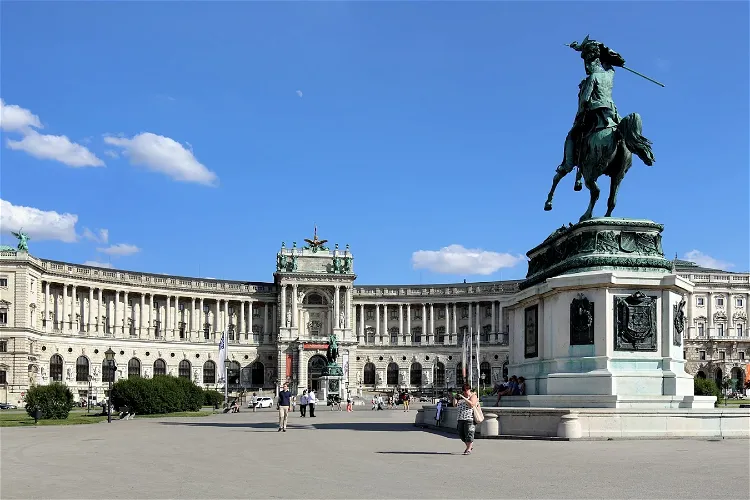
Hofburg Palace
ViennaThe Hofburg Palace, located in Vienna, is the largest palace in the city and has a rich history as the residence of most of the Austrian royalty. The Habsburg dynasty, in particular, resided here for over 600 years. This historical significance makes it a fascinating place for tourists interested in history and architecture.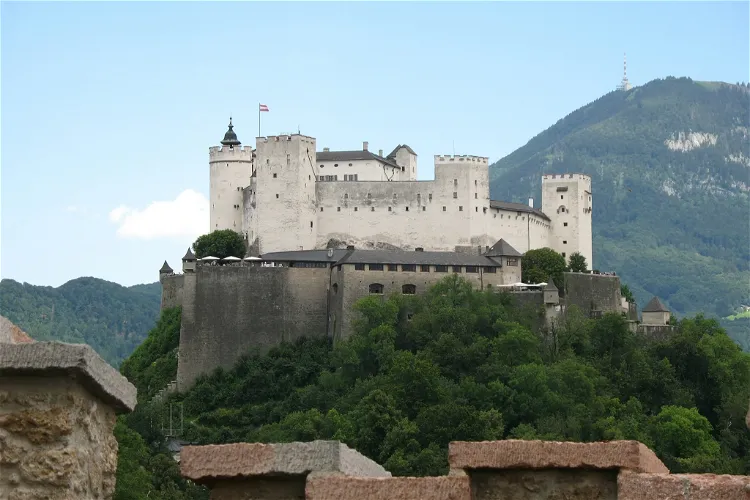
Hohensalzburg Castle
SalzburgHohensalzburg Fortress, also known as Festung Hohensalzburg, is a significant historical site located in Salzburg, Austria. This medieval fortress is situated atop the Festungsberg mountain, providing a panoramic view of the city. It is one of the largest medieval castles in Europe, making it a notable landmark for visitors.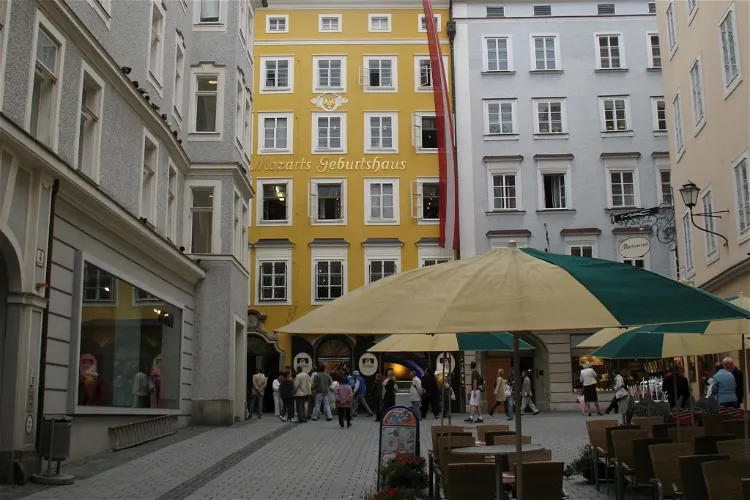
Mozart's Birthplace
SalzburgMozart's birthplace, known as Mozarts Geburtshaus or Hagenauerhaus, is situated at No. 9 Getreidegasse in Salzburg, Austria. This is the very place where the renowned composer Wolfgang Amadeus Mozart was born on 27 January 1756. The Mozart family lived on the third floor of this building from 1747 to 1773.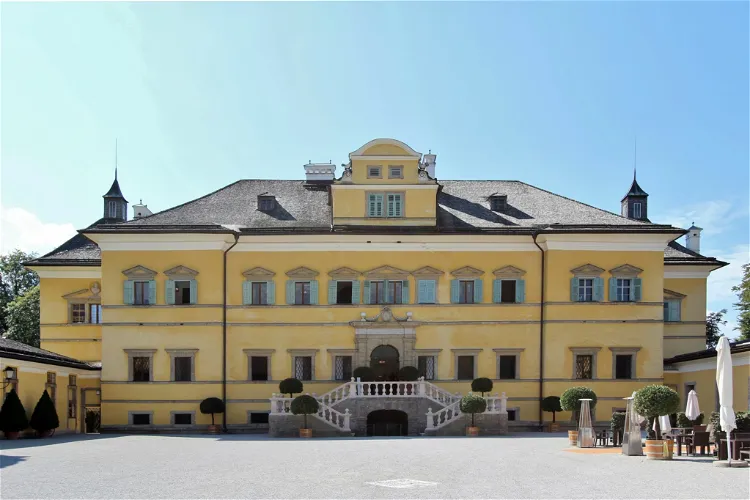
Hellbrunn Palace
SalzburgHellbrunn Palace, an early Baroque villa of palatial size, is situated near Morzg, a southern district of the city of Salzburg, Austria. This architectural marvel was built between 1613 and 1619 by Markus Sittikus von Hohenems, the Prince-Archbishop of Salzburg. The palace was named after the 'clear spring' that supplied it.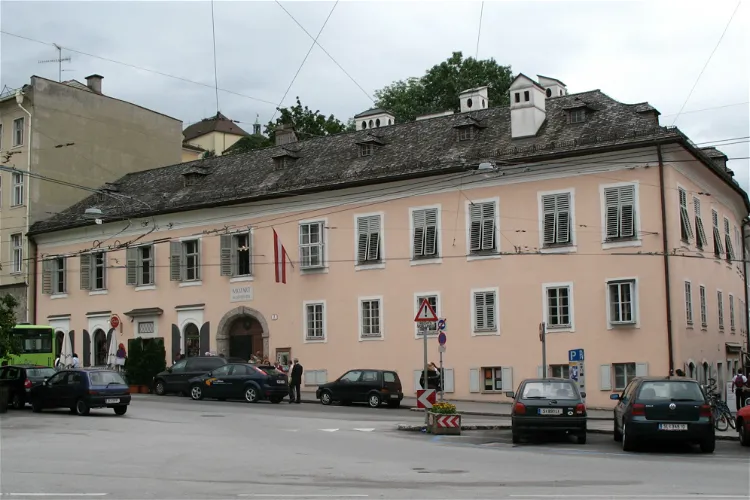
Mozart Residence
SalzburgMozarts Wohnhaus, also known as Tanzmeisterhaus, is a museum located in Salzburg, Austria. This museum is dedicated to the life and works of the renowned composer, Wolfgang Amadeus Mozart, and his family. The Mozart family resided in this house from 1773 to 1780. Visitors can explore the history of Mozart and his family, gaining insights into their lives during the 18th century.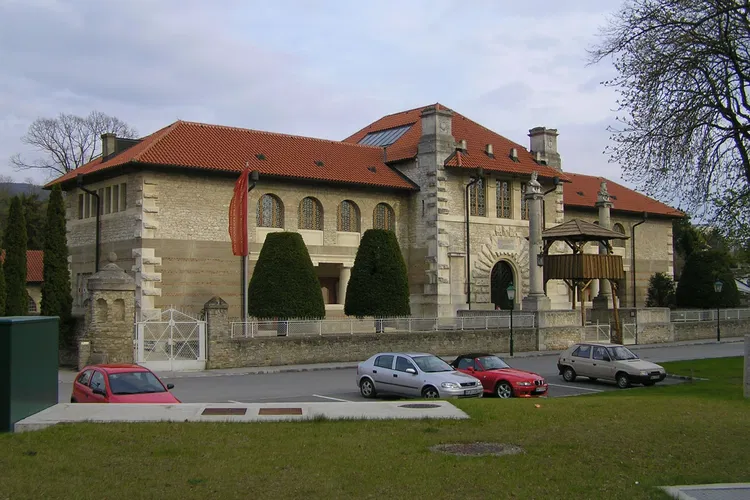
Carnuntum
Petronell-CarnuntumCarnuntum, once the capital of the Roman province Pannonia Superior, is located on the Danube, approximately 35 km east of Vienna. This historical site offers a glimpse into the past, allowing visitors to explore the remnants of a once thriving Roman city.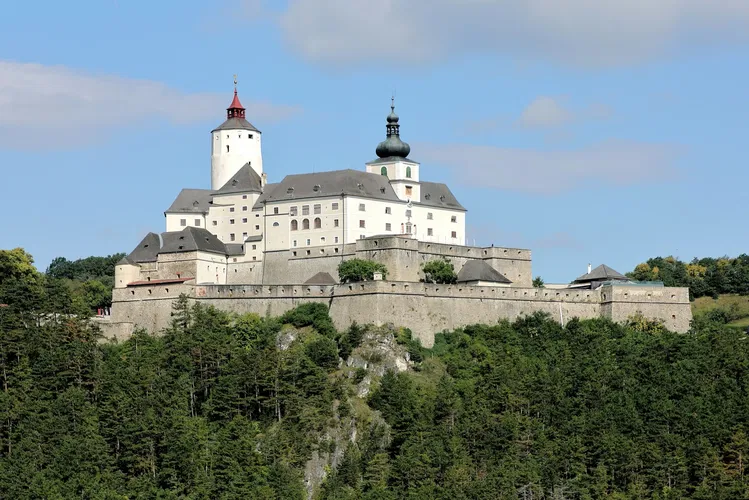
Forchtenstein Castle
ForchtensteinForchtenstein Castle is a historical monument from the Late Middle Ages, situated near the municipality of Forchtenstein in northern Burgenland, Austria. The castle stands at an elevation of 511 metres, offering a panoramic view of the surrounding landscape. Its location and historical significance make it an interesting destination for tourists.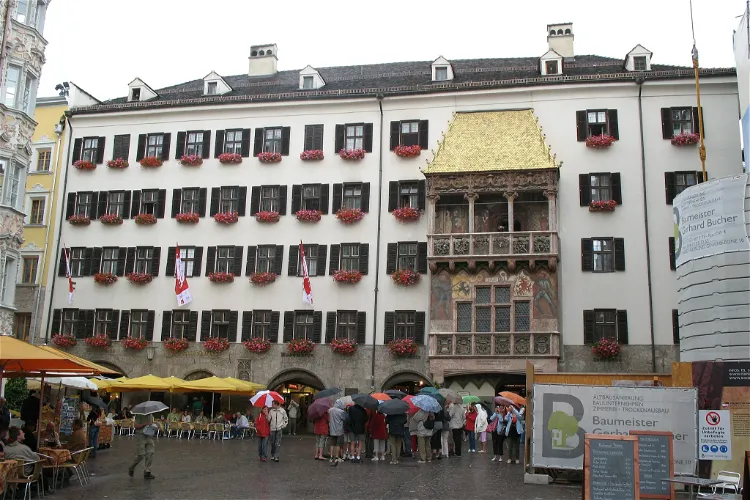
Golden Roof
InnsbruckThe Goldenes Dachl, or Golden Roof, is a landmark structure situated in the Old Town area of Innsbruck, Austria. This iconic symbol of the city was completed in 1500 and is adorned with 2,657 fire-gilded copper tiles. The roof was commissioned by Emperor Maximilian I to celebrate his wedding to Bianca Maria Sforza. The balcony of the Golden Roof was used by the Emperor and his wife to observe various events and festivals taking place in the square below.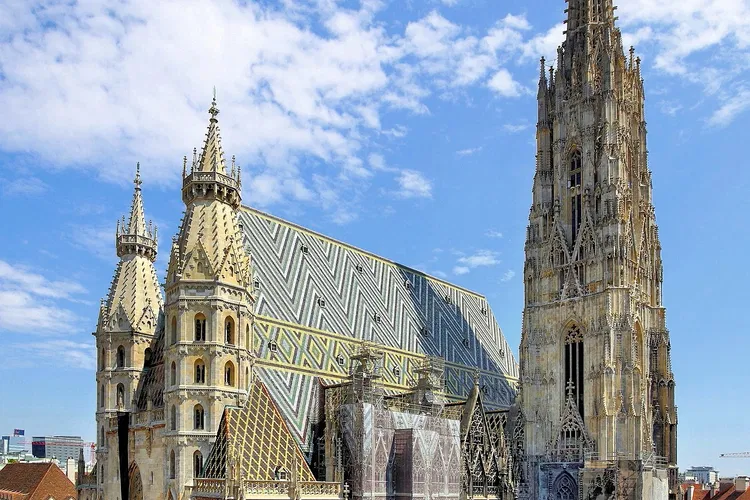
St. Stephen's Cathedral
ViennaSt. Stephen's Cathedral, also known as Stephansdom, is a Roman Catholic cathedral located in Vienna, the capital of Austria. It serves as the seat of the Archbishop of the Austrian Archdiocese of Vienna. This cathedral is not only a place of worship but also a symbol of Austrian history and identity.- Online discount!
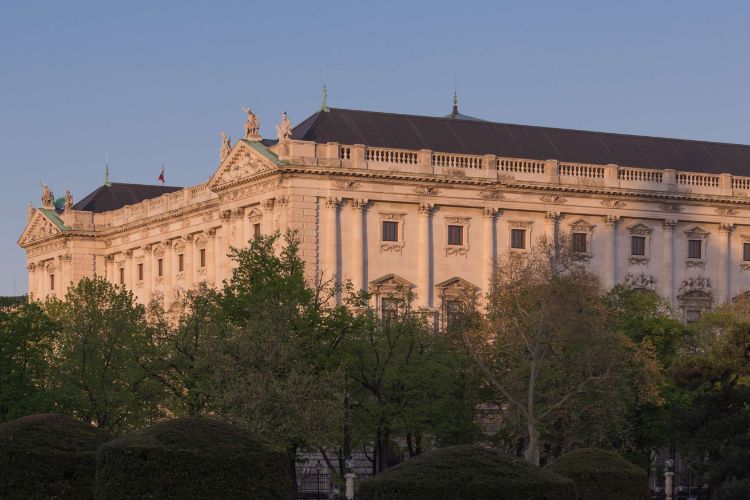
Hofburg - Imperial Palace
ViennaVienna's Imperial Palace is one of the biggest palace complexes in the world. The oldest parts date to the 13th century, with construction having continued right into the 20th century. The Imperial Palace was the residence and seat of government of the Habsburg emperors until 1918. Today, it is home 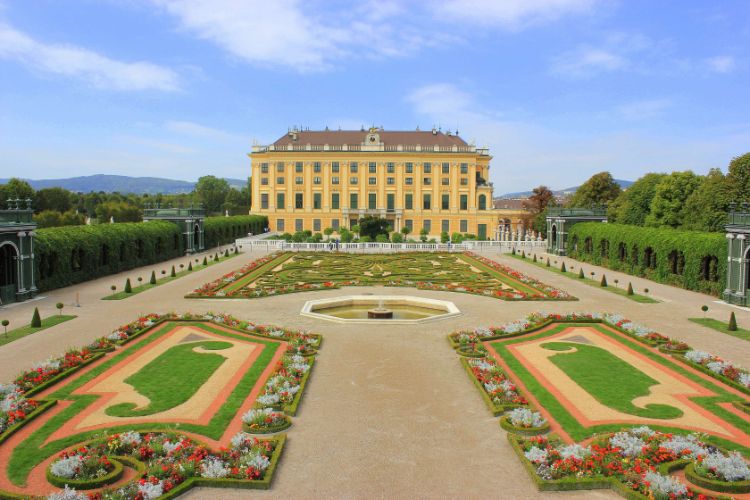
Schonbrunner Gardens
ViennaThese Baroque gardens cover approximately 120 hectares of land around the Schönbrunn Palace and are listed by UNESCO among the World Heritage sites. Visitors can take a stroll through the carefully designed flowerbeds, or get lost in the local maze. First entered by visitors in 1779, these gardens h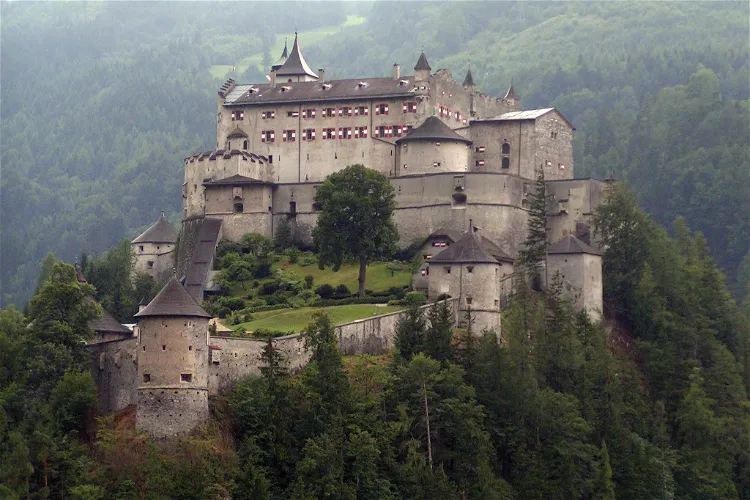
Hohenwerfen Castle
SchlamingHohenwerfen Castle is a medieval rock castle that stands majestically on a 623-metre precipice. It overlooks the Austrian market town of Werfen in the Salzach valley, which is approximately 40 kilometres south of Salzburg. The castle's location offers breathtaking views of the surrounding landscape, making it a popular destination for tourists.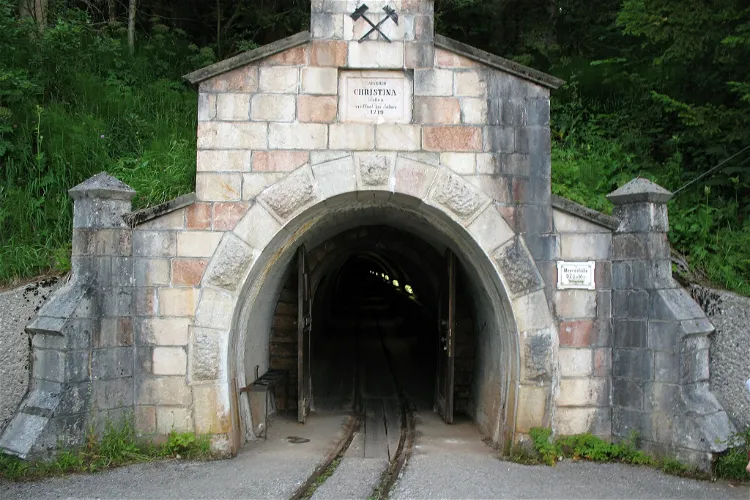
Salzwelten Hallstatt
Hallstatt
DomQuartier Salzburg
SalzburgThe DomQuartier Salzburg, established in 2014, is a museum complex located in the city of Salzburg. It offers a unique blend of architectural structures and a display of both secular and sacred art collections centered around the Salzburg Cathedral and the Cathedral Square. The establishment of the DomQuartier has made several previously inaccessible areas open to the public.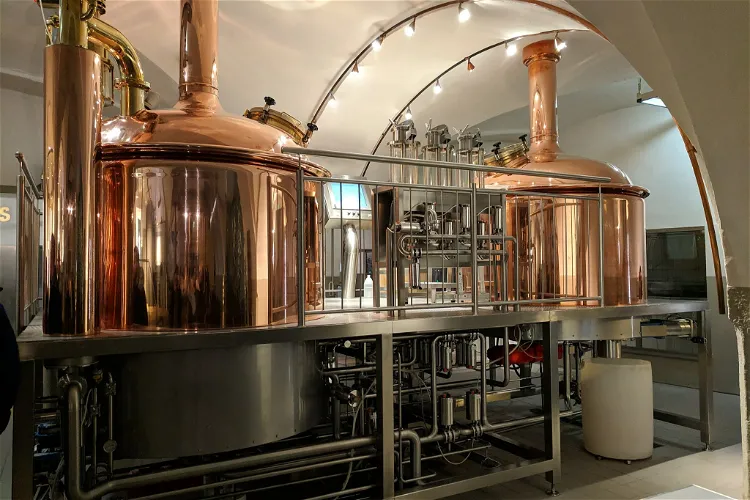
Stiegls Brauwelt
SalzburgThe presence of beer in Austrian culture is very obvious. The history of its making goes far back into the history, so it's understandable there are so many beer-themed establishments. This huge beer museum is run by a brewing company with a long tradition. Along with the museum tour, you also have- Online discount!
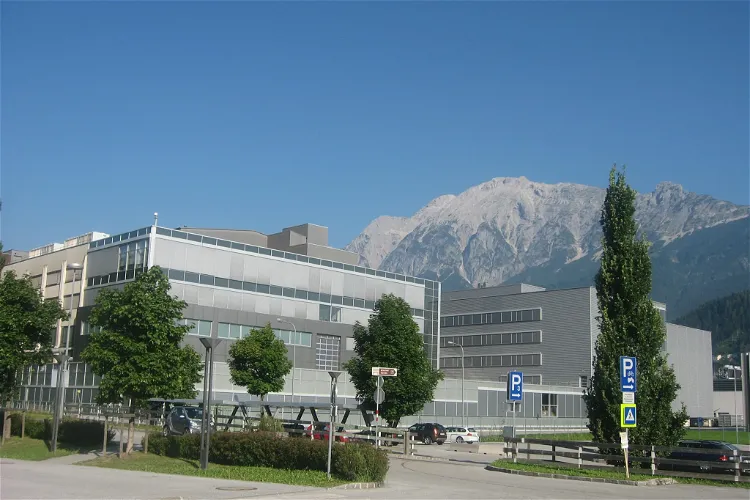
Swarovski Crystal Worlds
WattensSwarovski Crystal Worlds, located in Wattens, Tyrol, is a unique experience world that was conceived by André Heller on behalf of the crystal glass manufacturer Swarovski. It consists of a park, an art museum, a shop, and a restaurant. This location is not only the site of this unique attraction but also the headquarters and founding location of the Swarovski company. - Online discount!
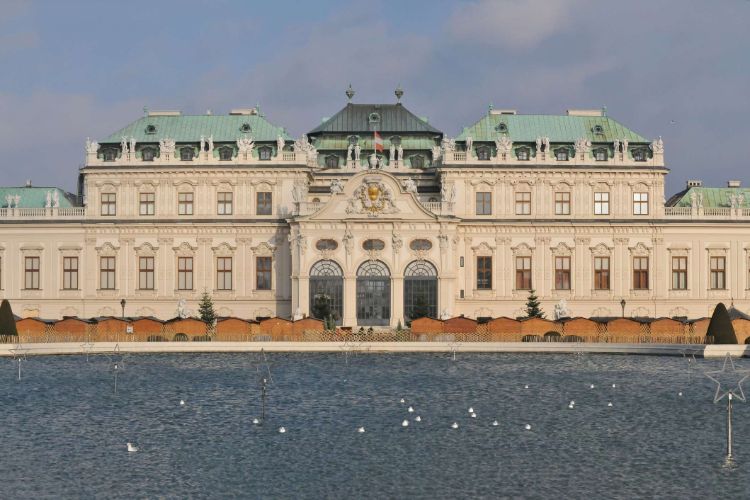
Belvedere Palace Museum
ViennaThe Belvedere Palace Museum is part of the Belvedere palace complex, which was designed by Lukas von Hildebrandt in late Baroque style. The construction took 6 years, until 1723, when the palace was completed. However, it is inside the palace that you will find Upper Belvedere's greatest treasure: a 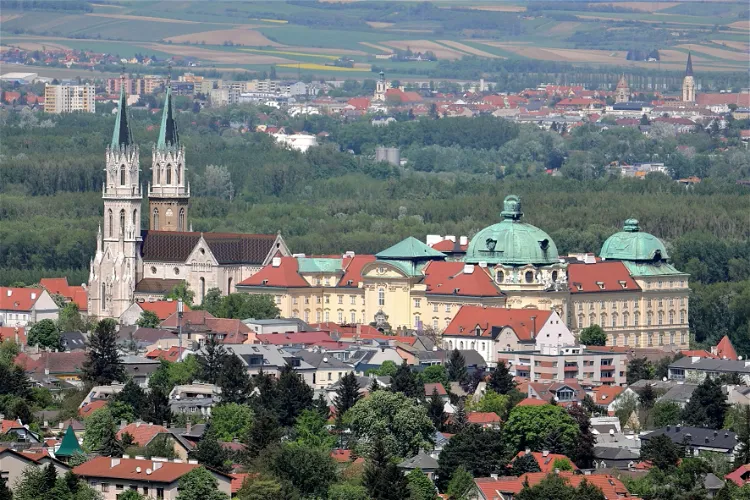
Klosterneuburg Monastery
KlosterneuburgThe Klosterneuburg Monastery, located northwest of Vienna in the town of Klosterneuburg, belongs to the congregation of the Austrian Augustinian Canons Regular. The complex has a rich history, dating back to its foundation by the Austrian Margrave Leopold III and his wife Agnes of Waiblingen in the early 12th century.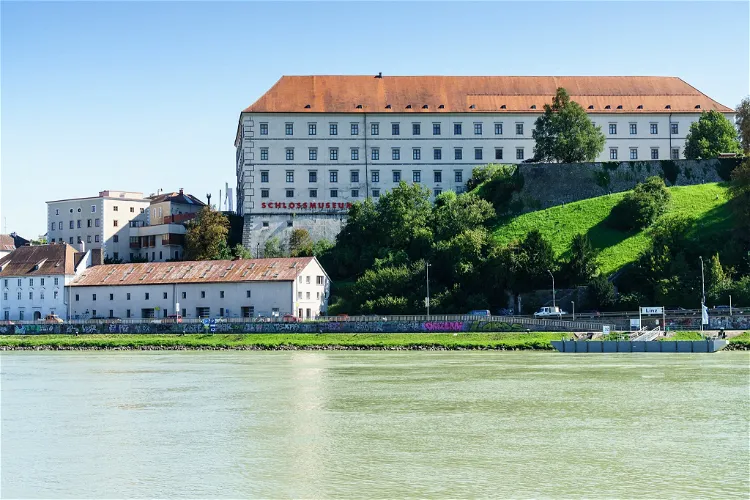
Linz Castle
LinzLinz Castle, perched on a hill, offers a panoramic view of the old town of Linz and the Danube. The castle's location is historically significant as it is built on the site of the ancient Roman fort of Lentia. This blend of history and scenic beauty makes it a fascinating spot for visitors.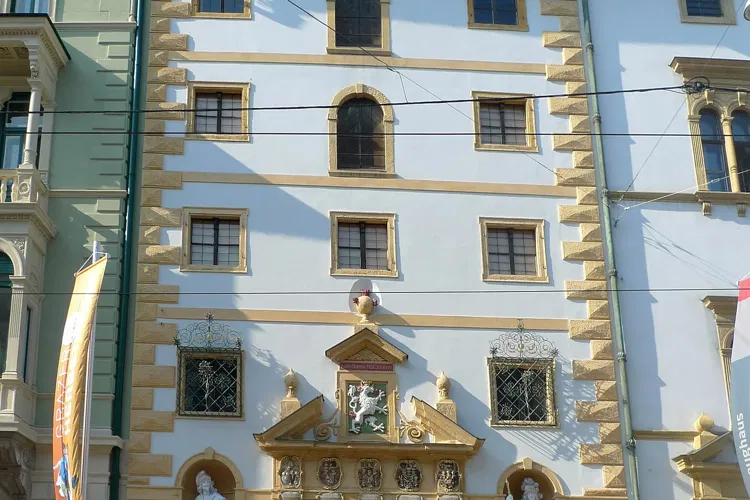
Styrian Armoury
GrazThe Styrian Armoury boasts an impressive collection of 32,000 exhibits, making it the largest armoury in the world. What makes it even more unique is that it is largely preserved in its original state. This allows visitors to experience the armoury as it was centuries ago, adding to the authenticity of their visit.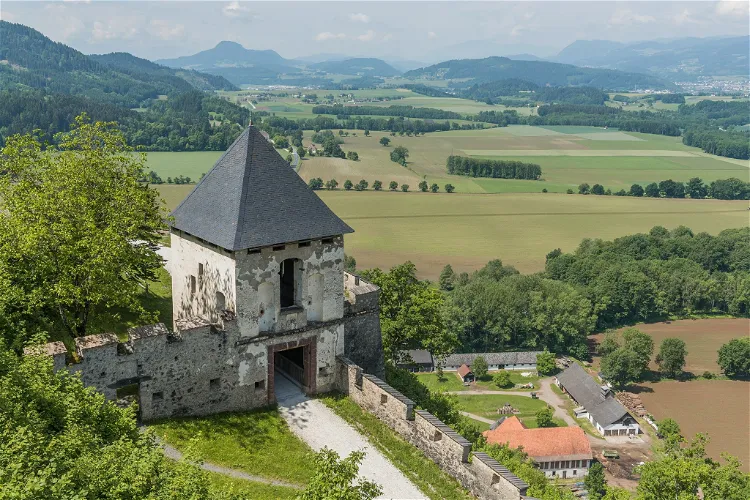
Hochosterwitz Castle
LaunsdorfHochosterwitz Castle, known as Burg Hochosterwitz in German, is a significant medieval castle in Austria. It is situated near Sankt Georgen am Längsee, in the district of Sankt Veit an der Glan, in Carinthia. The castle's strategic location and historical significance make it a fascinating destination for tourists interested in history and architecture.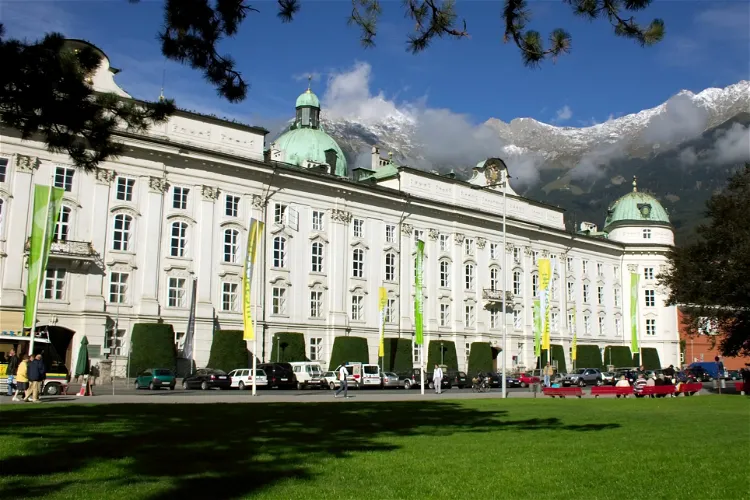
Hofburg, Innsbruck
InnsbruckThe Hofburg, located in the city of Innsbruck, is a former imperial and royal residence of Austria-Hungary. This historical site offers a glimpse into the past, showcasing the grandeur of the Austrian-Hungarian empire. Visitors can explore the former residence and learn about its rich history.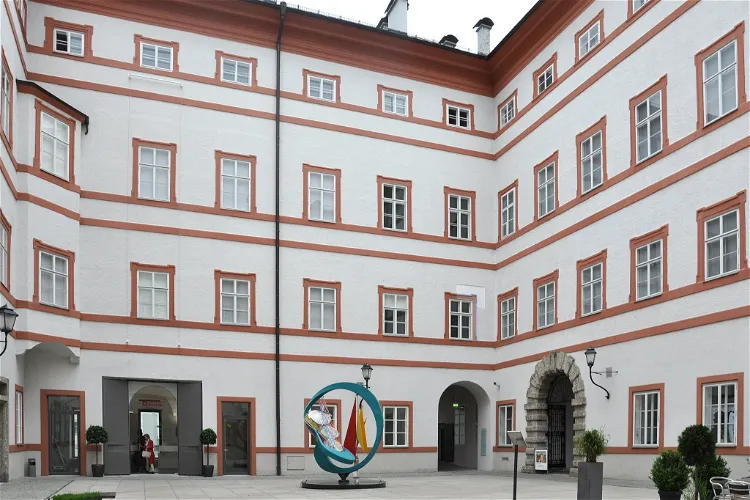
Salzburg Museum
SalzburgThe Salzburg Museum, located in the Neue Residenz, is a significant institution that showcases the artistic and cultural history of Salzburg city and its surrounding region in Austria. Since its relocation in 2005, the museum has continued to serve as a vital cultural hub, offering visitors a comprehensive insight into the rich history and artistic heritage of Salzburg.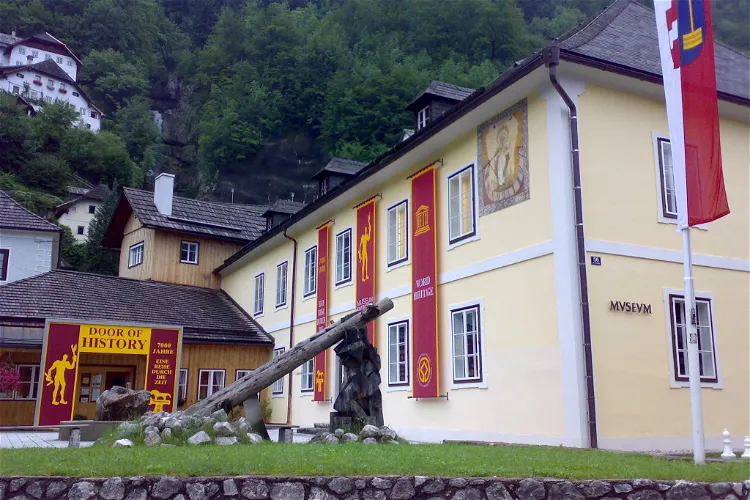
Hallstatt Museum
HallstattThe Hallstatt Museum, located in Hallstatt, Upper Austria, is renowned for its unique collection of discoveries from the local salt mines and Iron Age cemeteries near the mines. These collections provide a deep insight into the Hallstatt culture, making the museum a significant site for historical and archaeological enthusiasts.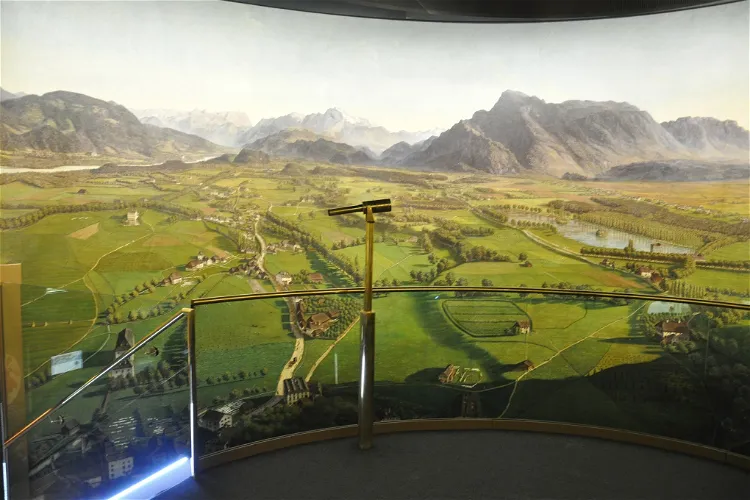
Panorama Museum Salzburg
SalzburgThe Panorama Museum Salzburg is a significant part of the Salzburg Museum, located in the Neue Residenz in the Salzburg Old Town. This location is steeped in history and offers a unique setting for the museum. Visitors can explore the museum within the context of the broader Salzburg Museum, providing a comprehensive cultural experience.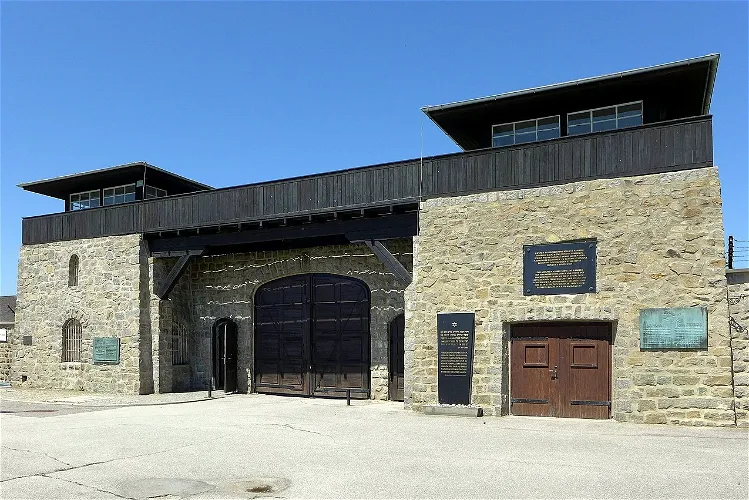
Mauthausen Concentration Camp
MauthausenMauthausen-Gusen was a collection of Nazi concentration camps located around the small Austrian town of Mauthausen, approximately 20 km east of Linz. The main camp was established shortly after Austria's Anschluss and evolved into one of the most notorious concentration camps. The camp was situated near a granite quarry that supplied a large portion of the stone used for paving the streets of Vienna.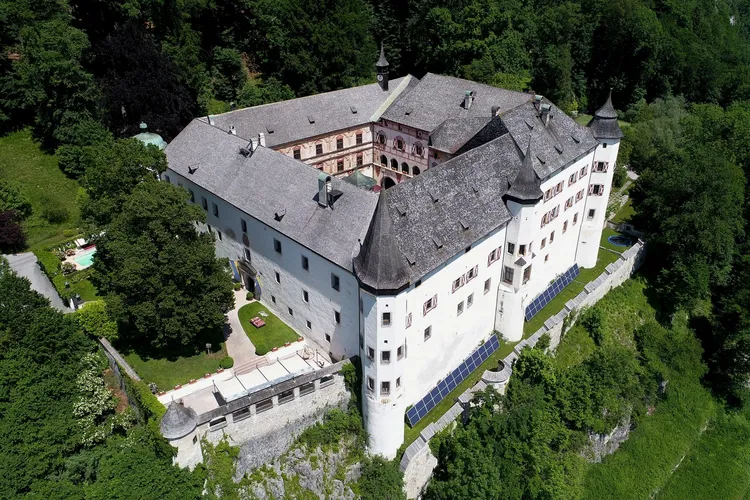
Tratzberg Castle
JenbachTratzberg Castle, situated in Jenbach, Tyrol, Austria, is perched on a steep ridge above the town. This location offers a unique vantage point and contributes to the castle's distinct charm.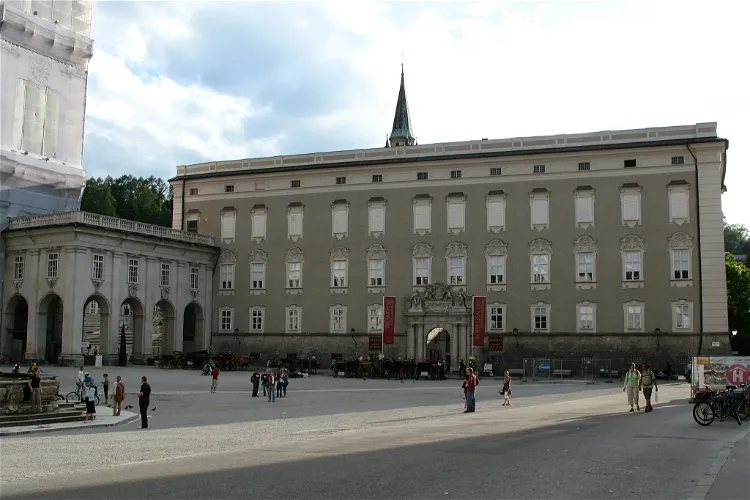
Residenzgalerie
SalzburgThe Residenzgalerie is an art gallery located in the Alte Residenz in Salzburg, Austria. This historic location adds to the charm and appeal of the gallery, making it a notable destination for art enthusiasts and tourists alike.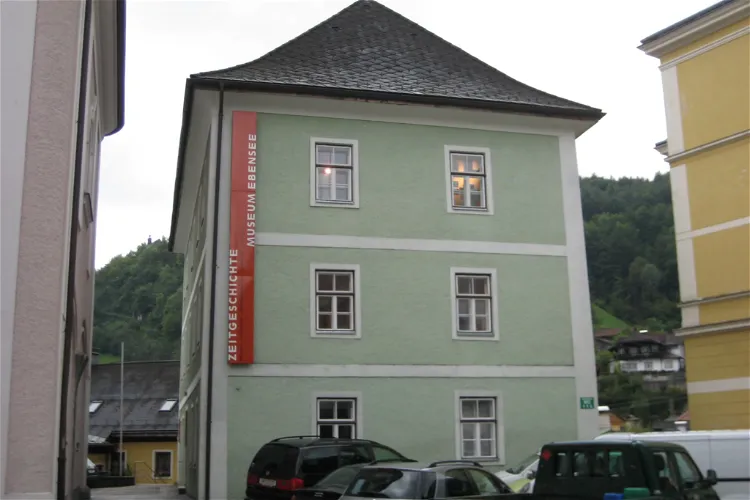
Zeitgeschichte Museum Ebensee
EbenseeThe Zeitgeschichte Museum Ebensee is a historical regional museum situated in the market town of Ebensee, in the Austrian state of Upper Austria. This museum is dedicated to the political contemporary history of the Salzkammergut region between 1918 and 1955. It provides a unique opportunity for visitors to delve into the historical events that shaped this region during this period.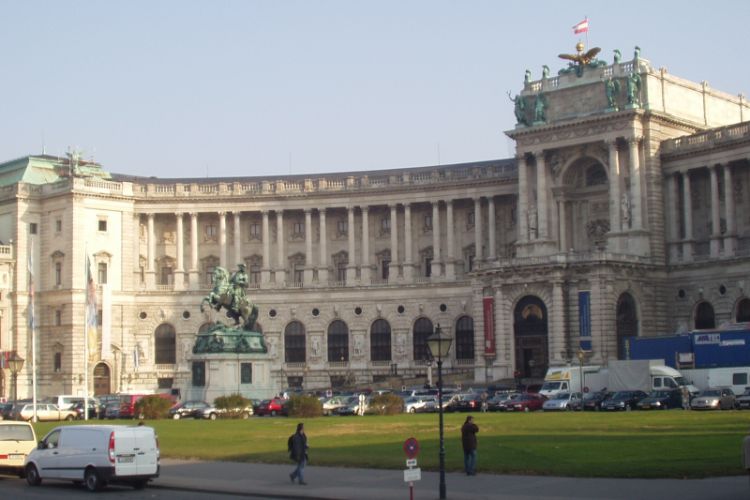
Austrian National Library
ViennaThe Austrian National Library is considered one of the most beautiful libraries in the world, containing 7.4 million items. It is divided into a library and a museum. The library includes all kinds of books from research, history, religion to modern literature. With the oldest book being the Holy Go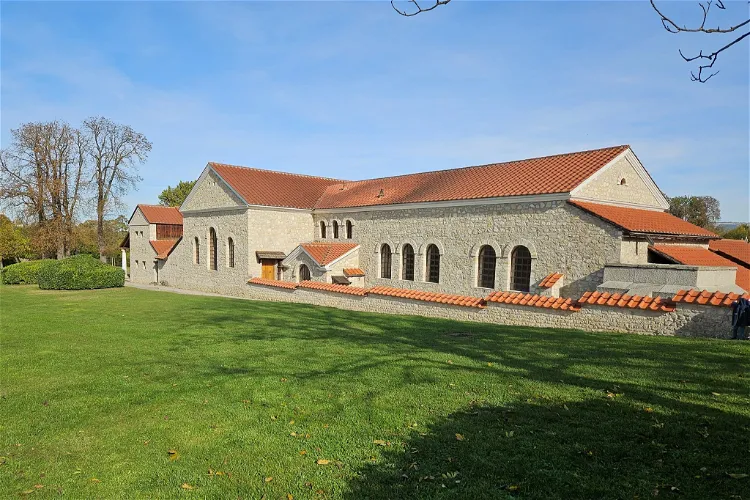
Archaeological Park Carnuntum
Petronell-CarnuntumCarnuntum, once the capital of the Roman province Pannonia Superior, is a significant historical site located on the Danube, approximately 35 km east of Vienna. Its strategic location and historical significance make it an interesting destination for those interested in Roman history.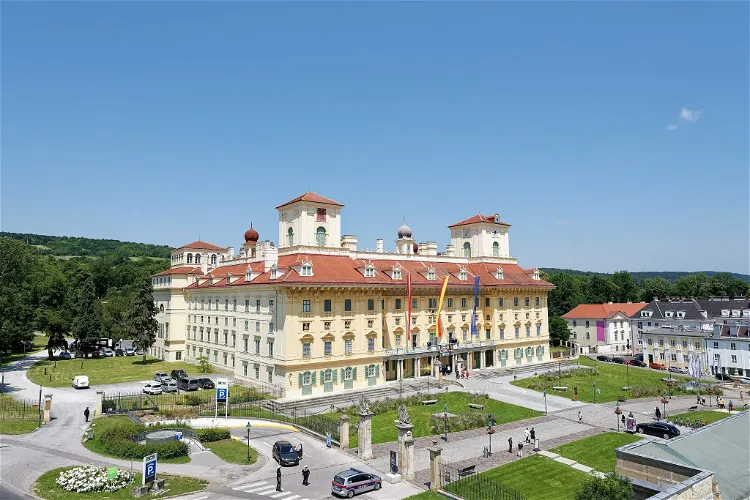
Esterházy Palace
Eisenstadt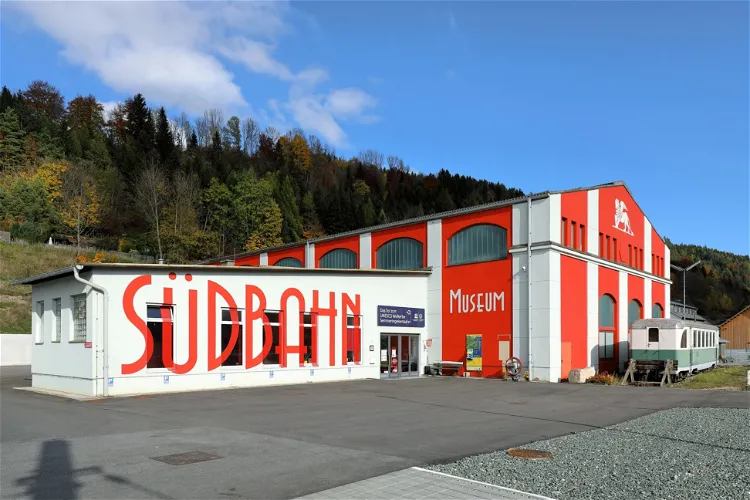
Südbahnmuseum Mürzzuschlag
MürzzuschlagThe Südbahnmuseum Mürzzuschlag is a railway museum situated in the former train depot of Mürzzuschlag of the Austrian Federal Railways (ÖBB). It provides a unique opportunity to explore the history and development of railways in Austria, particularly in the Mürzzuschlag region.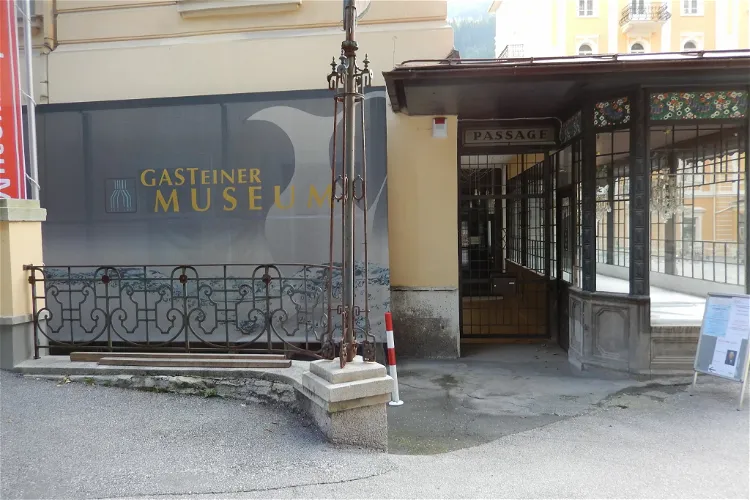
Gasteiner Museum
BadbergThe Gasteiner Museum, located in the Grand Hotel de l’Europe since 2011, is dedicated to showcasing the history of the spa in Bad Gastein, a town in the state of Salzburg. The museum provides a unique opportunity for visitors to delve into the rich history of the spa and its significance to the town and the region.
Sisi Museum
ViennaThe Sisi Museum in Vienna is housed in the Stephan apartments, named after Archduke Stephan Viktor. The museum exhibits personal items that once belonged to Elisabeth that illustrate her personality. The museum exhibits around 300 objects, including parasols, fans, gloves, clothing, beauty preparati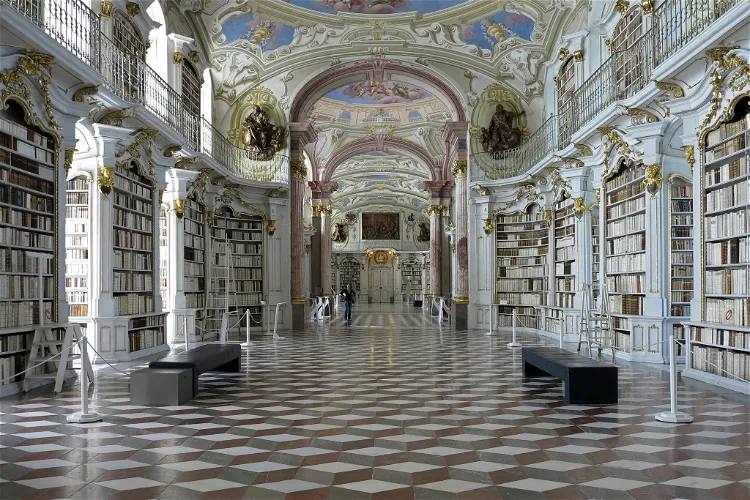
Admont Abbey Library
AdmontThe Admont Abbey Library, completed in 1776, is a baroque monastic library tract located in Admont, Upper Styria. This architectural marvel has been referred to as the eighth wonder of the world in the past, showcasing the grandeur and historical significance of the place.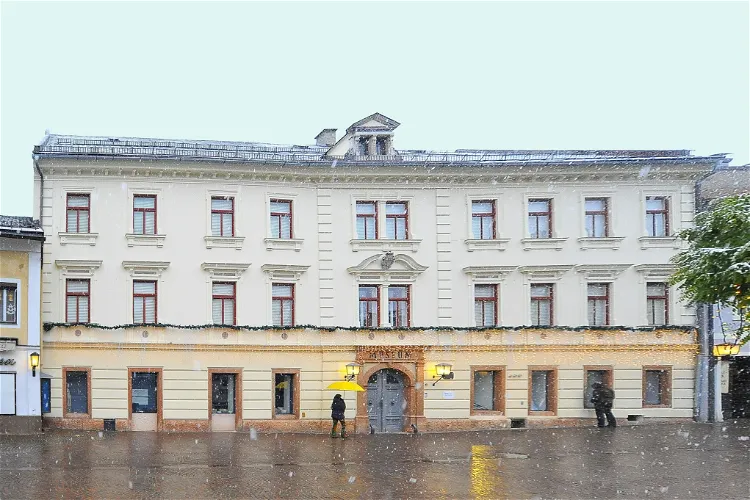
Museum der Stadt Villach
VillachThe Stadtmuseum Villach, located in the former Palais Crusiz in Widmanngasse, Villach, was established in 1873. The museum's foundation was made possible by builder Carl Andreas Picco, who generously donated his collection to the institution.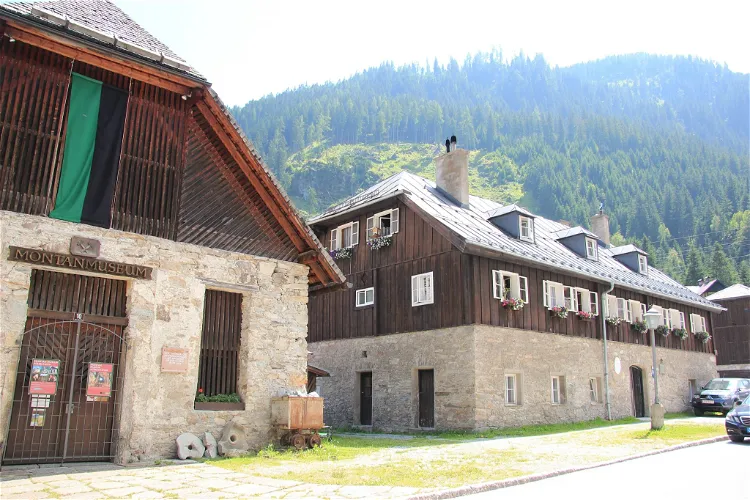
Altböckstein Mining Museum
BöcksteinThe Altböckstein Mining Museum is a significant historical site located in Böckstein, a part of the municipality of Bad Gastein in Salzburg, Austria. This museum offers a unique insight into the region's mining history and is an integral part of the historical mining settlement in Altböckstein.- Online discount!
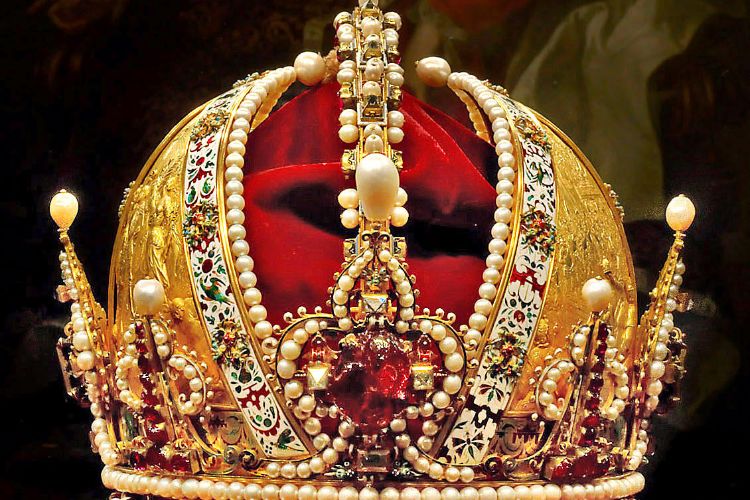
Imperial Treasury Vienna
ViennaAwaiting you at the Imperial Treasury Vienna in the Hofburg Palace is the Austrian Imperial Crown and the insignia of the Holy Roman Empire with the Imperial Crown and the Holy Lance. Other highlights include the treasure of the Order of the Golden Fleece and parts of the immensely opulent treasure 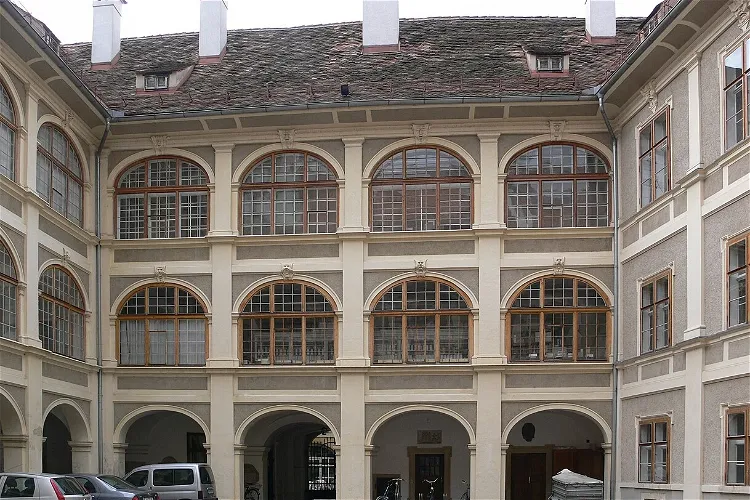
Joanneum Universal Museum
GrazThe Universalmuseum Joanneum, located in the Austrian state of Styria, holds the distinction of being the oldest, largest, and most versatile museum in Austria, second only to the Kunsthistorisches Museum Wien. This museum offers a wide range of exhibits and collections, making it a significant cultural and historical site in Austria.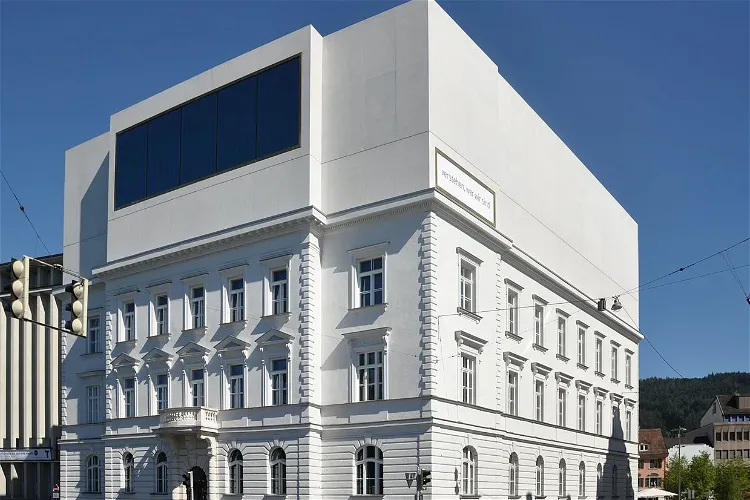
vorarlberg museum
BregenzThe vorarlberg museum, located in Bregenz, serves as the state art and cultural museum of the Austrian federal state of Vorarlberg. Established in 1857, the museum has been a hub for the collection and preservation of the state's art and cultural material for over a century.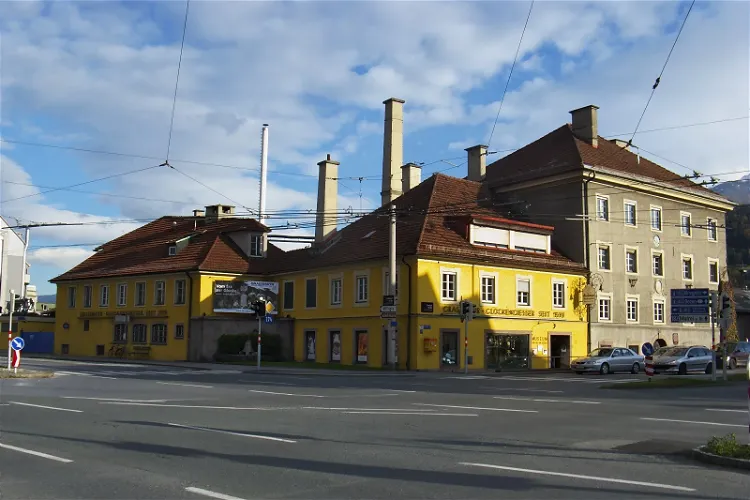
Grassmayr Bell Foundry
InnsbruckThe Grassmayr Bell Foundry, located in Innsbruck, Austria, is a significant historical site with over 400 years of history. Founded by Bartlmä Grassmayr, it is the oldest family business in Austria. The foundry has produced bells for eight different religions and has a global reach, exporting to over 100 countries worldwide.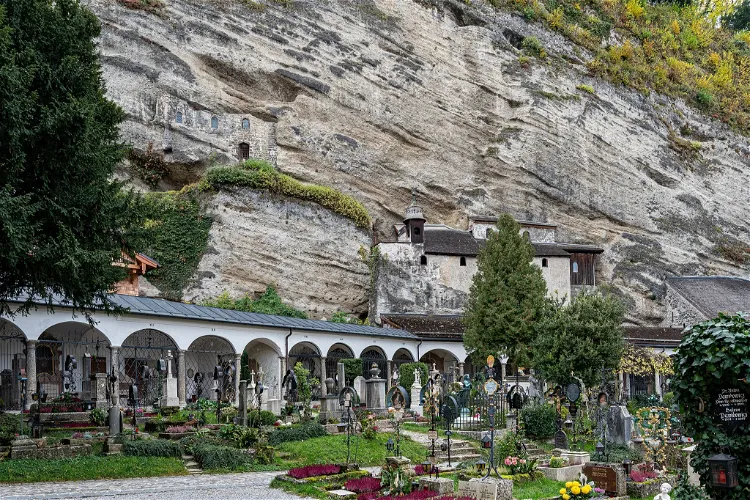
Katakomben Salzburg
SalzburgThe catacombs of Salzburg, situated on the edge of the Petersfriedhof, are a significant historical site. They were carved into the Festungsberg, a mountain in Salzburg, and are believed to be of late antique-early Christian origin. Despite their name, these catacombs were not used as burial sites but likely served as early Christian meeting places.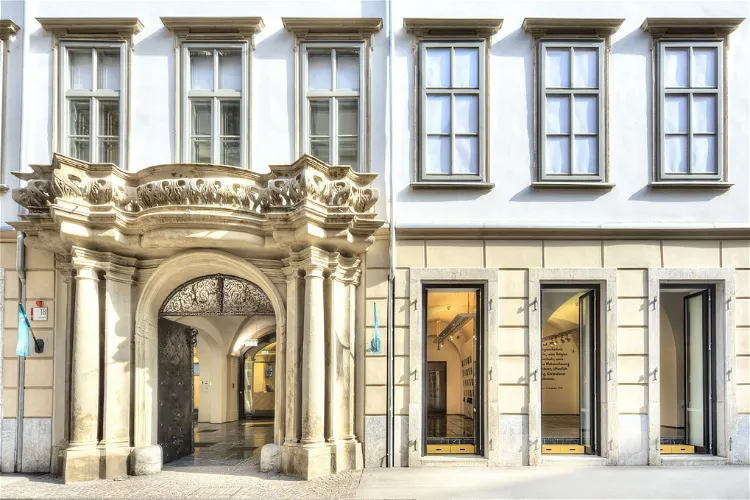
Graz Museum
GrazThe Graz Museum, previously known as the Stadtmuseum Graz, is a cultural and historical museum located in the Austrian city of Graz. It is dedicated to the exploration and presentation of the city's history, offering a comprehensive insight into the political, economic, and social evolution of Graz.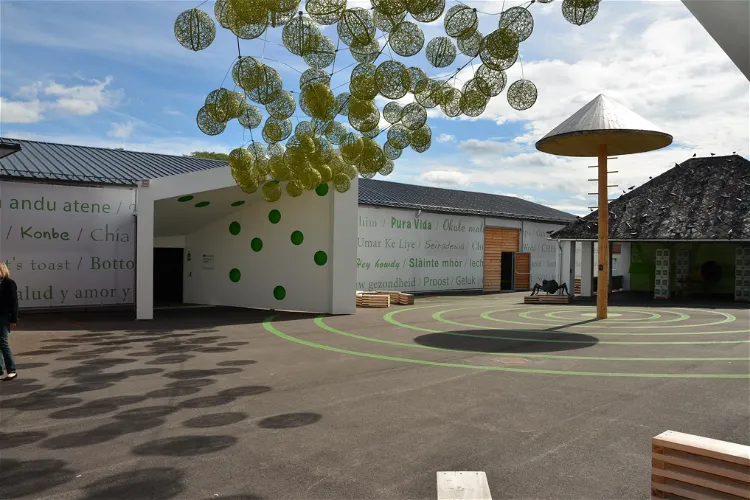
Vino Versum Poysdorf
PoysdorfVino Versum Poysdorf is an experiential museum that provides a deep dive into the history of viticulture and wine trade. The museum's focus is on the town of Poysdorf, offering visitors a unique perspective on the region's rich wine culture. The museum's exhibits are interactive, making it a fun and educational experience for all ages.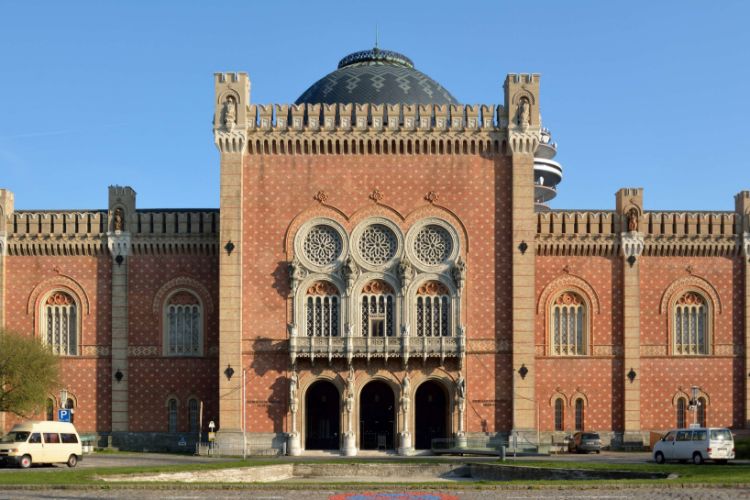
Museum of Military History
ViennaThe Museum of Military History in Vienna (Heeresgeschichtliches Museum) is the museum of the Austrian army. It is the oldest military history museum in the world and the largest built for this purpose. The museum documents the history of the Austrian army from the 16th century until 1955. The museum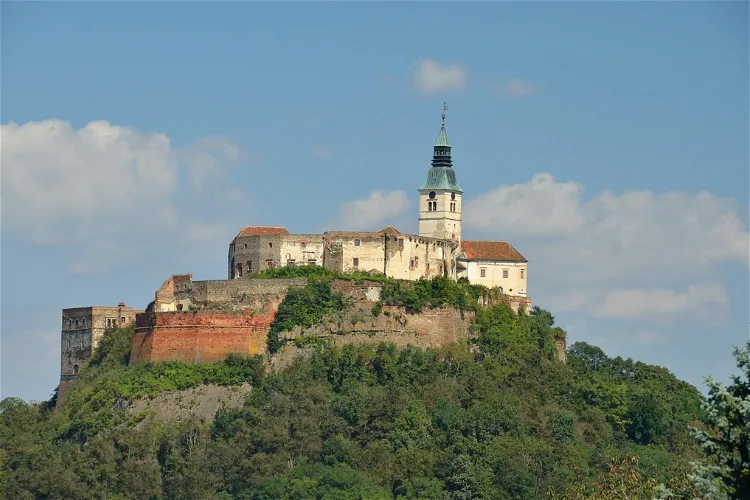
Güssing Castle
GüssingGüssing Castle, also known as Burg Güssing, is a historic defensive structure located in the town of Güssing in the Austrian state of Burgenland. The castle has a rich history dating back to the 12th century and has been the site of numerous historical events. Today, it stands as a testament to the region's past and offers visitors a glimpse into the history of the area.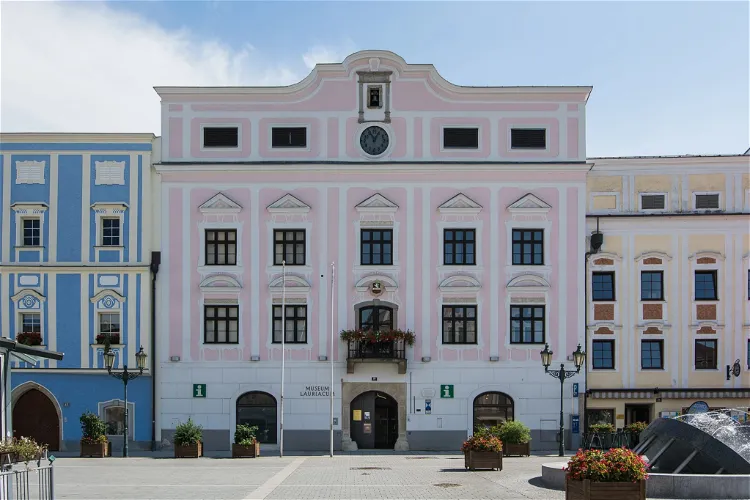
Museum Lauriacum
EnnsThe Museum Lauriacum is situated in the city of Enns, within the district of Linz-Land in Upper Austria. This location makes it easily accessible for tourists visiting the region, offering a unique opportunity to delve into the rich history of the area.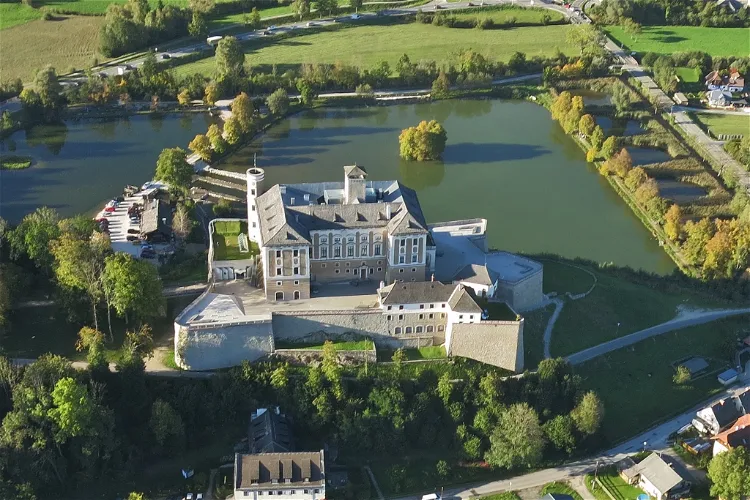
Trautenfels Castle
Stainach-PürggTrautenfels Castle, a palace located in the district of Liezen in Styria, is situated directly on the Enns at 673m in the municipality Pürgg-Trautenfels. The castle is perched on a cliff protrusion at the foot of the Grimming, offering a unique and picturesque location for visitors.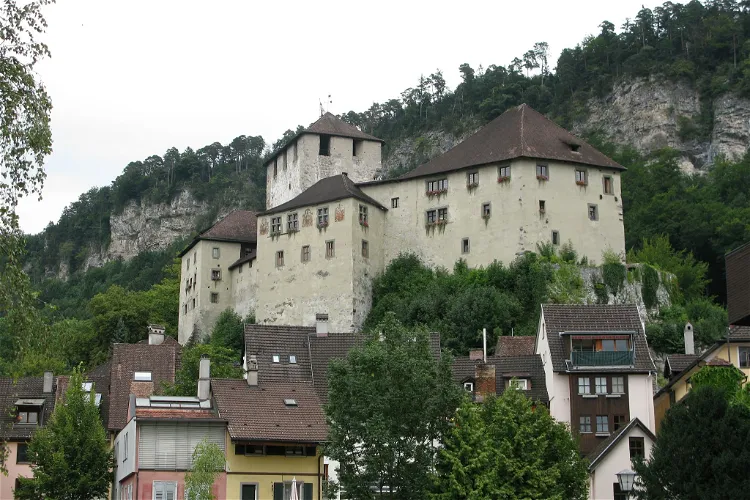
Schattenburg Castle
FeldkirchSchattenburg is a castle situated above the city of Feldkirch in Vorarlberg, Austria. It is connected to the city by the former city wall, which adds to its historical charm. The castle offers a unique view of the city and its surroundings, making it a popular spot for tourists.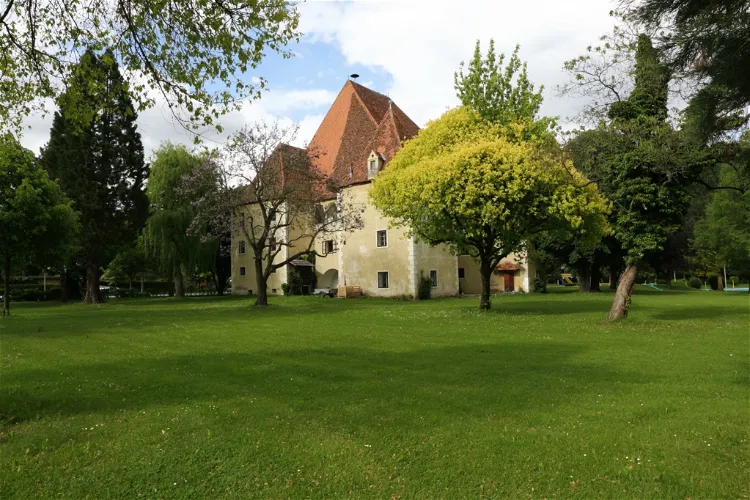
Schloss Alt-Kainach
PibereggSchloss Alt-Kainach is situated in the quaint village of Kleinkainach, approximately 1.5 km north of the city of Bärnbach. This location is in the Voitsberg district in West Styria, Austria. The castle's location offers a serene and picturesque setting that is sure to captivate any visitor.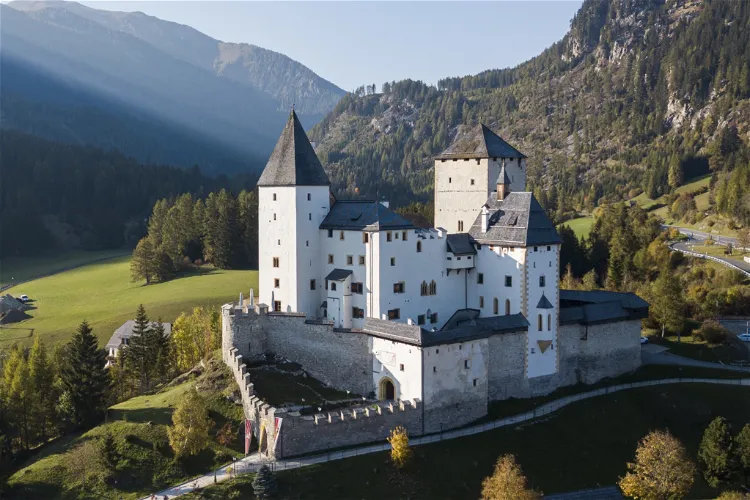
Mauterndorf Castle
MauterndorfMauterndorf Castle, a historical monument in the Austrian state of Salzburg, is situated at an impressive altitude of 1,138 metres. This location not only provides a unique historical experience but also offers breathtaking views of the surrounding landscape. The castle is located in the municipality of Mauterndorf, making it easily accessible for tourists.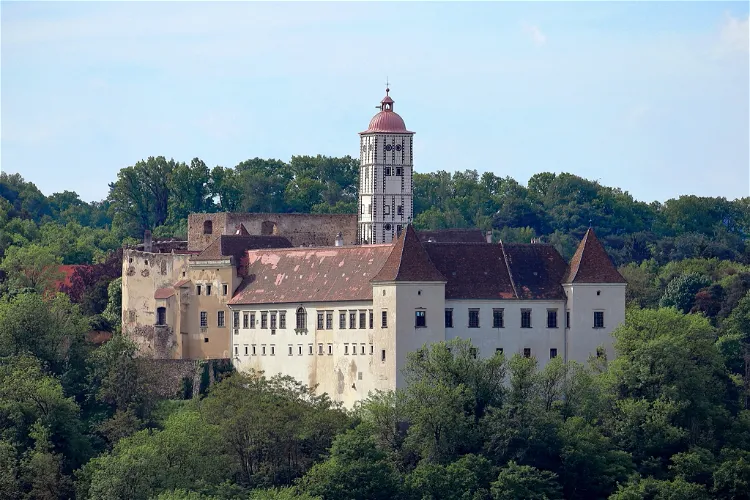
Schallaburg Castle
SchollachThe Schallaburg Castle is a unique blend of architectural styles. It combines elements of a Romanesque residential castle and a Gothic chapel, all patterned in the Italian Renaissance style. This mix of styles gives the castle a distinctive and appealing aesthetic that is sure to captivate visitors.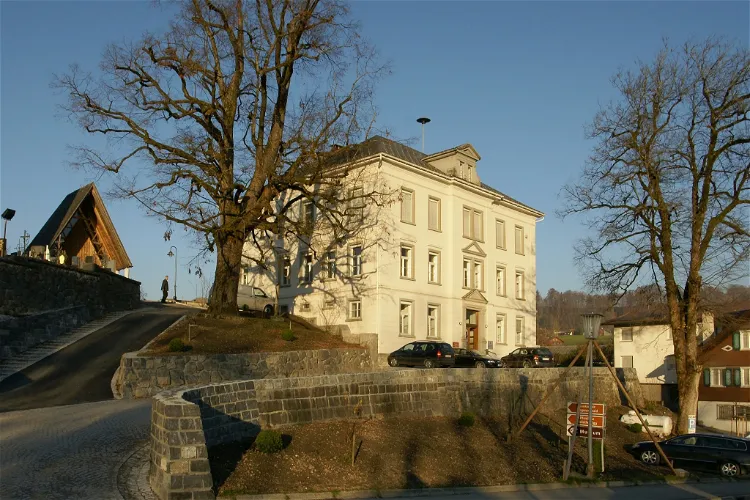
Egg Museum
EggThe Egg Museum, located in Egg in the Bregenzerwald in Vorarlberg, Austria, is a local museum that offers a unique insight into the region's history and culture. It is a place where visitors can learn about the local traditions, customs, and way of life.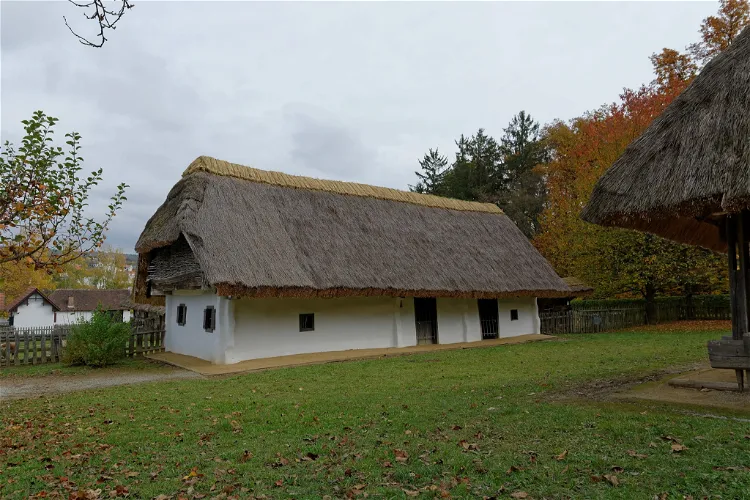
Freilichtmuseum Bad Tatzmannsdorf
OberschützenThe Freilichtmuseum Bad Tatzmannsdorf is located in the municipality of Bad Tatzmannsdorf in southern Burgenland, Austria. The museum is home to regional wooden buildings from the 18th and 19th centuries. These structures were carefully dismantled from their original locations and reassembled at the museum, providing a unique insight into the architectural history of the region.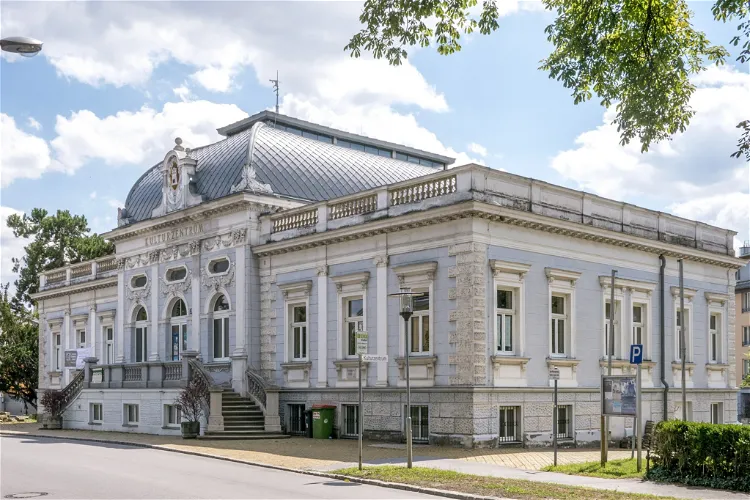
Stadtmuseum Korneuburg
KorneuburgThe Stadtmuseum Korneuburg is located within the Kulturzentrum Korneuburg, a historic building in the city. This building, which was originally constructed in 1908, has a rich history and has served various purposes over the years. Today, it is home to the city museum, providing a unique setting for the exploration of local history and culture.
Styrian Armoury
GrazThe Styrian Armoury boasts an impressive collection of 32,000 exhibits, making it the largest armoury in the world. What makes it even more unique is that it is largely preserved in its original state. This allows visitors to experience the armoury as it would have been centuries ago, adding to the authenticity of their visit.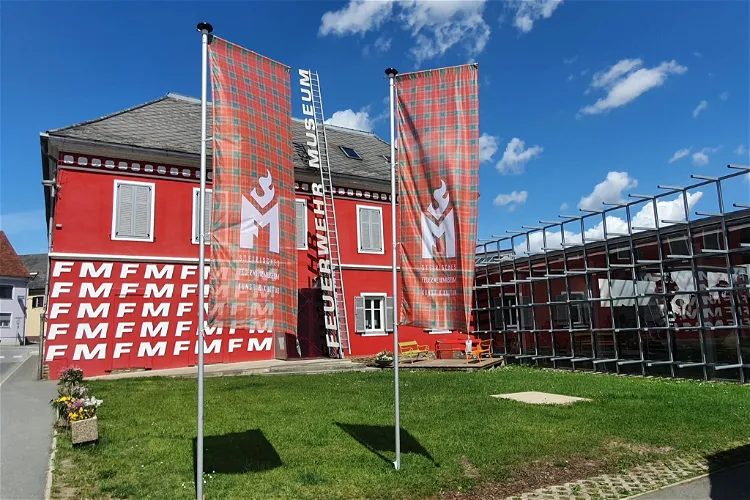
Feuerwehrmuseum
Grub bei Groß Sankt FlorianThe Steirische Feuerwehrmuseum Kunst & Kultur in Groß Sankt Florian is a unique museum dedicated to the history and evolution of the Styrian fire brigades. Established in 1995, the museum offers a comprehensive insight into the development of firefighting techniques and the role of fire brigades in society.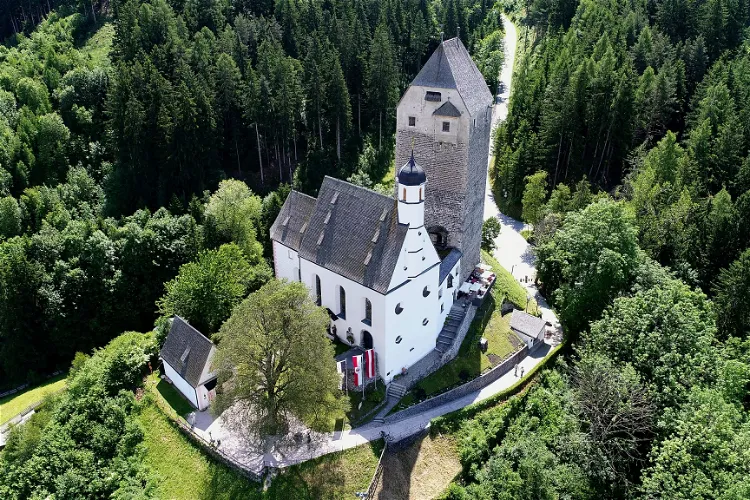
Freundsberg Castle
SchwazFreundsberg Castle was founded in 1150 by the Lords of Freundsberg. The initial structure was a five-story residential tower, standing 28 meters tall. This tower is still preserved today and visitors can see parts of the original fresco paintings. This historical aspect of the castle provides a glimpse into the past and is a highlight for those interested in history and architecture.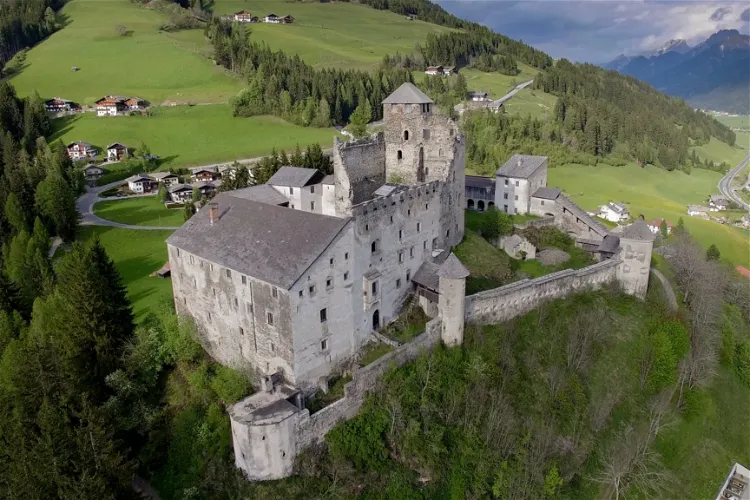
Heinfels Castle
PanzendorfBurg Heinfels, a castle in Heinfels, Tyrol, Austria, is a significant historical site. It is strategically located near the entrance to the Villgraten Valley, offering visitors a glimpse into the region's rich past. The castle's location also provides stunning views of the surrounding landscape, making it a worthwhile destination for those interested in history and nature.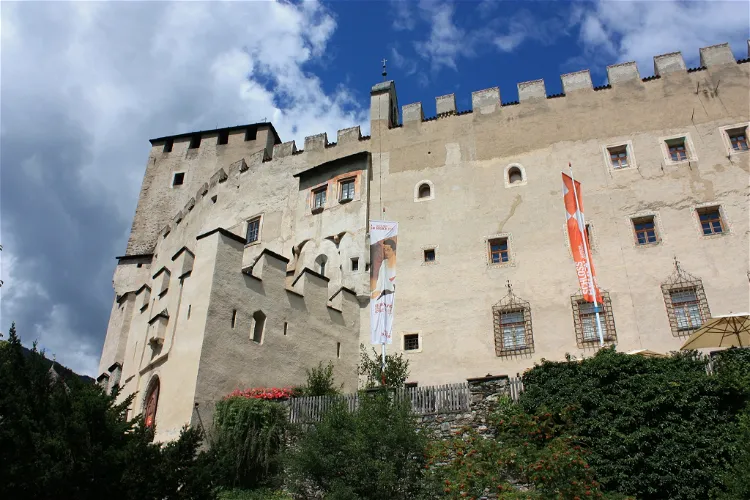
Burg Bruck
LienzSchloss Bruck served as the residence of the Counts of Görz from around 1278 to 1500, adding a rich historical context to the castle. One of the key features of the castle is its chapel, adorned with frescoes by Simon von Taisten. These frescoes are a significant attraction for art and history enthusiasts visiting the castle.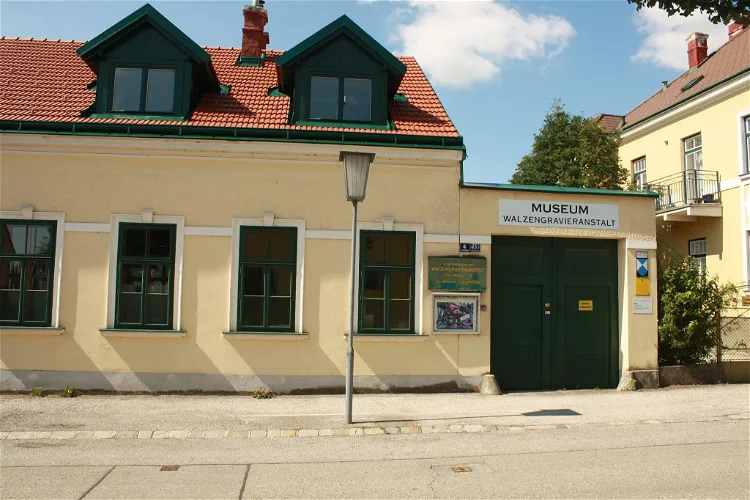
Museum Walzengravieranstalt Guntramsdorf
GuntramsdorfThe Museum Walzengravieranstalt Guntramsdorf is an industrial museum situated in the town of Guntramsdorf, Lower Austria. It offers a unique insight into the industrial history of the region, showcasing the operations of the former roller engraving establishment, which was the only one of its kind in Austria.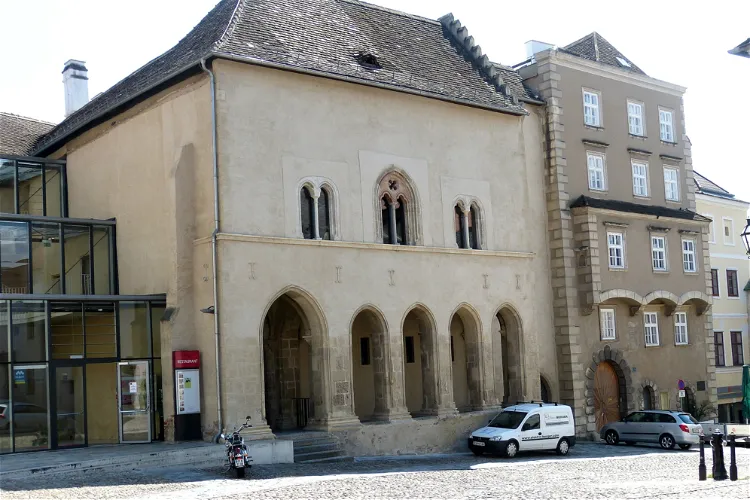
Gozzoburg Castle
Krems an der DonauGozzoburg is a high medieval city castle located in Krems an der Donau, Lower Austria. This historical site offers a glimpse into the past, showcasing architecture from the high middle ages. The castle's unique structure and historical significance make it a notable destination for those interested in history and architecture.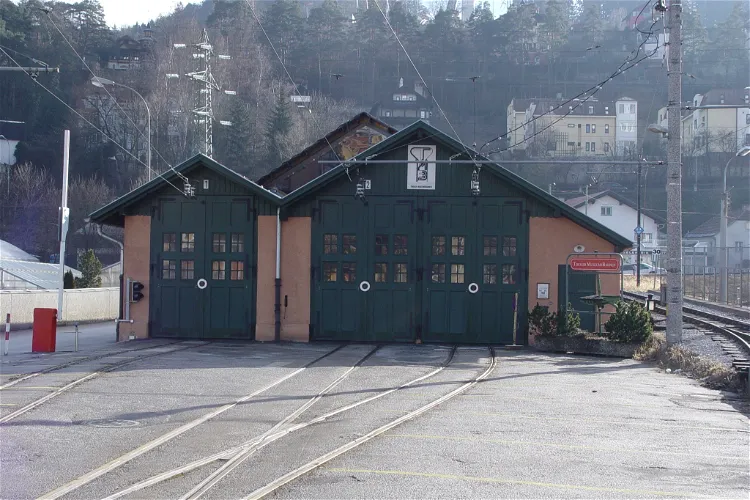
Innsbruck Stubaital Station
InnsbruckThe Stubaital station premises once included a goods depot, a station building with a kiosk, a waiting hall, and a stationmaster's office. Additionally, it had a two-road locomotive shed for the Stubai Valley Railway, reflecting the station's bustling activity during its operational years.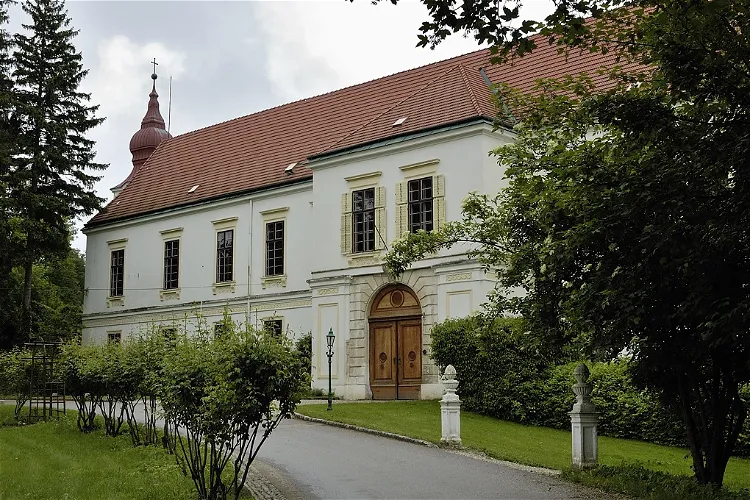
Loosdorf Castle
FallbachLoosdorf Castle, situated in the Lower Austrian wine quarter in the municipality of Fallbach, is a historical site with a rich past. The castle was first mentioned in historical documents in 1416, under the name Feste Lostorff. This makes it a place of interest for those who appreciate history and architecture.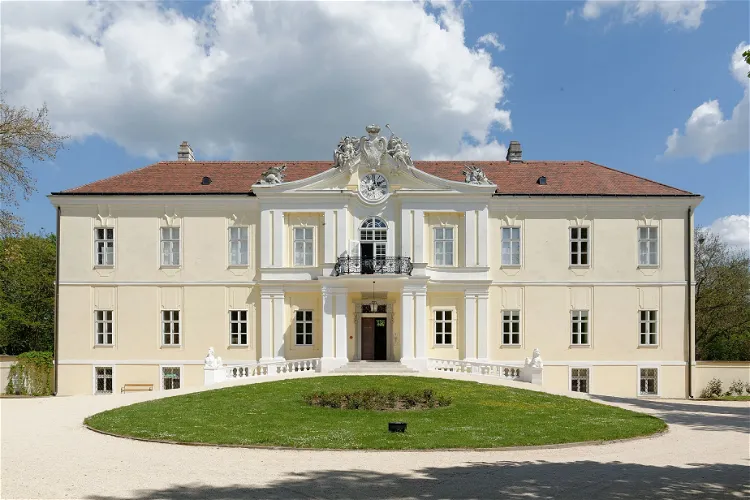
Wilfersdorf Castle
Wilfersdorf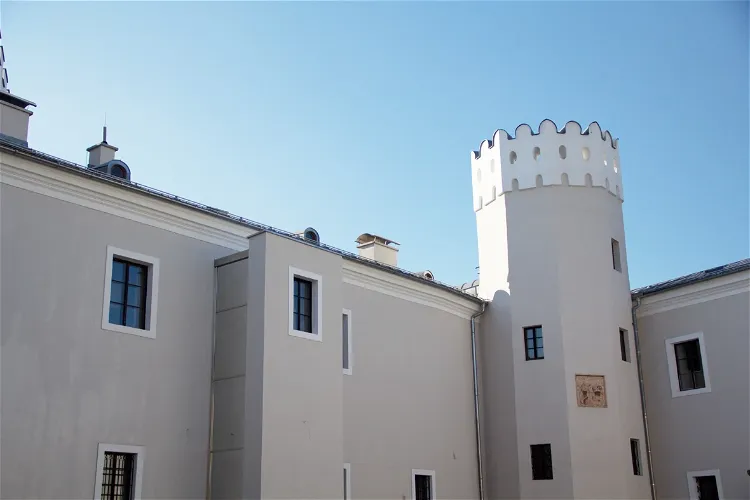
Ebelsberg Castle
LinzEbelsberg Castle, located in the Ebelsberg district of Linz, Austria, is a historical site with a rich military history. The castle was first mentioned in historical records in 1154 and has been the site of numerous military conflicts over the centuries. The most famous of these conflicts is the Battle of Ebelsberg, which took place in 1809 during the Napoleonic Wars. This battle is a significant event in the castle's history and is likely to be of interest to tourists with an interest in military history.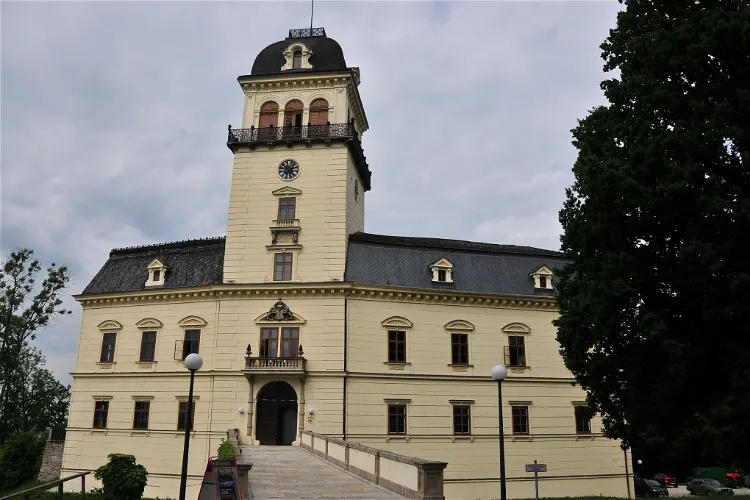
Schloss Tollet
LahofSchloss Tollet is a Renaissance castle situated in the municipality of Tollet. It is located two kilometers northwest of Grieskirchen. This historical site offers a glimpse into the past, showcasing the architectural style of the Renaissance period. Visitors can explore the castle and its surroundings, immersing themselves in the rich history of the region.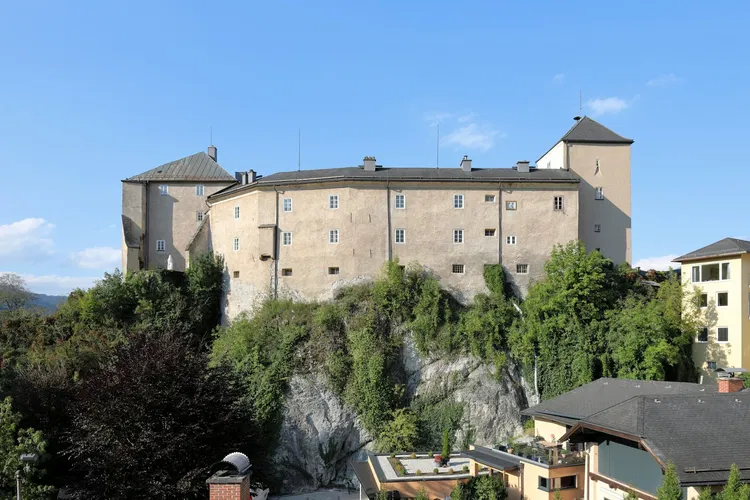
Museum Burg Golling
TorrenIn 1971, a museum was established within the castle, offering visitors a glimpse into the castle's rich history. The museum also showcases fossil finds from the surrounding area, providing a unique opportunity to learn about the region's geological past. This combination of history and science makes the museum a compelling attraction for tourists.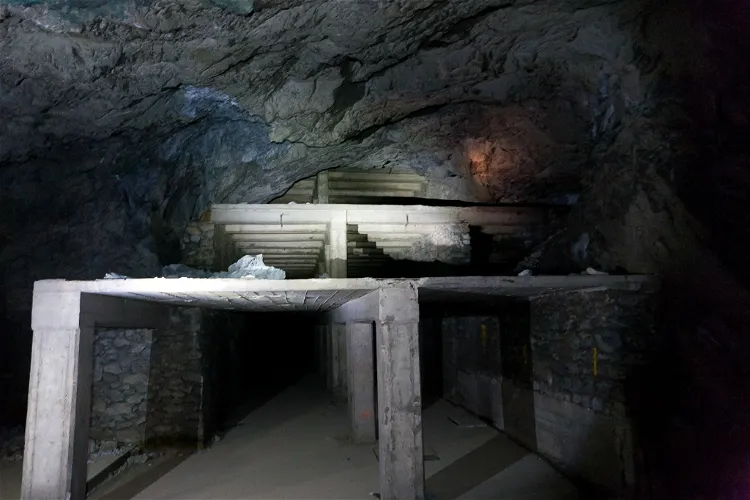
Schwaz Silver Mine
SchwazThe Schwaz Silver Mine, located in Schwaz, Tyrol, is a visitor mine that offers a unique opportunity to explore the history and workings of a silver mine. The mine, which was one of the largest and most productive in the region during the late Middle Ages, provides a fascinating insight into the harsh conditions faced by miners and the techniques they used to extract silver and other minerals.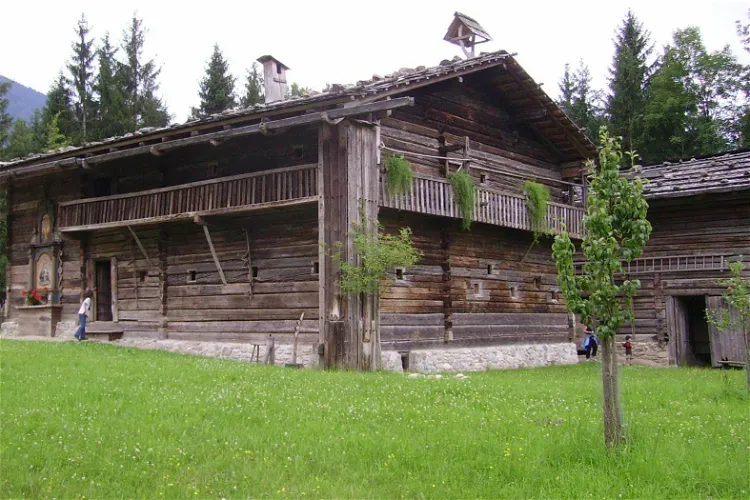
Salzburg Open Air Museum
GroßgmainThe Salzburg Open Air Museum is situated in the state of Salzburg, approximately 15 km southwest of the city of Salzburg. It is nestled in the municipality of Großgmain, close to the German-Austrian border. This location makes it easily accessible for tourists coming from both Austria and Germany.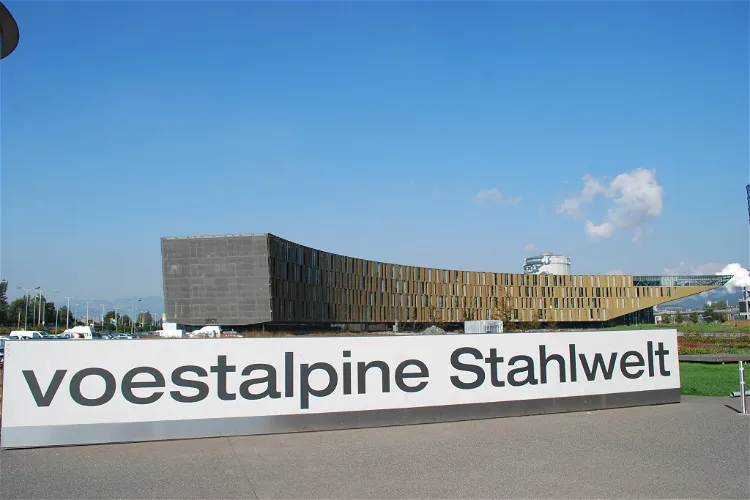
Voestalpine Steel World
LinzThe most important steel production factories of Voestalpine AG are located in Linz, Leoben, and Krems. These locations are significant as they are the heart of the company's steel production operations.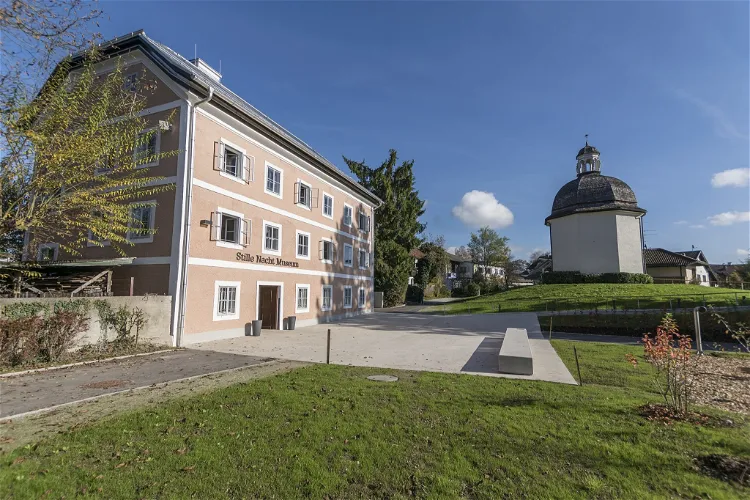
Stille Nacht Museum
SalzburgThe Stille-Nacht & Heimatmuseum is a regional museum situated in Oberndorf bei Salzburg, Austria. The museum's primary focus is on the history of the globally renowned Christmas carol, 'Silent Night'. It provides an in-depth exploration of the song's origins and its cultural significance over the years.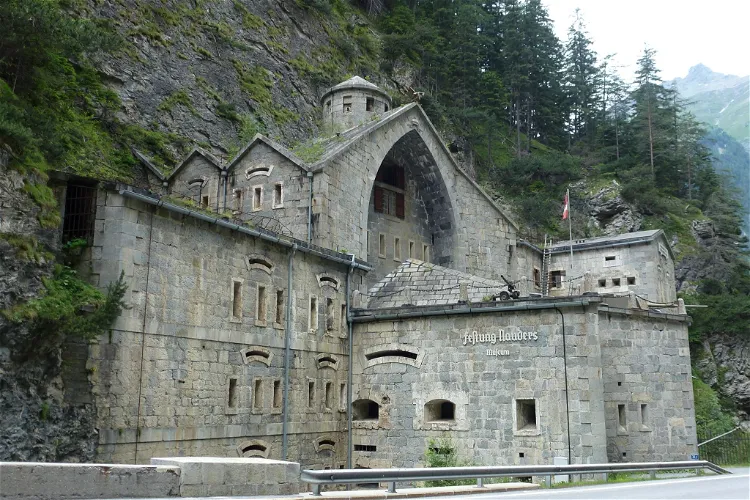
Festung Nauders
NaudersThe Nauders fortress was not involved in combat, which has contributed to its excellent preservation. Today, it houses the “Festung Nauders” museum, providing visitors with a unique opportunity to explore the history and architecture of this historic site. The narrow point of the passing road is referred to as the Finstermünz pass, adding to the strategic importance of the location.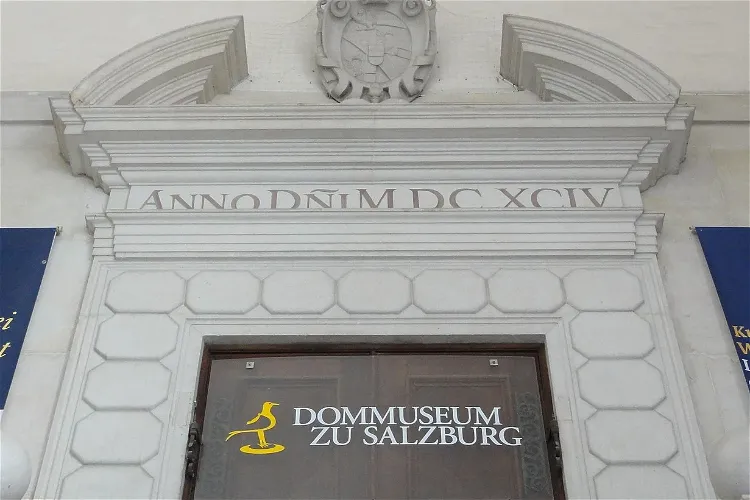
Cathedral Museum
SalzburgThe Salzburg Cathedral Museum, located in the South Oratory of the Salzburg Cathedral, serves a dual role as the Diocesan Museum. This unique location within the cathedral itself offers visitors a chance to explore the rich history and religious significance of the region.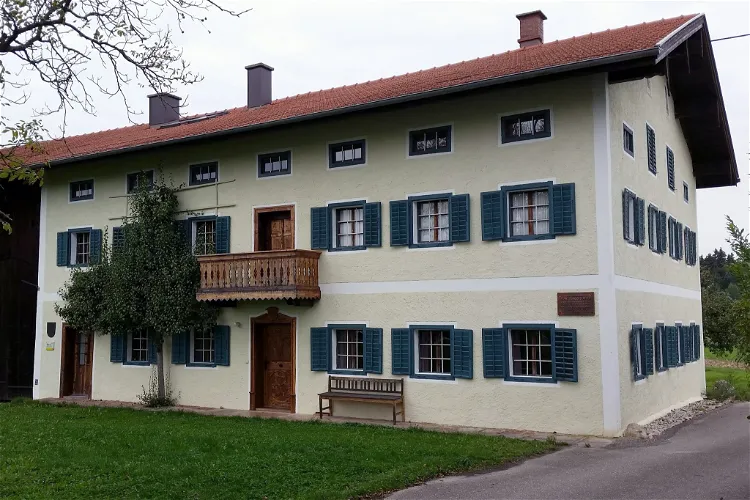
Franz Jägerstätter
Sankt RadegundFranz Jägerstätter was an Austrian conscientious objector during World War II. He was born in Sankt Radegund, a small village in Upper Austria, between Salzburg and Braunau am Inn, where almost everyone was Catholic. He was sentenced to death and executed for refusing to fight for Nazi Germany. His story is a significant part of the history of Sankt Radegund and is likely to be of interest to tourists visiting the area.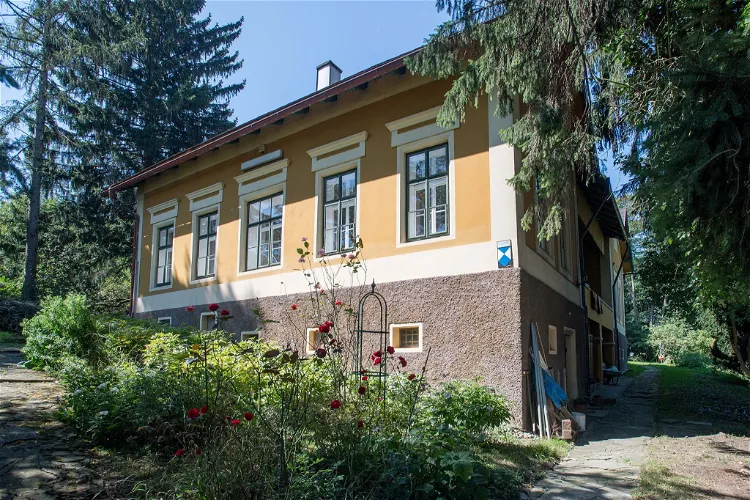
Josef Weinheber
KirchstettenIn honour of Josef Weinheber, part of his house in Kirchstetten, located on Josef Weinheber Strasse, has been preserved as a museum. This museum offers visitors a glimpse into the life and works of this notable Austrian poet, providing a unique cultural experience.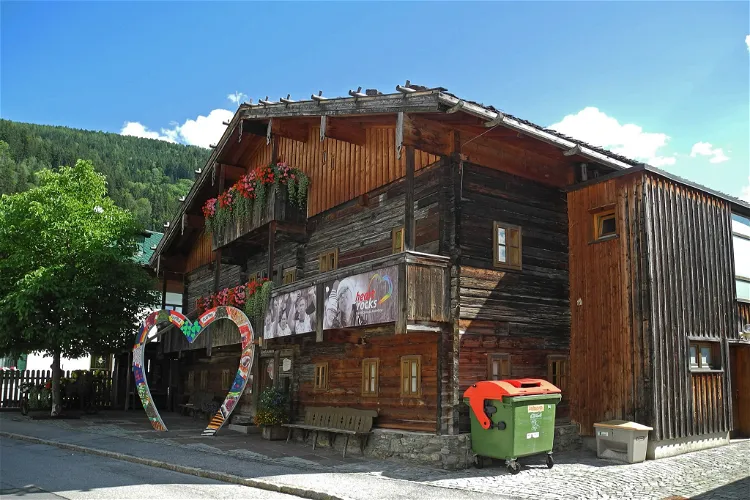
City Museum Schladming
SchladmingIf you want to learn more about the region, head here. The exhibitions will take you through the history of the town and mining.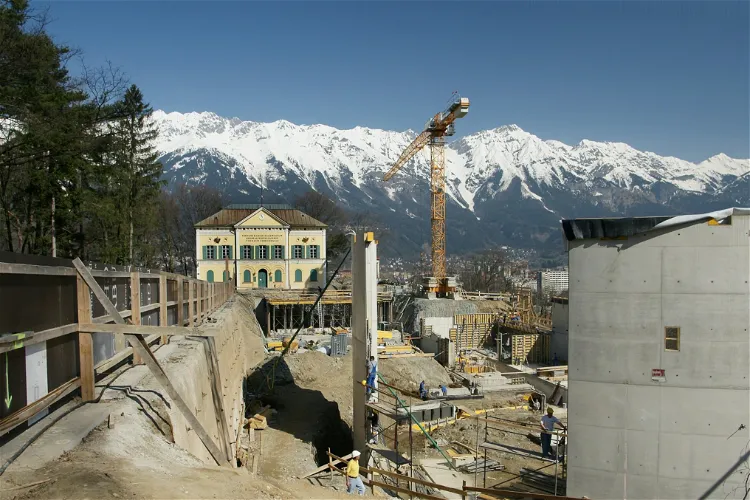
Tyrol Panorama Museum
InnsbruckThe Tirol Panorama, also known as the Museum of the Imperial Infantry, is a significant museum located in Innsbruck, in the Austrian state of Tyrol. Its primary importance lies in the fact that it is home to the Innsbruck Giant Panorama Painting, a significant piece of art that attracts numerous visitors each year.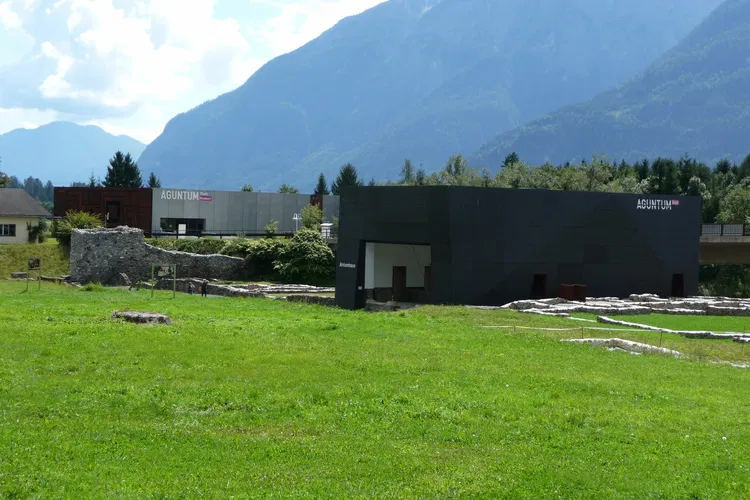
Aguntum
StribachAguntum, a Roman settlement, is situated in the present-day Austrian state of Tyrol, approximately 4 km east of Lienz. The settlement was elevated to the status of an autonomous city, Municipium Claudium Aguntum, by Emperor Claudius. This historical significance of Aguntum provides a rich backdrop for visitors to the museum.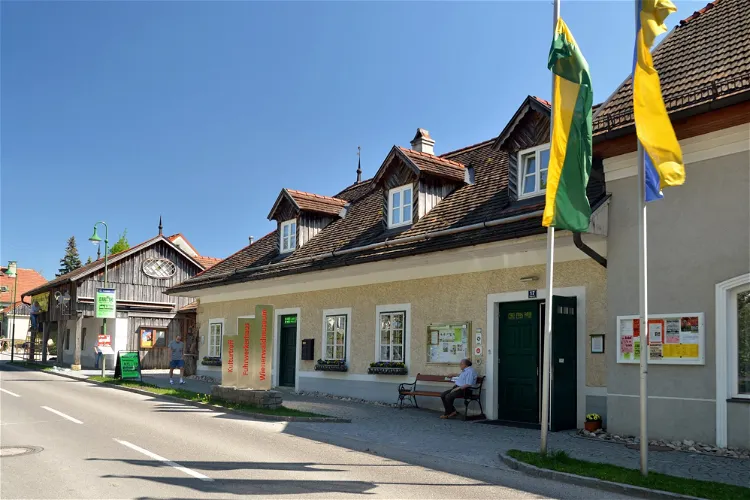
Wienerwaldmuseum Eichgraben
HuttenThe Wienerwaldmuseum Eichgraben is a local museum located in Eichgraben, Lower Austria. It offers a unique opportunity to explore the local history and culture of the region.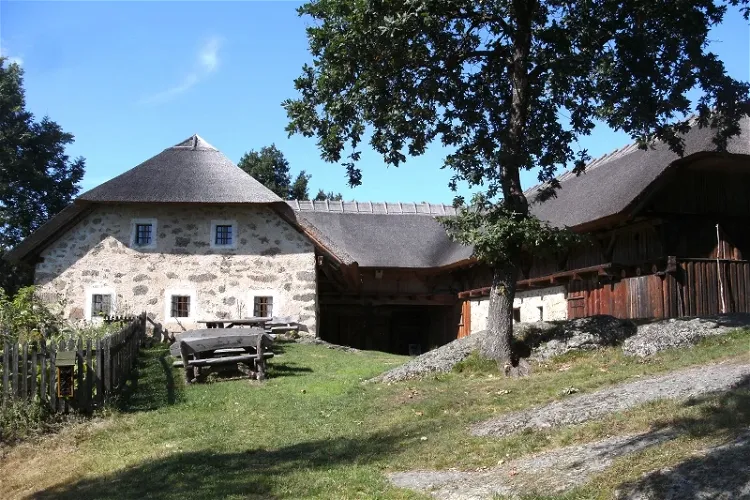
Großdöllnerhof
RechbergGroßdöllnerhof is a historical site that dates back 400 years. It is located in the Mühlviertel Nature Park in the municipality of Rechberg. Today, it serves as an open-air museum, offering visitors a glimpse into the past. The farmstead is a protected monument, showcasing the typical Mühlviertel technique of stone-bare wall construction. This technique involves the use of uncut granite blocks and whitewashed mortar zones to structure the exterior walls.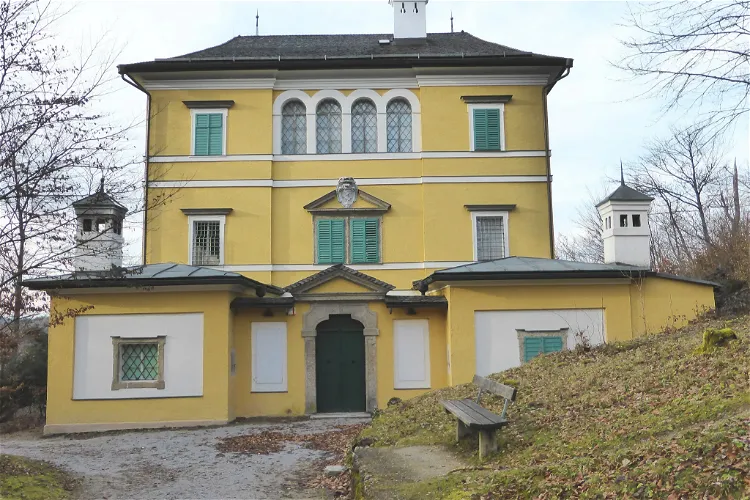
Folklore Museum
SalzburgThe Folklore Museum in Salzburg, Austria, is located in the Hellbrunner Monatsschlössl, a structure that dates back to 1615. It was originally built for Archbishop Markus Sittikus as a viewing castle, offering panoramic views of the artistic princely garden of Hellbrun Castle. This historic location has been the home of the museum since 1924, providing a unique setting for the exploration of Salzburg's folk culture.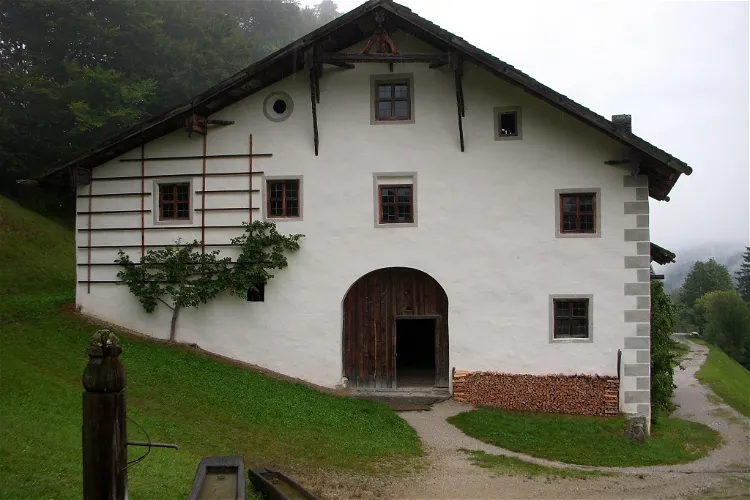
Museum of Tyrolean Farms
KramsachThe Museum of Tyrolean Farms, located in Kramsach, Austria, is an open-air museum that offers a unique glimpse into the past. It houses around 14 historical farms and 23 outbuildings, including barns, chapels, and alpine pastures. These structures have been carefully preserved and restored, providing visitors with an authentic experience of rural life in pre-industrial times.- 85
Musical Instruments Museum
Sankt Gilgen 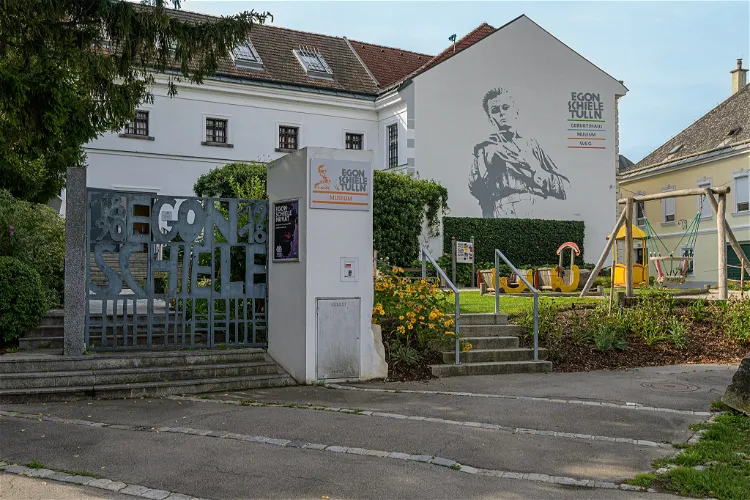
Egon-Schiele-Museum
Tulln an der DonauThe Egon Schiele Museum in Tulln an der Donau is a museum of fine arts dedicated to the painter Egon Schiele, who was born in the town. The museum showcases the early works of the artist and his relationship with his hometown Tulln and the region of Lower Austria. It also highlights his passion for toy trains.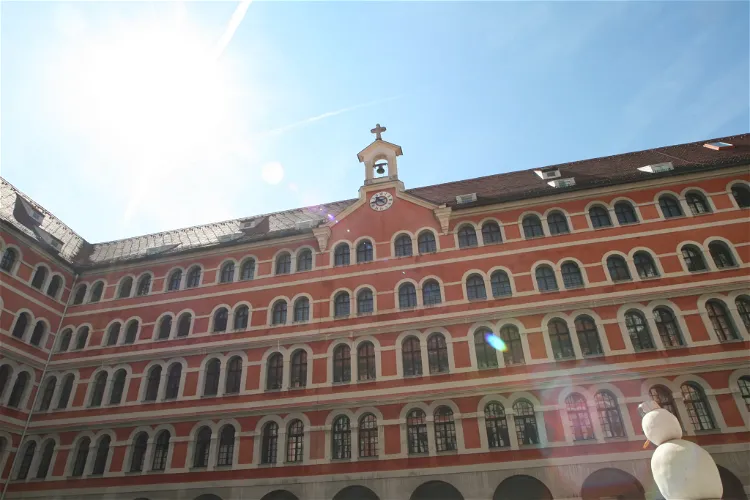
Diözesanmuseum Graz
GrazThe Diözesanmuseum Graz is a museum that represents the Diocese of Graz-Seckau. It is located in Graz, a city in Austria. The museum is a significant institution that showcases the history and culture of the local Catholic Church.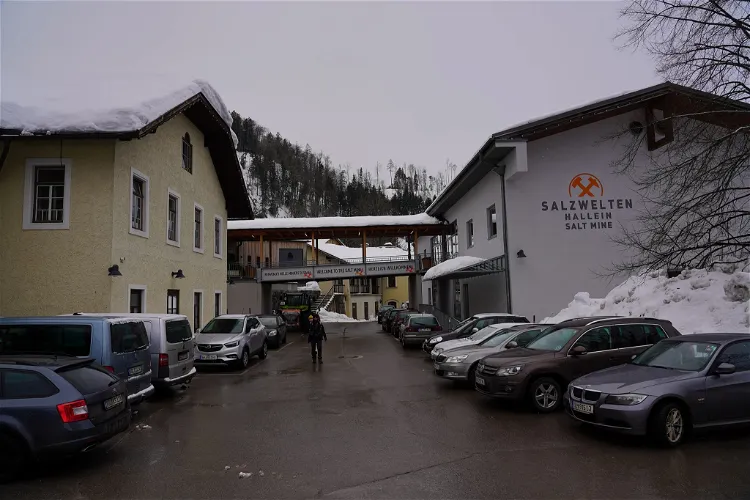
Hallein Salt Mine
HalleinThe Hallein Salt Mine, also known as Salzbergwerk Dürrnberg, is an underground salt mine located in the Dürrnberg plateau above Hallein, Austria. This historical site has been worked for over 7,000 years, dating back to the Celtic times. It played a significant role in helping nearby Salzburg become a powerful economic center.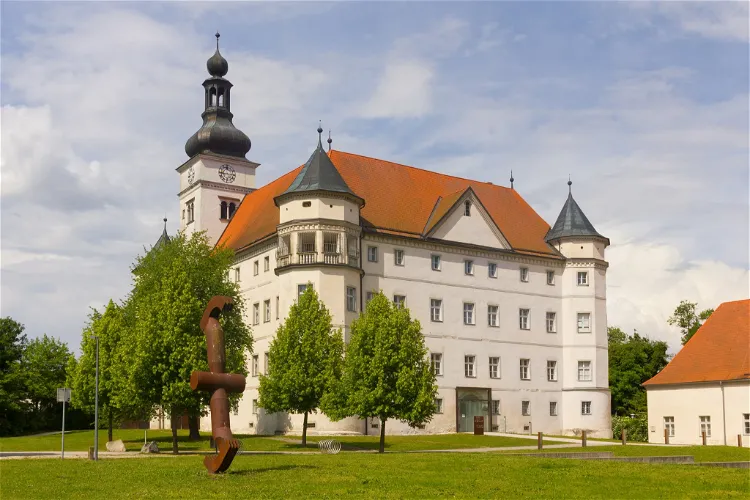
Hartheim Castle
AlkovenHartheim Castle, also known as Schloss Hartheim, is a significant Renaissance castle located in Alkoven, Upper Austria, approximately 14 kilometres away from Linz, Austria. The castle was constructed by Jakob von Aspen in 1600 and stands as a prominent example of Renaissance architecture in the country.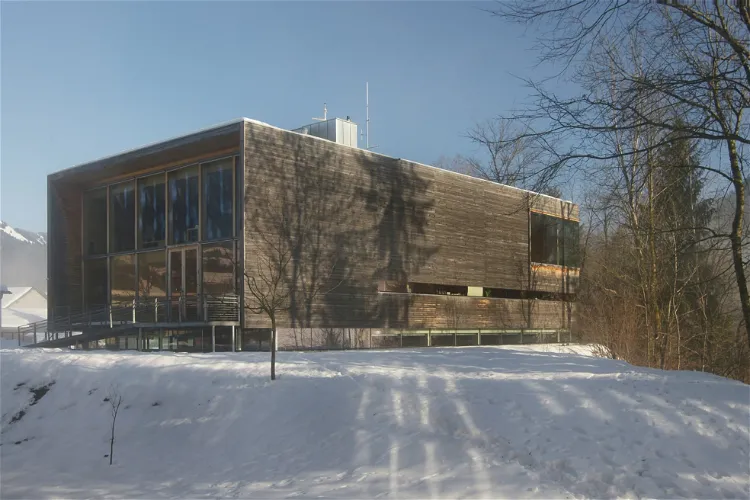
Hittisau Women's Museum
HittisauThe Hittisau Women's Museum is situated in the town of Hittisau, nestled in the Bregenzerwald region of Vorarlberg, Austria. This location offers a unique blend of cultural and natural attractions, making it an interesting destination for tourists.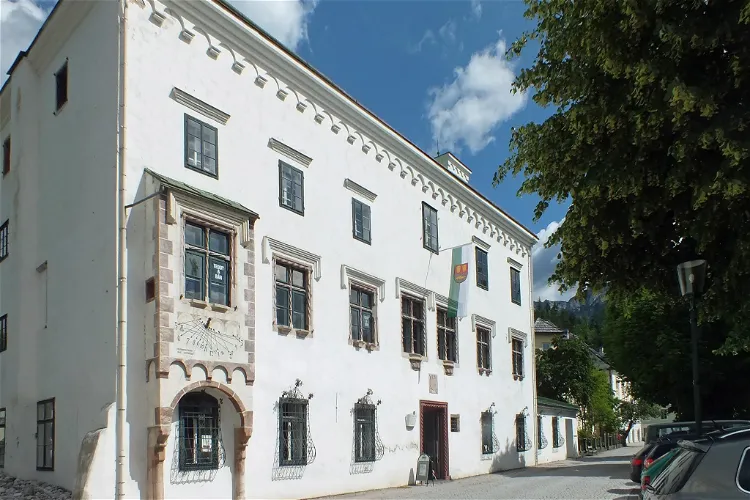
Kammerhofmuseum
Bad AusseeThe Ausseer Kammerhofmuseum is a local history museum situated in the Kammerhof in Bad Aussee, Salzkammergut, Austria. The museum is housed in a building that was first mentioned in historical documents in 1395. Over the centuries, the building has undergone several renovations, but much of the original structure has been preserved.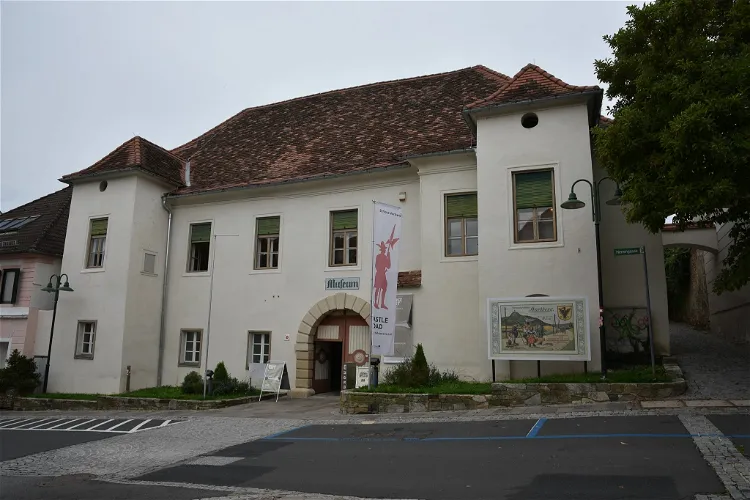
Museum Hartberg
Hartberg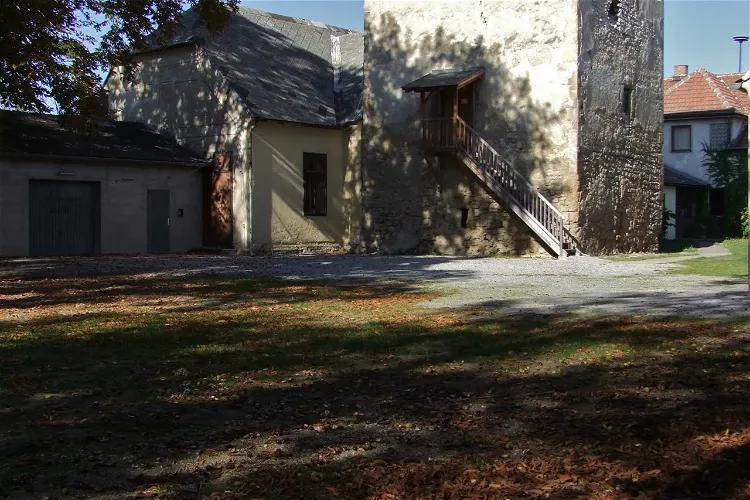
Wehrturm
Palterndorf-DobermannsdorfThe Wehrturm in Palterndorf, located in the Weinviertel region of Lower Austria, holds a rich history. It was first mentioned in the Liechtensteiner Urbar in 1414, but it is believed to be significantly older. This historical significance adds to the charm and allure of the tower, making it an interesting site for tourists who appreciate history.- 94
Ötzi Village
KöfelsThis archeologic open-air museum shows the village life and houses from the Ötzi era. 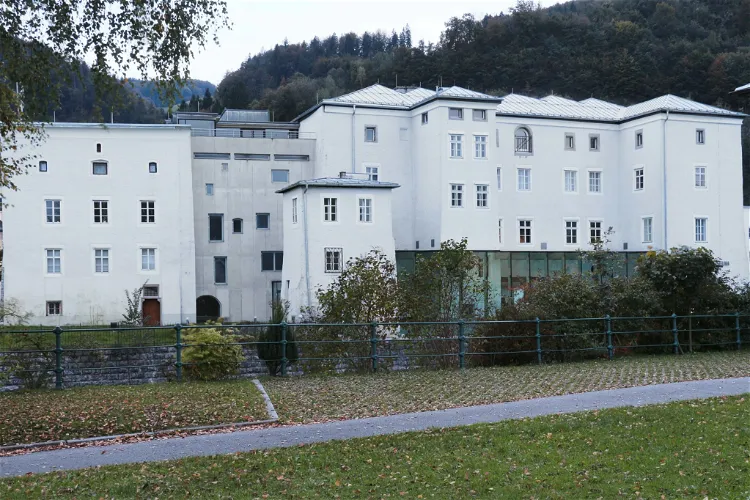
Keltenmuseum
HalleinThe Keltenmuseum Hallein is situated directly on the Salzach at Pflegerplatz No. 5 in the town of Hallein, in the state of Salzburg. This location is easily accessible and offers a picturesque setting for visitors to the museum.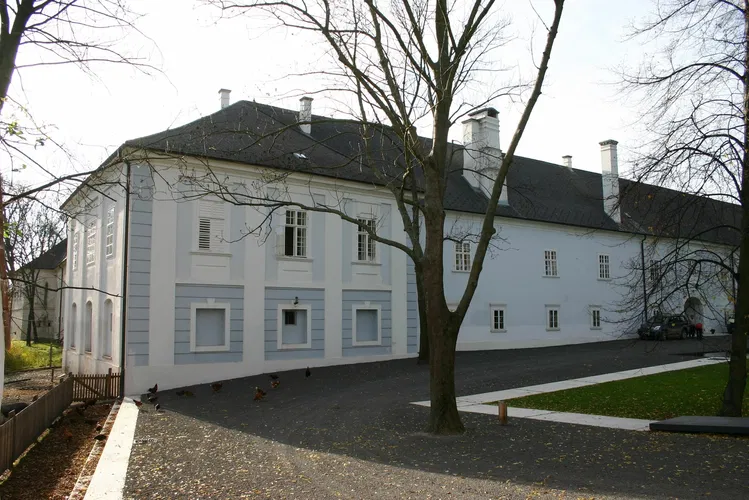
Schloss Lackenbach
LackenbachSchloss Lackenbach, also known as Lakompaki kastély in Hungarian, is a water castle situated southeast of the town of Lackenbach in Burgenland, Austria. This historic castle is under the administration of Esterhazy Betriebe AG. The castle's unique location and its historical significance make it an interesting destination for tourists.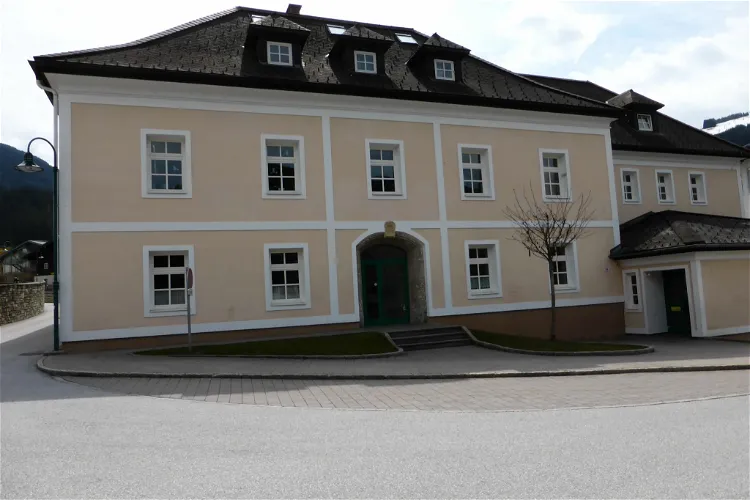
Waggerl Museum
KirchbodenKarl Heinrich Waggerl, the namesake of the Waggerl Museum, was an Austrian writer born in Bad Gastein on December 10, 1897. He passed away in Wagrain on November 4, 1973. His life and works are a significant part of the museum's exhibits.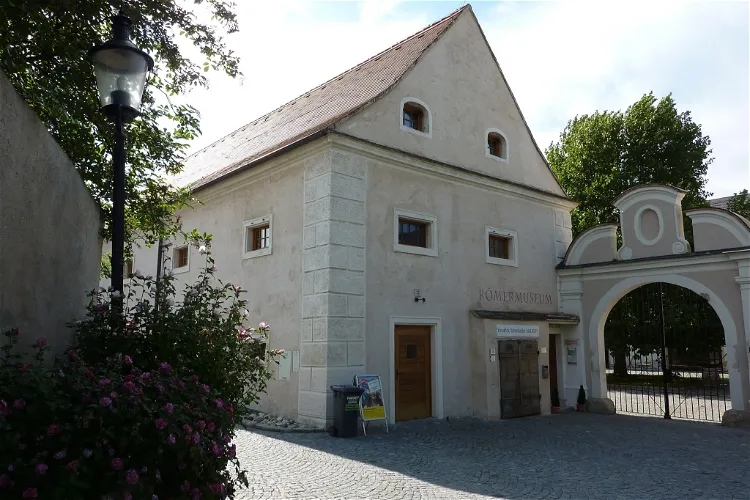
Römermuseum Mautern
Mautern an der Donau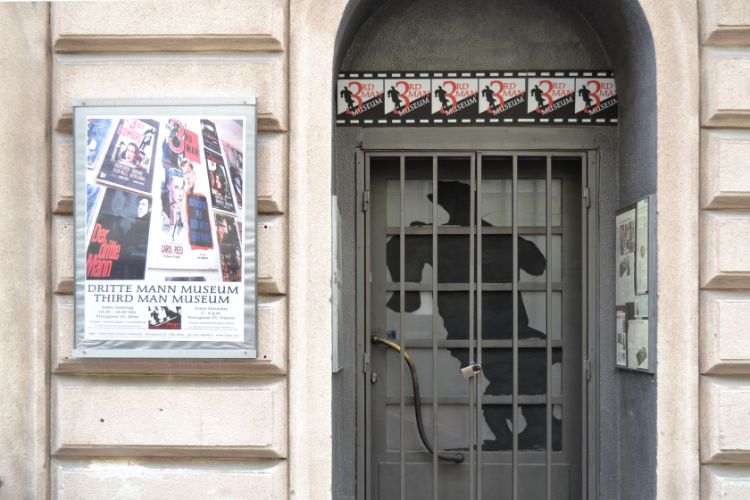
The Third Man Museum
ViennaThe Third Man Museum is a film museum in Vienna's that displays an extensive collection of original exhibits exclusively around the 1948 international film success "The Third Man", based on the eponymous novel by Graham Greene, on an area of over 400 square meters in 14 rooms. The exhibited exhibi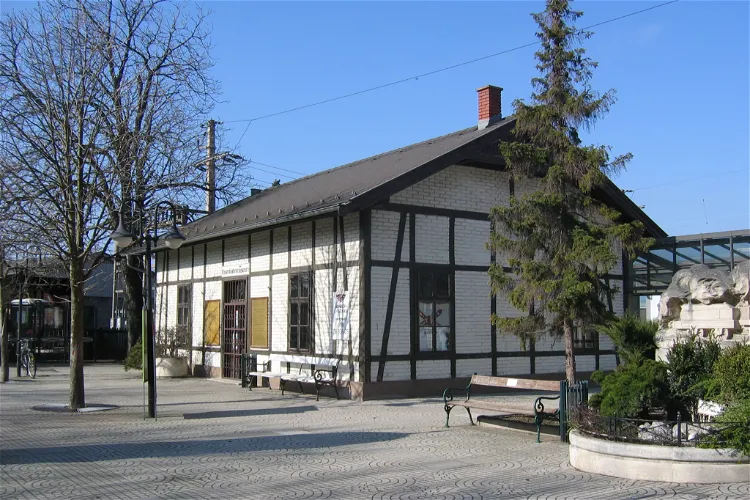
Eisenbahnmuseum Deutsch-Wagram
Deutsch-Wagram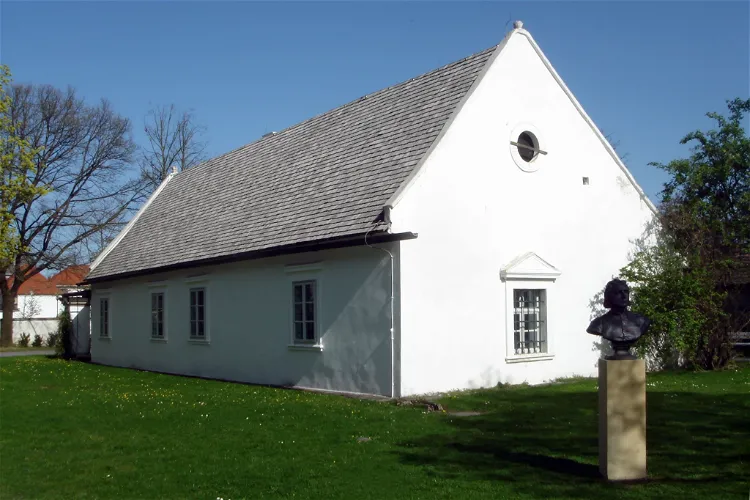
Liszthaus Raiding
RaidingThe Franz Liszt Birthplace is a significant location for music enthusiasts and history buffs alike. Located in the picturesque town of Raiding in Burgenland, the house is situated at Lisztstraße 46. This is the very place where the world-renowned composer Franz Liszt was born and spent his early years. It offers a unique opportunity to step back in time and explore the roots of this musical genius.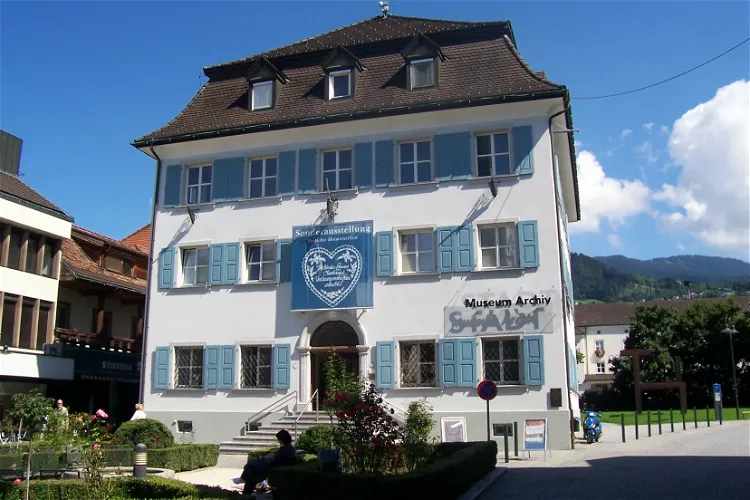
Stadtmuseum Dornbirn
DornbirnThe Stadtmuseum Dornbirn is a museum that focuses on the history of the city of Dornbirn, located in the Austrian state of Vorarlberg. It provides a comprehensive overview of the city's past, making it an ideal destination for those interested in learning more about Dornbirn's history.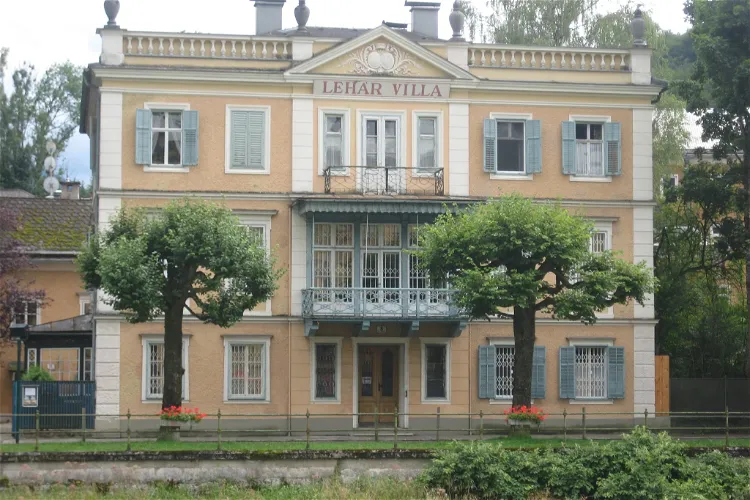
Lehár Villa
Bad IschlThe Lehár Villa in Bad Ischl, located at Lehár-Kai 8 in the Salzkammergut region, was once the summer residence of the famous composer Franz Lehár. He purchased the property in 1912 from the Duchess of Sabran and spent nearly every summer there. This historical connection adds a unique charm to the villa, making it an interesting destination for those interested in Lehár's life and work.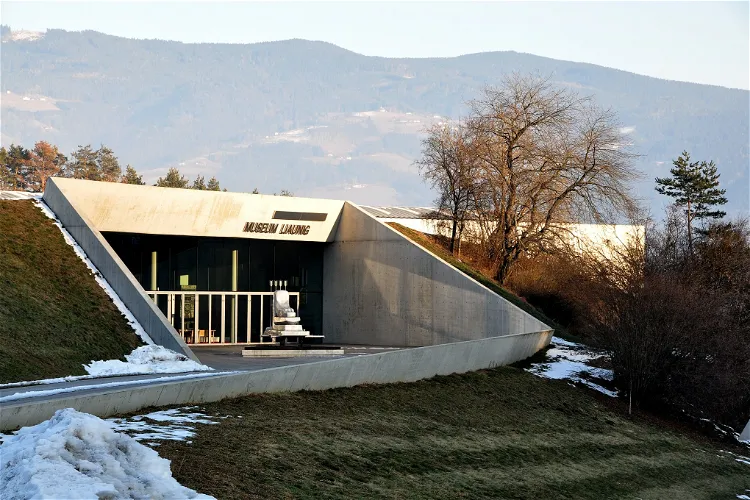
Museum Liaunig
NeuhausThe Museum Liaunig, located in Neuhaus, is a private art museum in the region of Carinthia, Austria. It was inaugurated in 2008 and is one of the country's private museums dedicated to contemporary art. The museum showcases the private collection of industrialist and art collector Herbert W. Liaunig, who resides in Neuhaus Castle in southeastern Carinthia. Since 2018, the museum has been managed by his son, architect Peter Liaunig.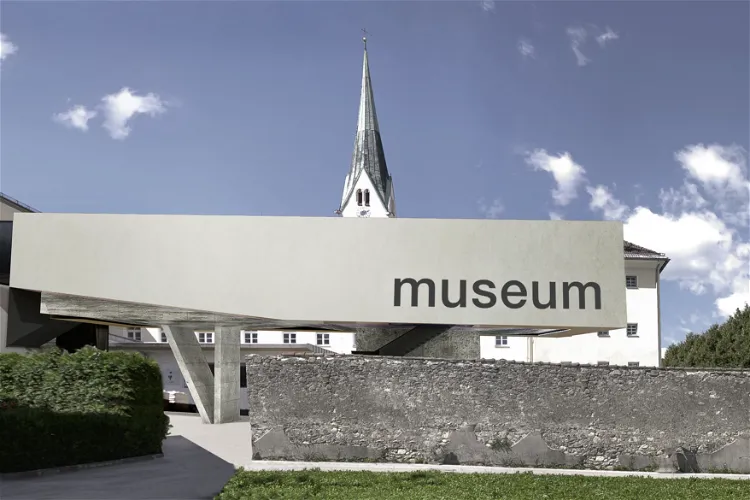
Museum der Völker
SchwazThe Museum der Völker, located in Schwaz, Tyrol, was established in 1995 by Gert Chesi. It is recognized as one of the European museums that house ethnographic collections, providing a rich insight into various cultures and civilizations.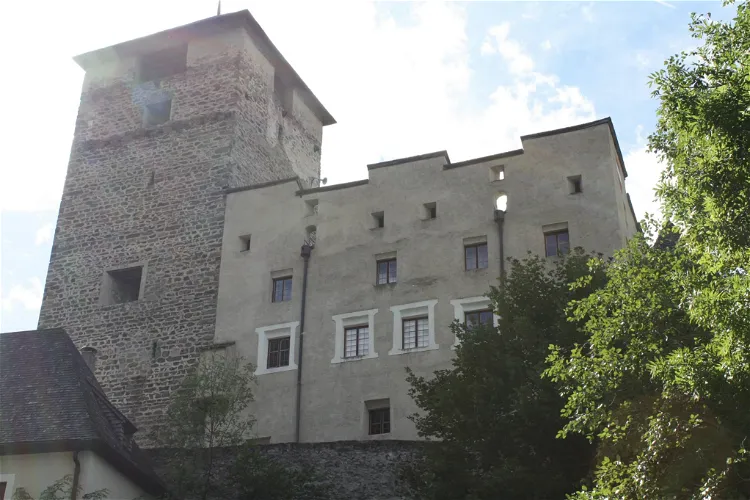
Landeck Castle
LandeckLandeck Castle is situated in a picturesque location in the south of the city of Landeck. It is perched on a rocky hill, nestled between the eastern valley slope and the deeply incised Inn. This strategic location offers stunning views of the surrounding landscape, making it a popular spot for tourists.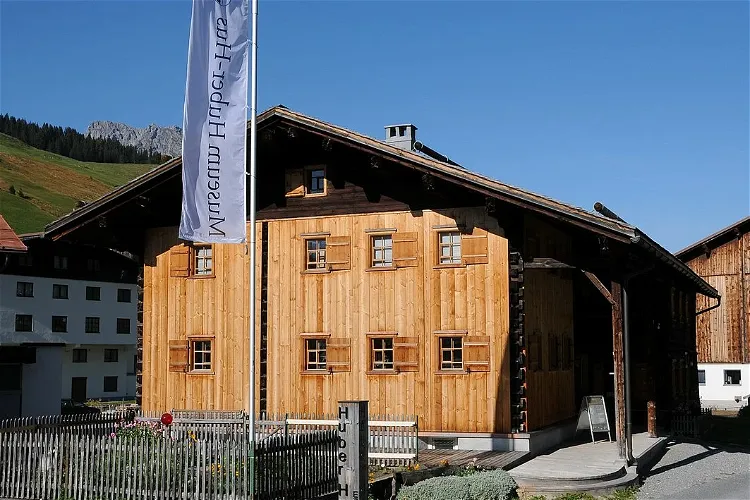
Huber-Hus
LechThe Huber-Hus in Lech, a museum that was built in the late 16th century, has been open to the public since 2005. This museum provides visitors with insights into the rural living and working culture of the past. It's a great place to learn about the history and culture of the region.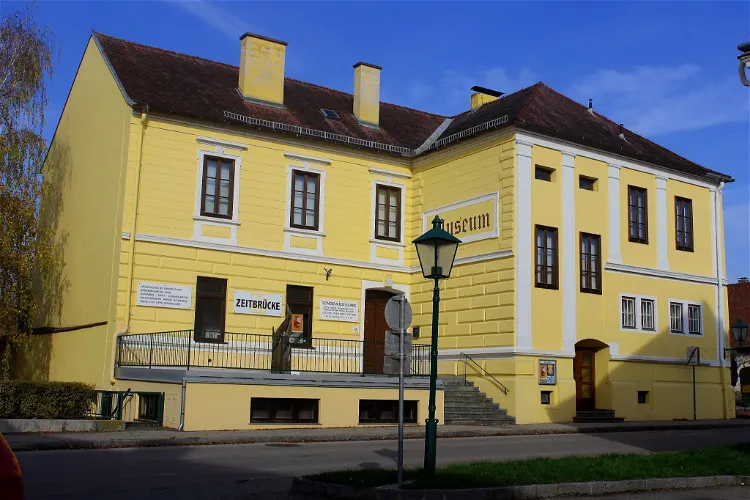
Zeitbrücke-Museum
Gars am KampThe Zeitbrücke-Museum, situated in Gars am Kamp in Lower Austria, is a regional museum that offers visitors a glimpse into the rich history of the area. The museum features permanent exhibitions about the composer Franz von Suppé, who had his summer residence here, and provides insights into 400 years of trade and 5000 years of settlements in the region. These exhibitions offer a comprehensive understanding of the region's cultural and historical development.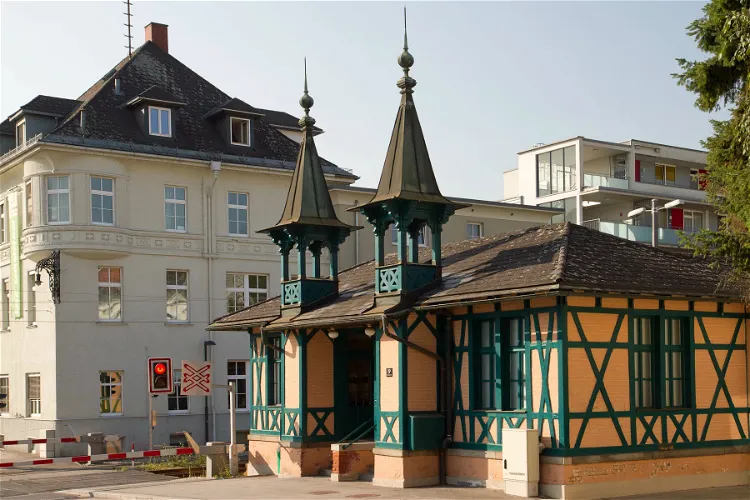
Pöstlingbergbahn-Museum
LinzA museum dedicated to the Pöstlingbergbahn, one of the world's steepest railways, located in its former terminus.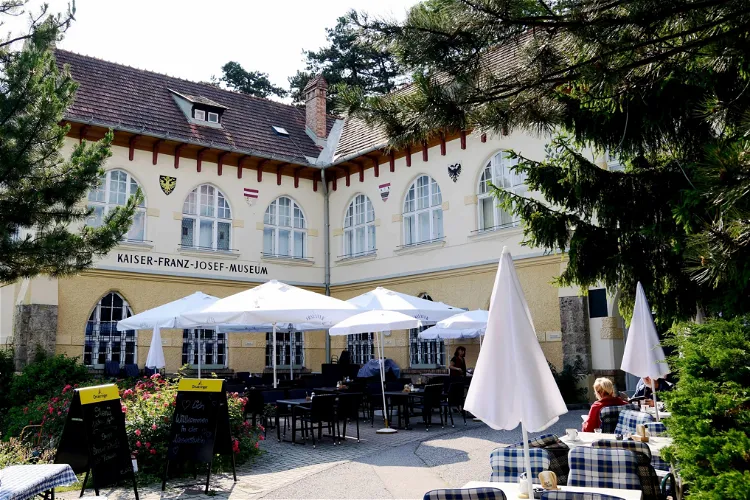
Kaiser Franz Josef Museum
BadenThe Kaiser-Franz-Josef-Museum is situated on the outskirts of the Vienna Woods, in the charming town of Baden near Vienna, Lower Austria. This location offers visitors a unique blend of cultural exploration and natural beauty, making it an ideal destination for those interested in both history and nature.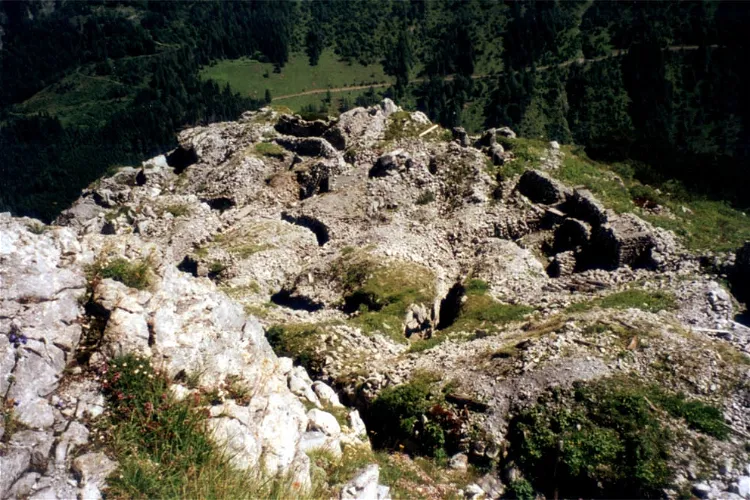
Museum 1915 - 1918
Kötschach-MauthenThe Museum 1915–18 is an anti-war museum situated in the town hall of the market town of Kötschach-Mauthen in Carinthia. This location offers a unique setting for the museum, which is dedicated to documenting the mountain war between Austria-Hungary and Italy during World War I.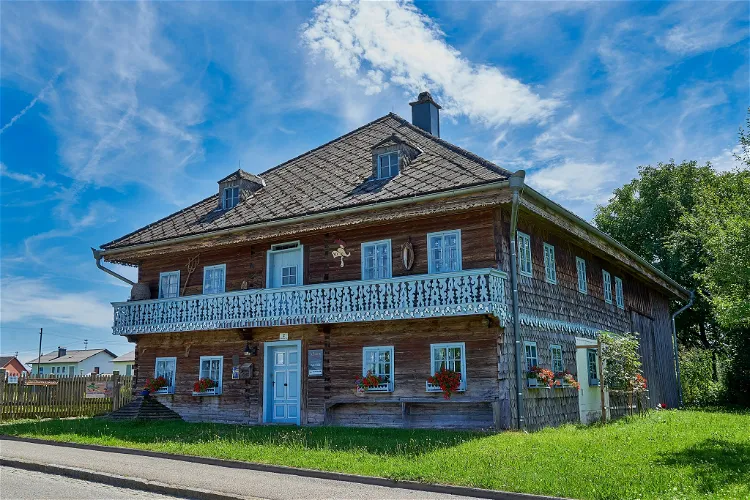
Ochzethaus
AltheimThe Ochzethaus is a Roman experience museum situated in Altheim, Upper Austria. Originally a farmhouse in the rural community of St. Laurenz, it was acquired by the Altheim municipality in 1993 and converted into a museum. The name 'Ochzethaus' is derived from the river name 'Ache', colloquially known as 'Och'.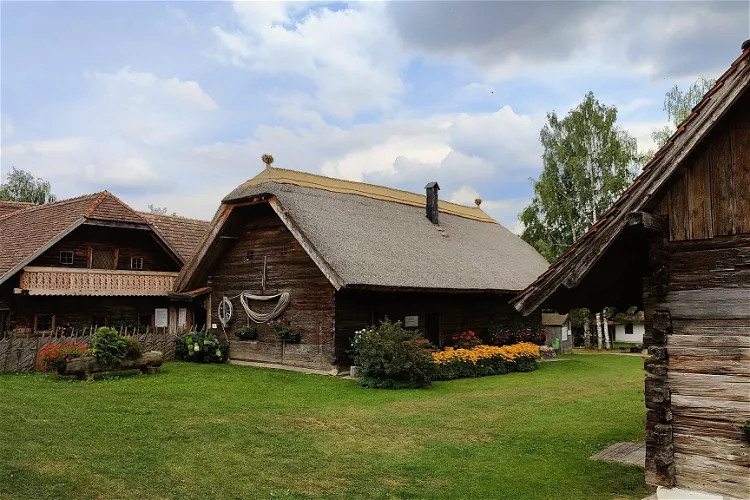
Freilichtmuseum Vorau
VorauThe Freilichtmuseum Vorau, also known as Museumsdorf Vorau, is a unique open-air museum located in Vorau, Styria. It offers a glimpse into the past by showcasing historical farmhouses complete with outbuildings and a variety of historical everyday objects. Visitors can explore the authentic rural buildings that have been carefully reconstructed on the museum's nearly 1-hectare site.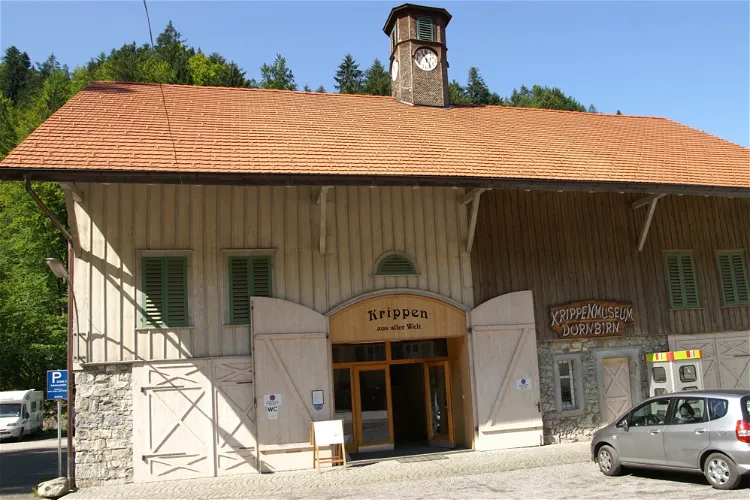
Krippenmuseum Dornbirn
DornbirnThe Krippenmuseum Dornbirn is situated in the "Glockenstadel" in Gütle, right at the entrance of the Rappenlochschlucht. This location makes it an easily accessible destination for tourists who are exploring the area.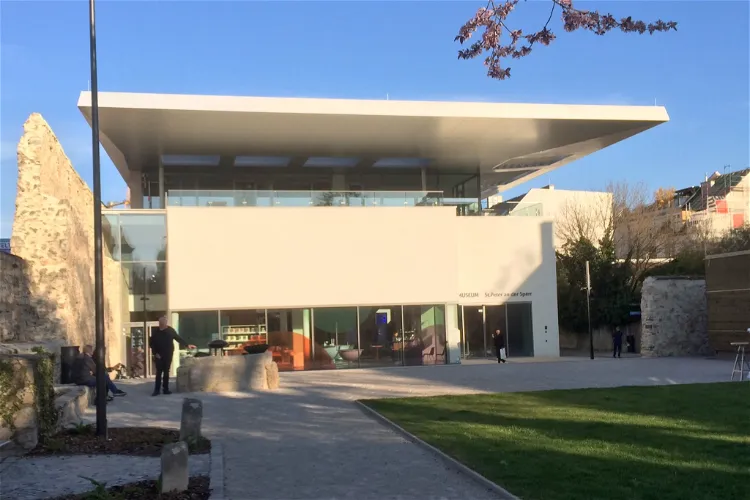
Museum St. Peter an der Sperr
Wiener NeustadtThe Museum St. Peter an der Sperr is situated in the Petersgasse, within the statutory city of Wiener Neustadt in Lower Austria. This location is easily accessible and offers a rich cultural experience for tourists visiting the area.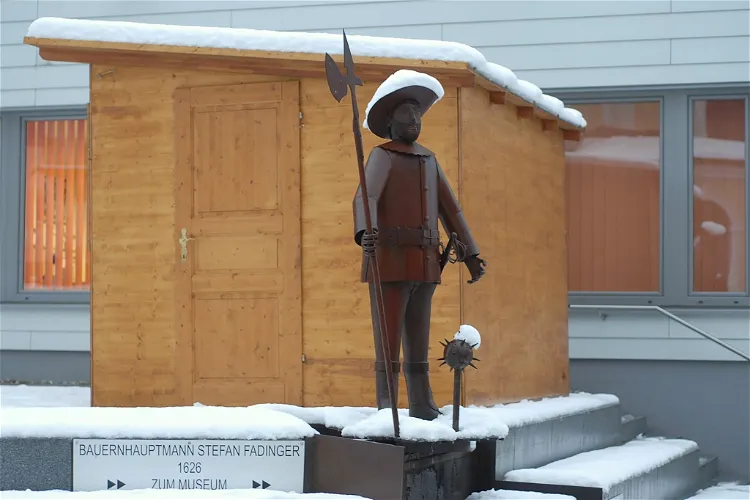
Stefan-Fadinger-Museum
KönigsdorfThe Stefan-Fadinger-Museum, located in St. Agatha in Upper Austria, is primarily dedicated to Stefan Fadinger. Fadinger is renowned as the most famous leader of the Upper Austrian Peasants' War of 1626. The museum offers a deep dive into the life and times of this significant historical figure, providing visitors with a unique insight into this turbulent period in Austrian history.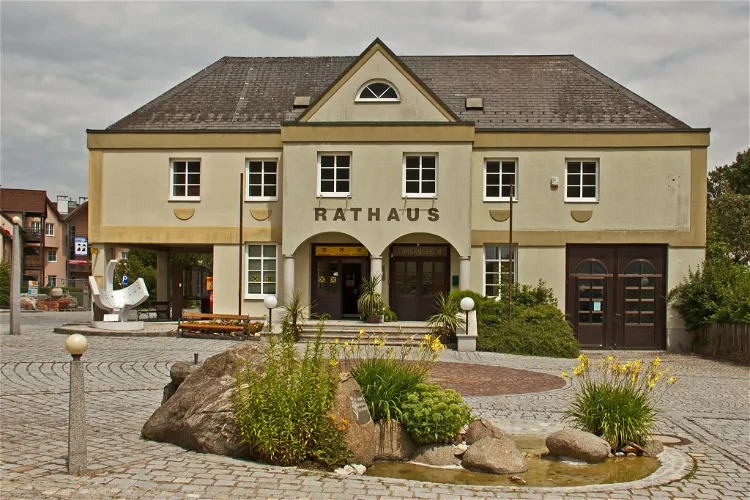
Uhrenmuseum Karlstein
Karlstein an der ThayaThe Uhrenmuseum Karlstein is a museum situated in the town of Karlstein an der Thaya, in the Lower Austria region. This location is significant as it is in the heart of the Austrian clock-making industry, making it a fitting place for a museum dedicated to the history and craft of horology.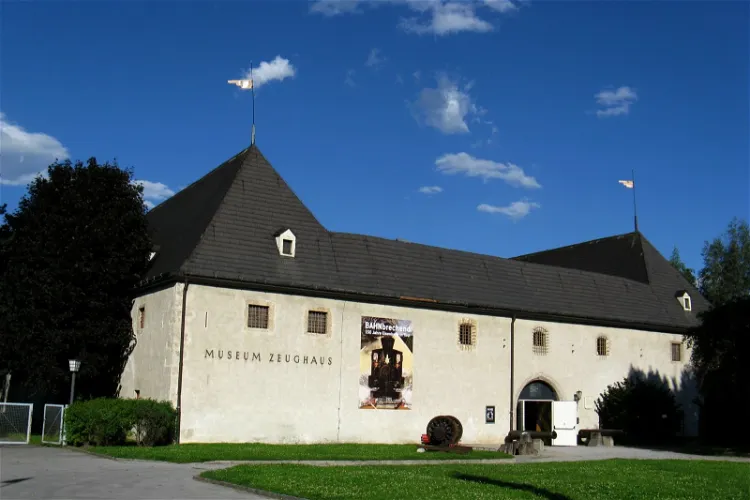
Zeughaus Museum
InnsbruckThe Zeughaus in Innsbruck, originally a weapons arsenal, is now a museum. It is situated in the Dreiheiligen district and is one of the five houses of the Tyrolean State Museums. This historical building, constructed between 1500 and 1505 under the orders of Maximilian I, offers a unique glimpse into the past.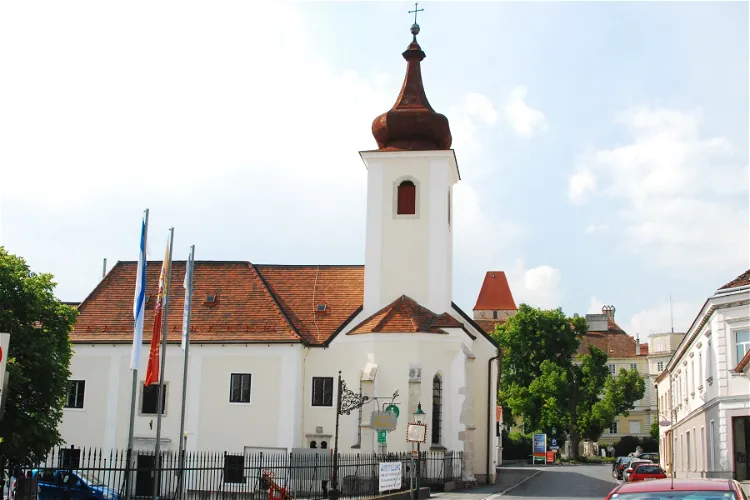
Höbarth Museum
HornThe Höbarth Museum, located in the city of Horn, is named after the local researcher Josef Höbarth. This museum is a significant part of the city's cultural and historical landscape, offering visitors a glimpse into the rich history and heritage of the region.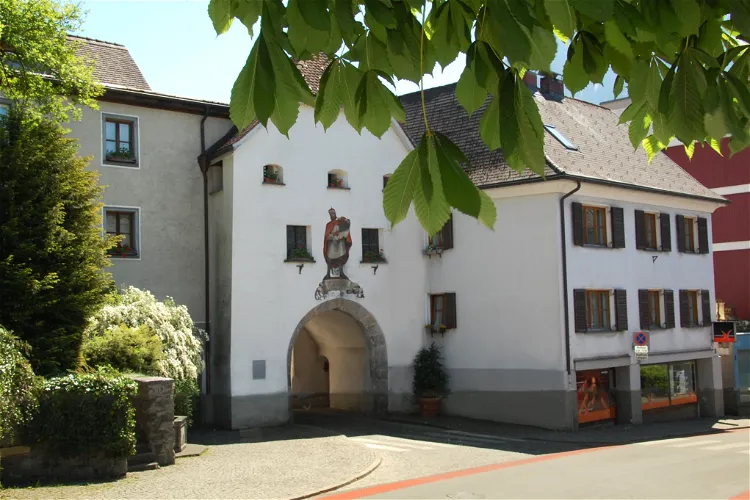
Stadtmuseum Bludenz
BludenzThe Stadtmuseum Bludenz is situated in a significant historical location, the Upper Gate, also known as the Feldkircher Tor. This gate is positioned at the western exit of two important streets, Kirchgasse and Herrengasse. This location not only adds to the historical charm of the museum but also makes it easily accessible for tourists.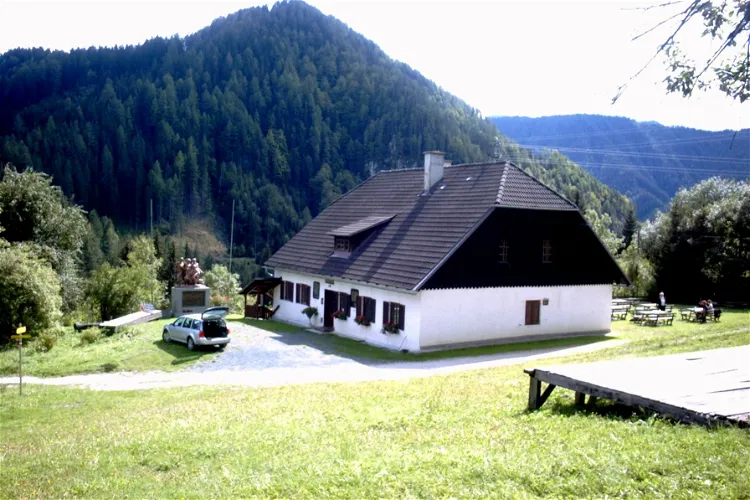
Peršman-Museum
Eisenkappel-VellachThe Peršmanhof, situated in Bad Eisenkappel, has a significant historical background. During the Second World War, it served as a partisan base. A tragic event occurred on April 25, 1945, when a special unit of the I. Battalion of the SS Police Regiment 13 committed a massacre, killing eleven civilians. This historical event is a crucial part of the museum's narrative.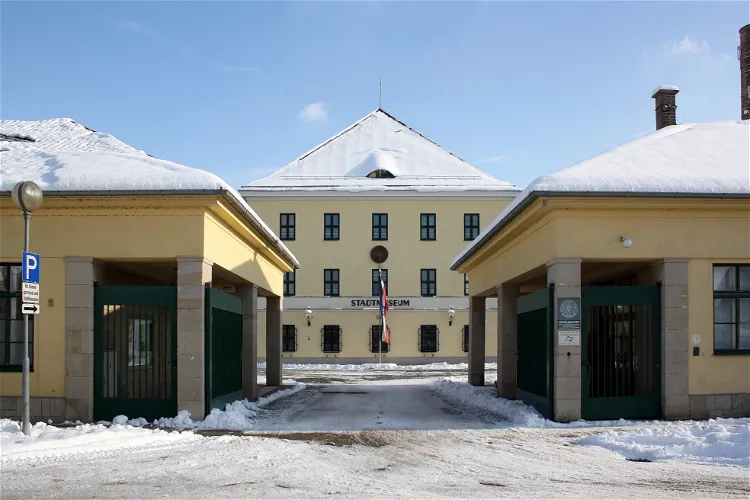
Museum Traiskirchen
TraiskirchenThe Traiskirchen City Museum is primarily dedicated to showcasing the lifestyles of the first half of the 20th century. It houses a wide range of exhibits from various sectors such as viticulture, agriculture, trade and commerce, industry, fire department, and the club and school system. These exhibits are displayed in the monument-protected former premises of the Möllersdorf factory of the Vöslauer worsted yarn factory, covering an area of over 3000 square meters.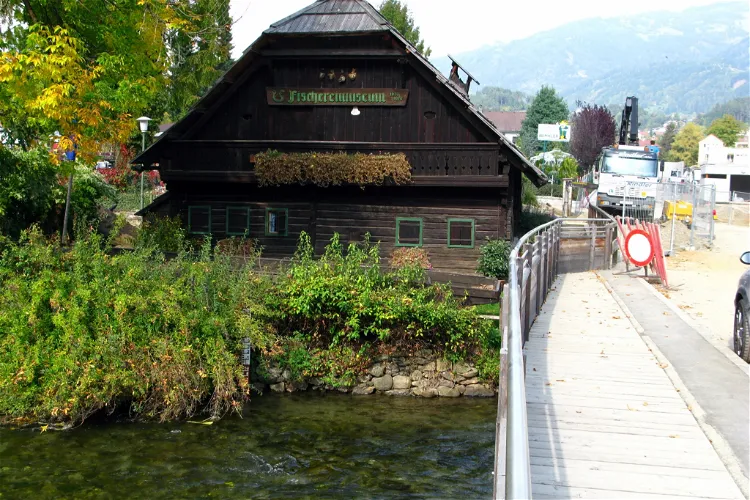
Kärntner Freilichtmuseum Maria Saal
KadingThe 1st Carinthian Fishing Museum, established in 1980, is located in the Austrian state of Carinthia. It is situated in the western bay of Lake Millstatt in the district of Wirlsdorf in Seeboden. This museum offers a unique insight into the history and culture of fishing in the region.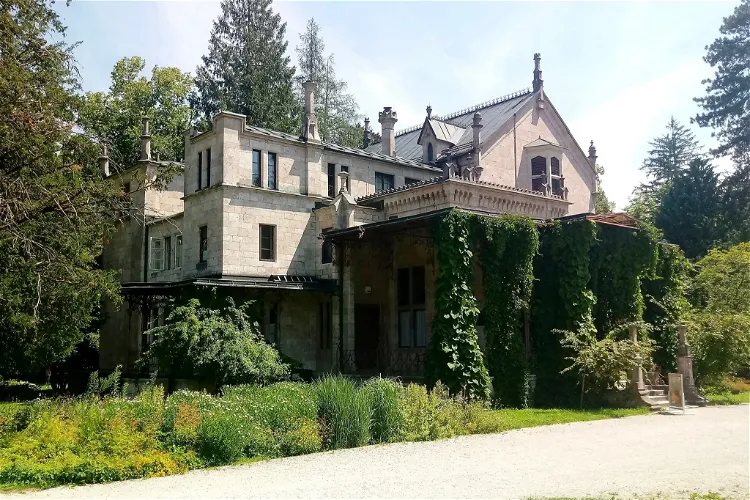
Marmorschlößl Fotomuseum
Bad IschlThe Marmorschlössl, historically known as the imperial cottage, is located in the Kaiserpark of Bad Ischl. It was used by Emperor Franz Joseph I and Empress Elisabeth as a breakfast salon. This historical significance adds a unique charm to the place, making it an interesting spot for tourists who are keen on history and royal life.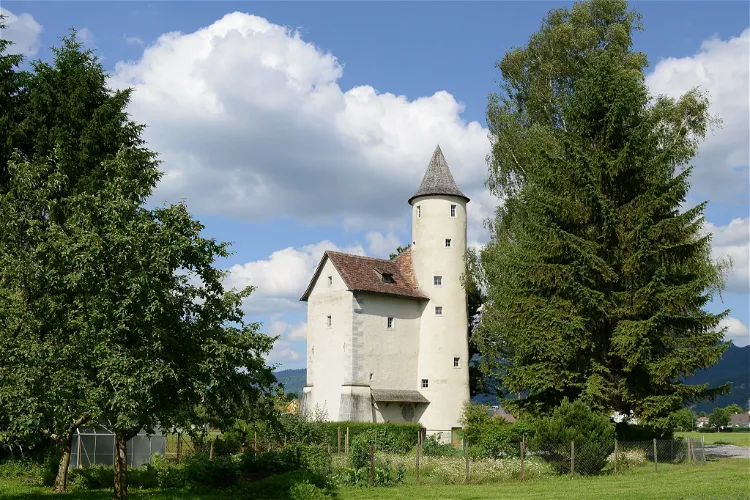
Textildruckmuseum Mittelweiherburg
HardSince 1997, the Mittelweiherburg has been home to a textile printing museum. The museum focuses on form cutting, textile hand printing, and the social history of industrialization up to the 1930s. It provides an in-depth look into the textile industry's evolution and its impact on society.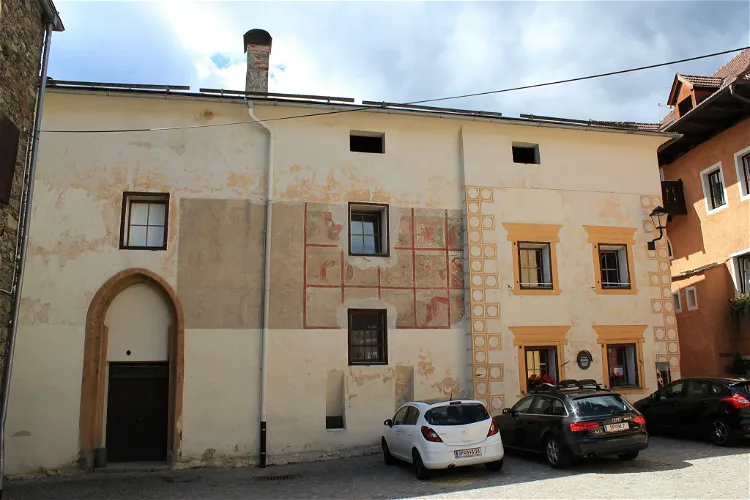
Pankratium Gmünd
Gmünd in KärntenThe Antonius-Spital, a former hospital located in Gmünd in Kärnten, is now home to a museum. This historical building, which dates back to the end of the 14th century, offers a unique glimpse into the past. Its simple exterior is accentuated by a high pointed arch gate and 15th-century frescoes depicting scenes from the life of Saint Elizabeth.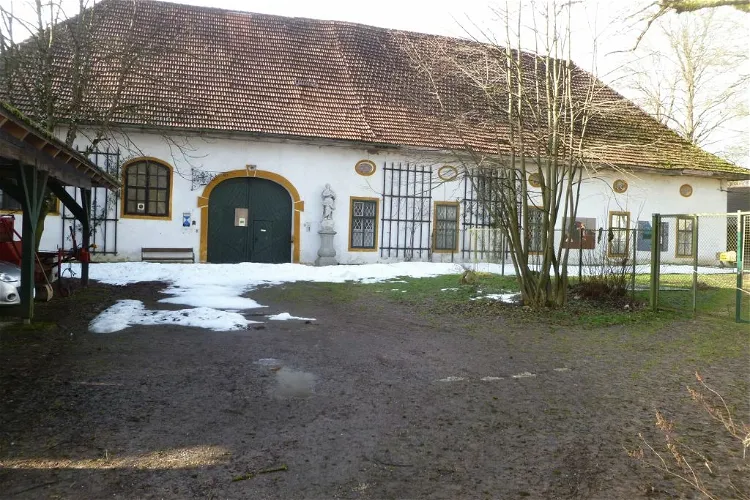
Schloss Walchen
VöcklamarktThe Kinderweltmuseum Schloss Walchen housed approximately 1200 exhibits, with a primary focus on the lives of children in different social milieus. The museum aimed to provide a comparative view of the lives of children from bourgeois, peasant, and worker backgrounds.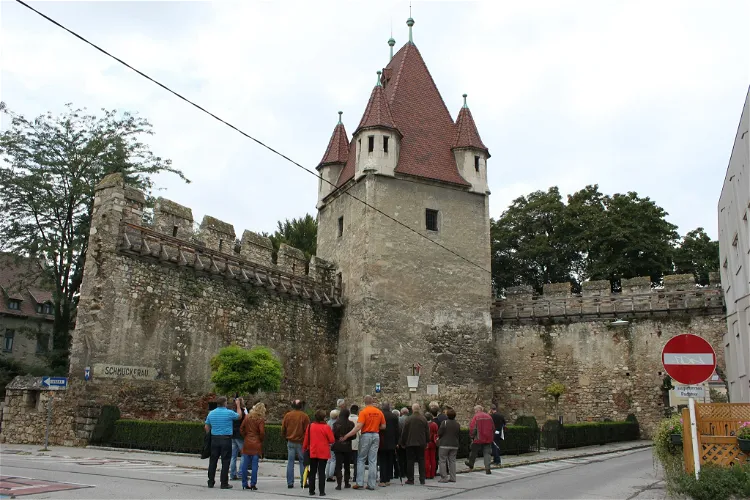
Reckturm
Wiener NeustadtThe Reckturm, located in Wiener Neustadt, is a historical monument dating back to the early 13th century. It served as the northwestern corner tower of the former city wall. This tower holds significant historical value and provides a glimpse into the city's past.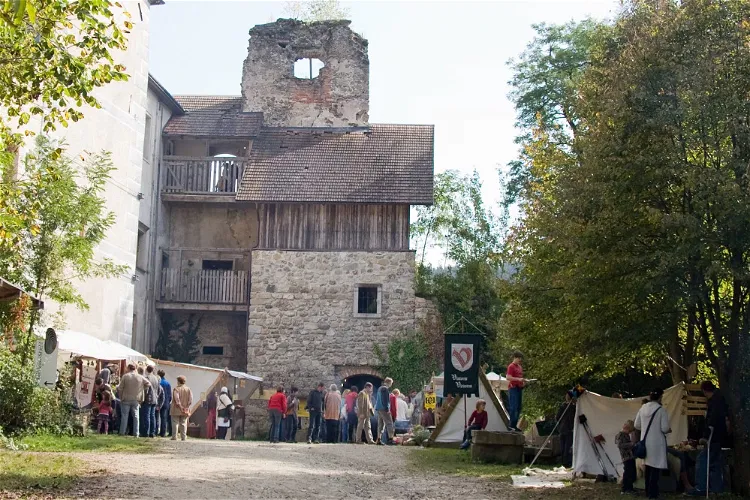
Upper Austrian Castle Museum Reichenstein
TragweinReichenstein Castle, located in the town of Reichenstein in the municipality of Tragwein in the district of Freistadt in Upper Austria, is a semi-ruin of a castle that was converted into a chateau. The castle is situated on a narrow, steeply sloping rock ridge above a river loop of the Waldaist. The castle offers a unique blend of historical architecture and natural beauty, making it a fascinating destination for tourists.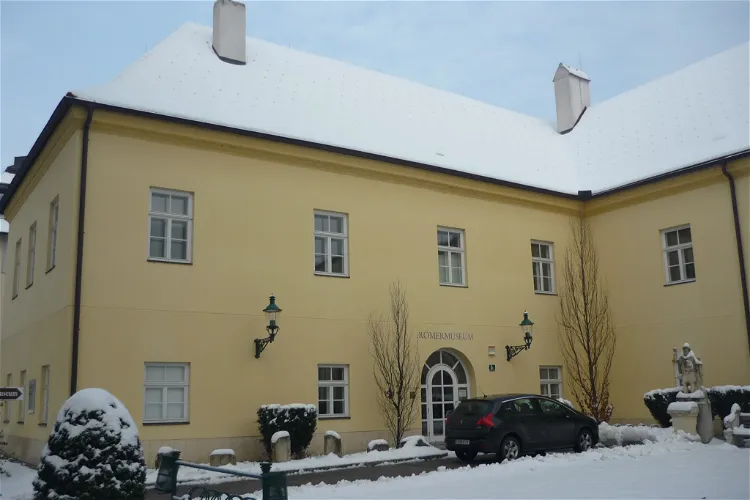
Roman Museum Tulln
Tulln an der DonauThe Roman Museum in Tulln an der Donau, Lower Austria, is a significant destination for those interested in history, particularly that of the Roman era. The museum is primarily dedicated to the exhibition of finds from the fort and civilian settlement of Comagena. These artifacts provide a glimpse into the lives of the people who lived in this region during the Roman period.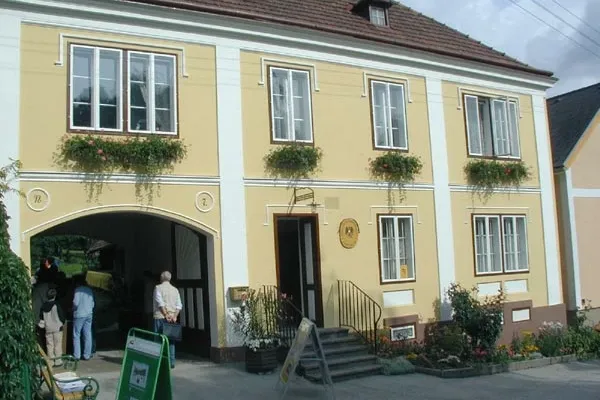
Historic Post Office
PayerbachThe Historic Post Office in Küb, located in the municipality of Payerbach on the Semmering Railway, was opened in 1905. This location offers a glimpse into the early 20th century, when the town of Küb was a small, burgeoning place.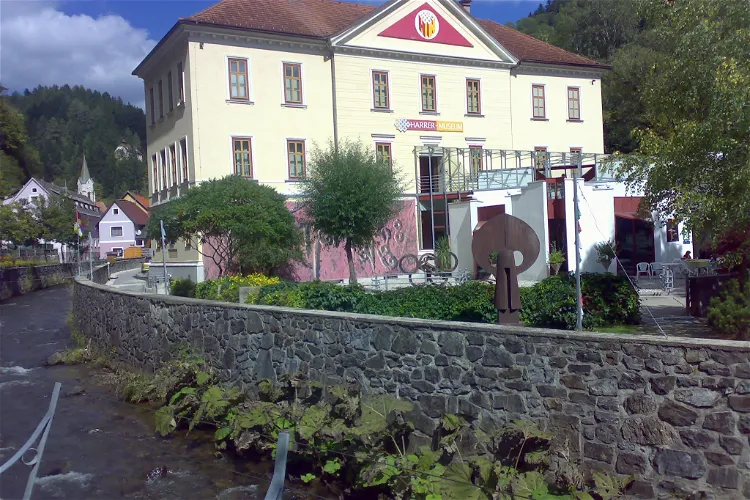
Heinrich Harrer Museum
KnappenbergThe Heinrich-Harrer-Museum, located in Hüttenberg in Carinthia, is dedicated to the research travels of Heinrich Harrer. This museum provides an in-depth look into the life and explorations of this renowned Austrian mountaineer, sportsman, geographer, and author.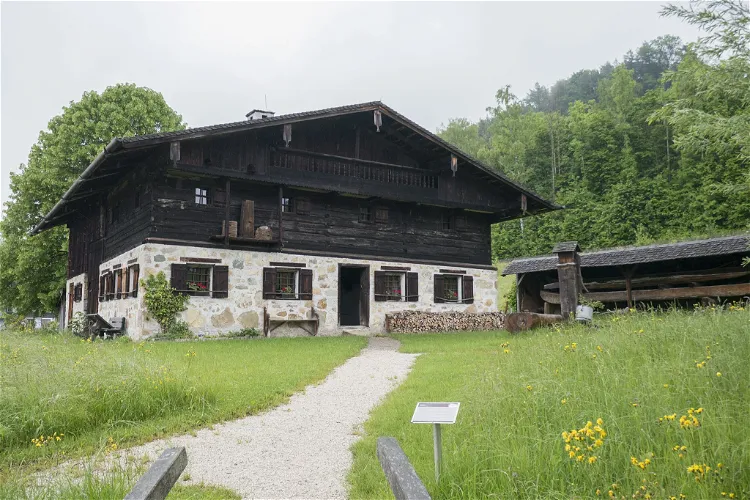
Bauernmuseum Mondseeland
TiefgrabenThe Bauernmuseum Mondseeland and the open-air museum Mondseer Rauchhaus are two interconnected museums located in Mondsee, Upper Austria. These museums provide a comprehensive display of agricultural work, tools, and buildings, offering visitors a unique insight into the region's agricultural history and practices.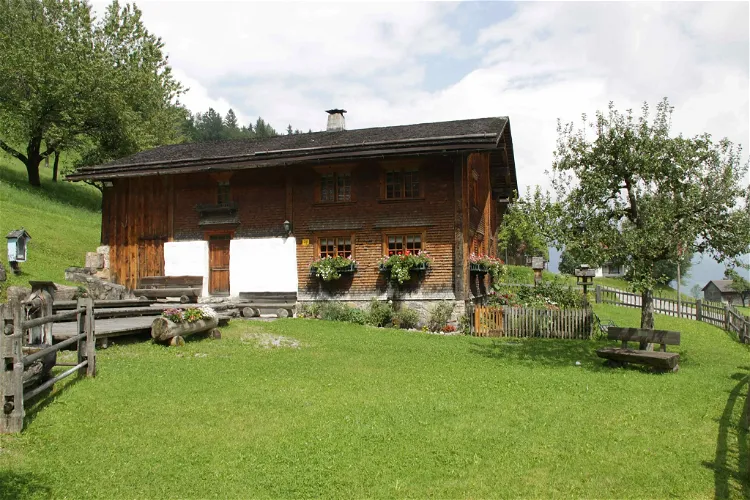
Museum Paarhof Buacher
Bürserberg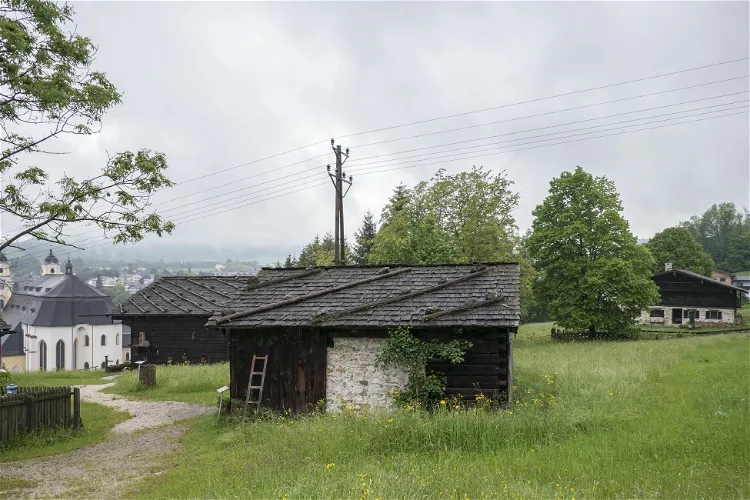
Bauernmuseum Mondseeland
MondseeThe Bauernmuseum Mondseeland and the open-air museum Mondseer Rauchhaus are two interconnected museums located in Mondsee, Upper Austria. These museums provide a comprehensive display of agricultural work, tools, and buildings. Visitors can gain a deep understanding of the region's agricultural history and practices through the exhibits.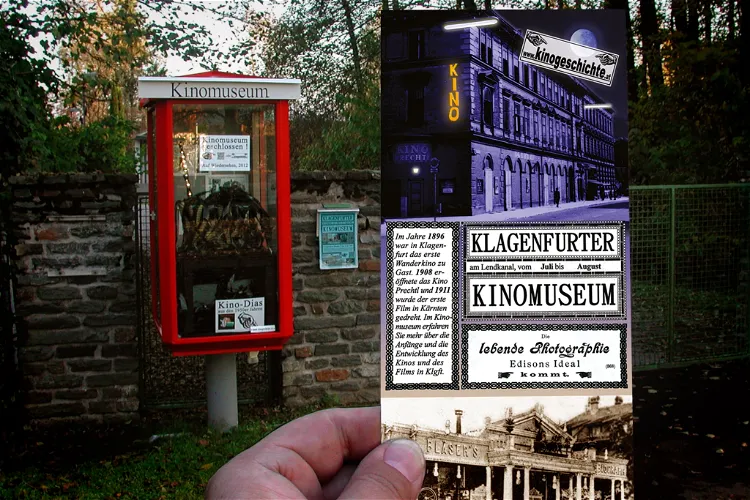
Kinomuseum Klagenfurt
KlagenfurtThe Klagenfurt Cinema Museum, located in Klagenfurt am Wörthersee, Carinthia, is a unique institution dedicated to the history and technology of cinema. It offers a comprehensive look into the evolution of cinema, from its earliest beginnings to the present day. The museum is a great place for film enthusiasts and history buffs alike, providing a wealth of information and exhibits that delve into the fascinating world of cinema.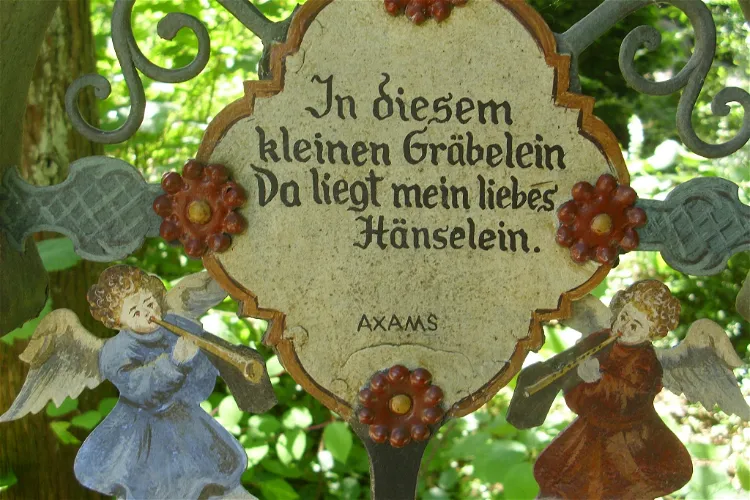
Museumsfriedhof
KramsachThe Museumsfriedhof is a unique open-air museum located in Kramsach, Tyrol. This museum is dedicated to tombstones and was established in 1965 by Hans Guggenberger, a skilled blacksmith and stonemason. This information is crucial for tourists who are interested in the history and origin of the museum.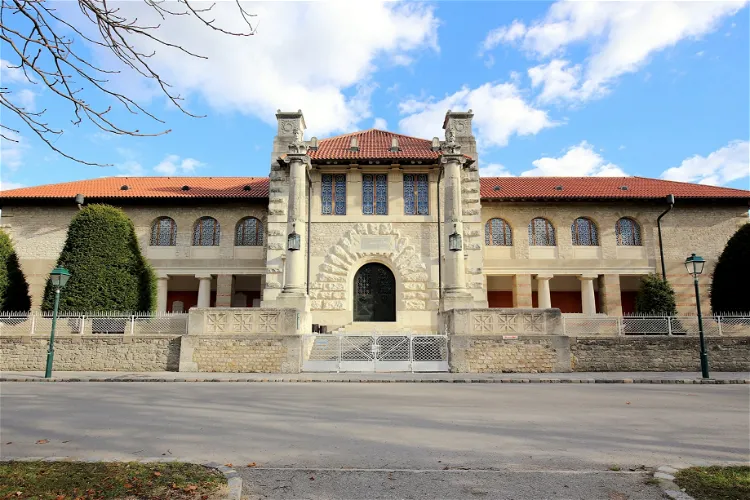
Museum Carnuntinum
Bad Deutsch-AltenburgThe Carnuntum Museum, situated in Bad Deutsch-Altenburg, Austria, is a significant repository of artifacts unearthed from the archaeological site of the ancient Roman city of Carnuntum. This city, located on the left bank of the Danube, was a strategic center during the Roman era. The museum offers a unique opportunity to delve into the history and daily life of the ancient legionary camp and the civil city of Carnuntum.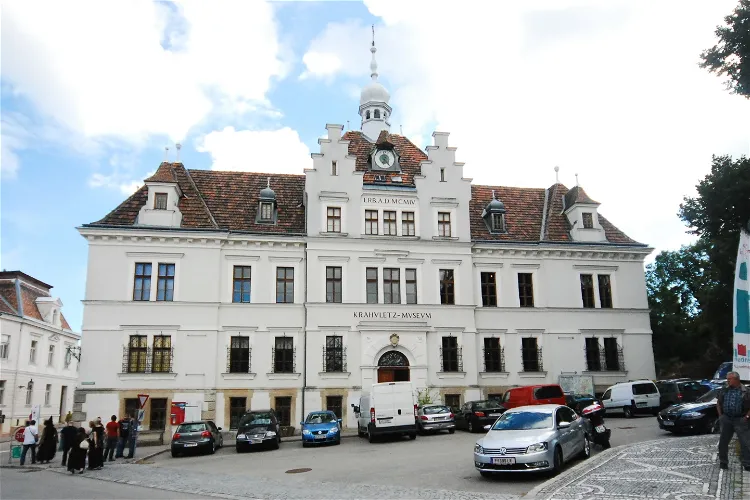
Krahuletz Museum
EggenburgThe Krahuletz Museum, situated in the city of Eggenburg in Lower Austria, is home to a variety of collections. These collections encompass regional earth history, archaeology, folklore, regional and city history, and a clock collection. This diverse range of exhibits provides a comprehensive insight into the region's past and its cultural heritage.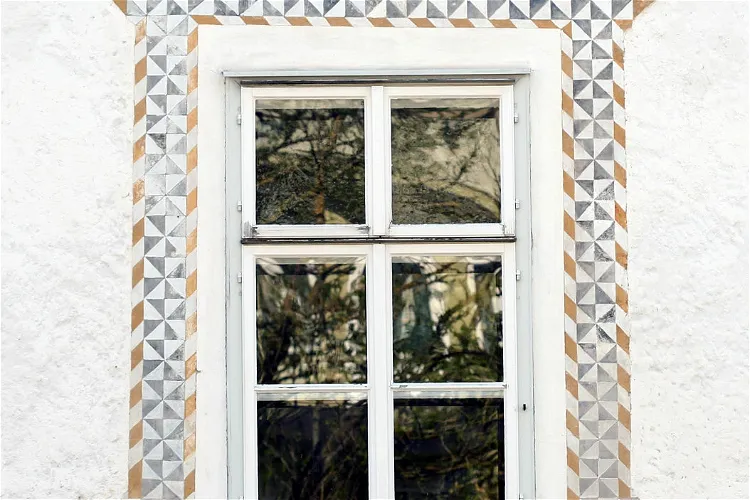
Schützenscheibenmuseum
ScheibbsThe Schützenscheibenmuseum Scheibbs, established in 1991, is the largest museum of its kind, housing around 250 historical exhibits. These exhibits primarily consist of painted discs from the Scheibbs shooting guild, dating from 1670 to the present day. The museum provides an overview of the history of Central European shooting, particularly as a supplement to hunting or (para-)military shooting.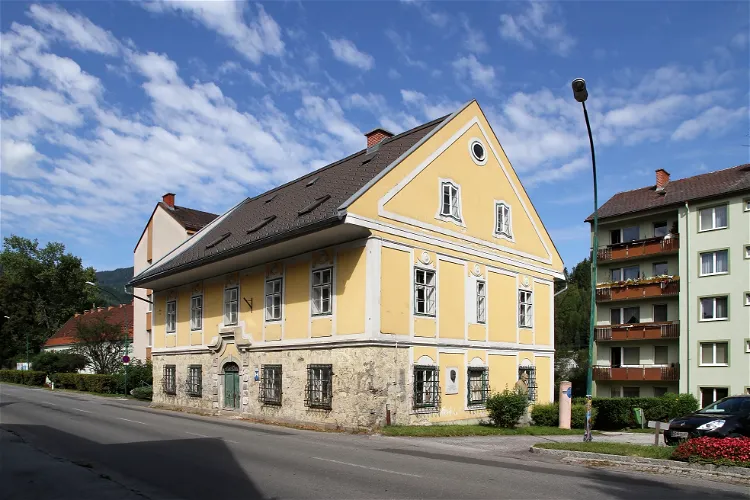
Wintersportmuseum
MürzzuschlagThe Wintersportmuseum Mürzzuschlag is situated in the town of Mürzzuschlag, within the district of Bruck-Mürzzuschlag in the northeast of Styria, Austria. This location is significant as it is the birthplace of alpine skiing in Central Europe, thanks to the pioneering efforts of local innkeeper Toni Schruf and Graz champagne manufacturer Max Kleinoscheg.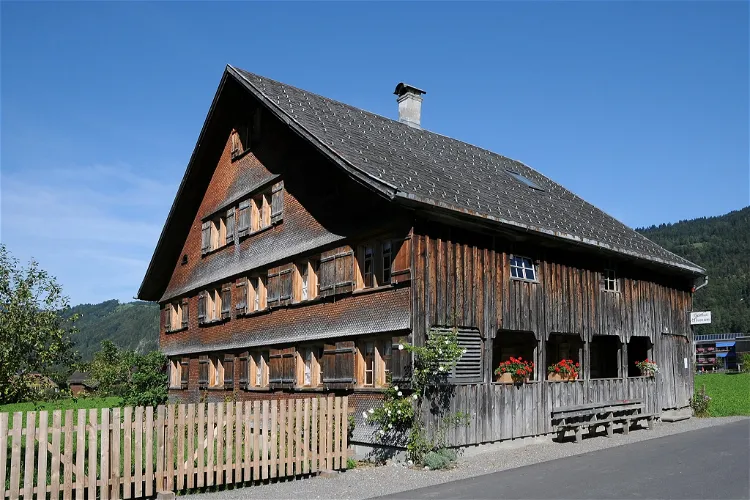
Bezau Local History Museum
BezauThe Bezau Local History Museum is a unique destination that offers a glimpse into the past. It is housed in a former 18th century Bregenzerwald farmhouse, located in the district of Ellenbogen 181 in Bezau, Vorarlberg district, Bregenz. This historical building is a testament to the architectural style and way of life during that period.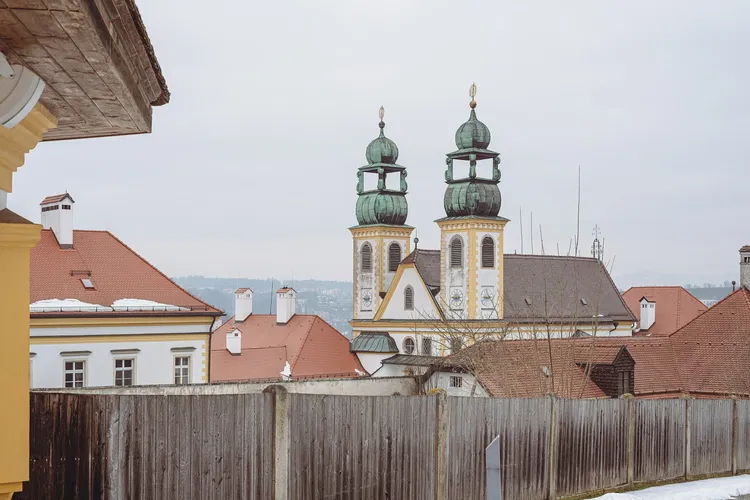
Church of Mariahilf
ViennaThe Church of Mariahilf, located in Vienna's 6th district, is a Baroque parish church and also the church of the Congregation of Saint Michael the Archangel. This historic church is a significant part of Vienna's architectural and religious landscape.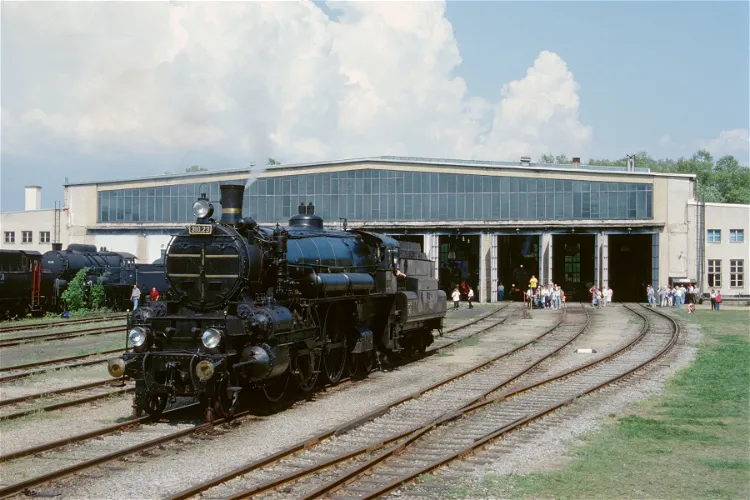
Railway Museum Strasshof
Strasshof an der NordbahnThe Railway Museum Strasshof, also known as Das Heizhaus, is situated in Strasshof an der Nordbahn, Lower Austria. This museum is a significant destination for railway enthusiasts and history buffs, offering a unique insight into the history and development of railways in Austria.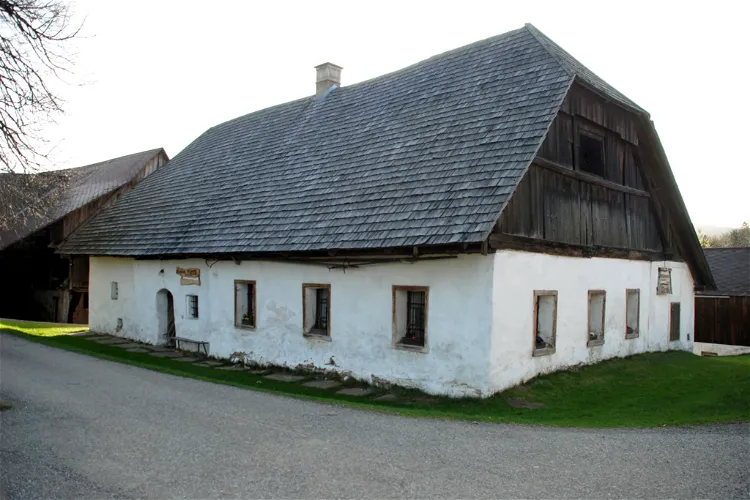
Bauernhausmuseum Herk
DeutschlandsbergThe Bauernhausmuseum Herk, located in Freiland, Deutschlandsberg, West Styria, has a rich history. Originally a farmhouse, it was transformed into a private open-air museum in 2005. The museum provides a glimpse into rural life in the 19th century, offering a unique opportunity for visitors to step back in time and experience the past.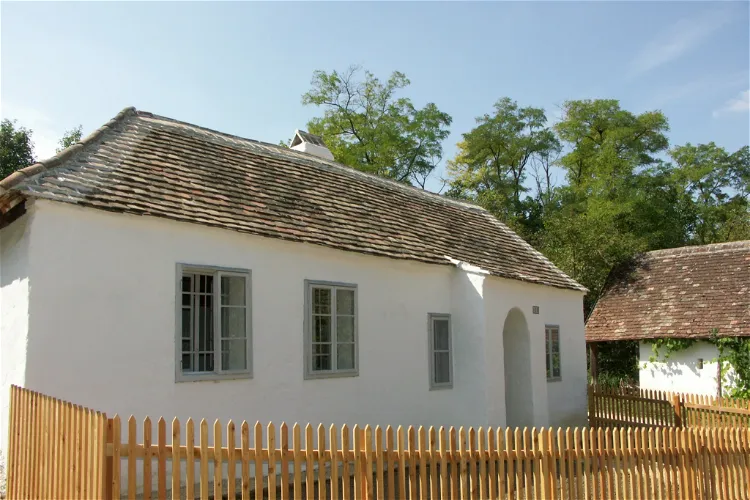
Anabaptist Museum
Sulz im WeinviertelThe Anabaptist Museum in Niedersulz, opened in 2008, is a unique institution in Austria. It is the first museum in the country to feature a permanent exhibition dedicated to the history of the Hutterites and Anabaptists, with a particular focus on the regions of Weinviertel and South Moravia. This makes it a significant destination for those interested in religious history and the cultural heritage of these regions.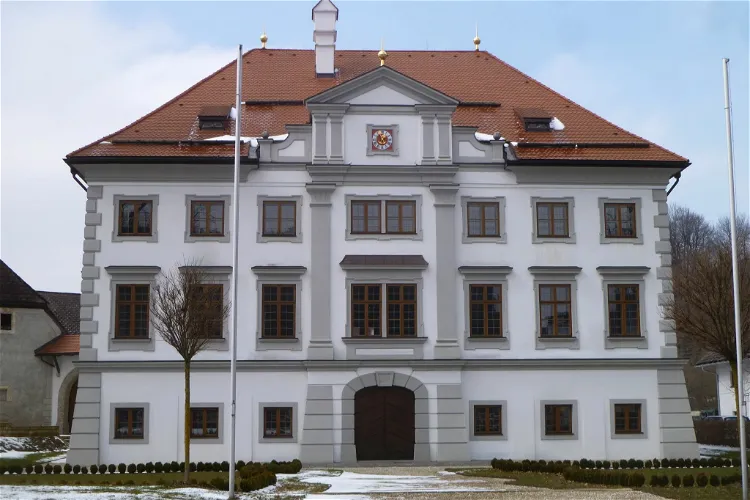
Schloß Stauff
FrankenmarktToday, Schloss Stauff serves a dual purpose. It houses the registry office of Frankenmarkt, and it also contains a museum. Visitors can explore the museum to learn more about the castle's history and the region's cultural heritage.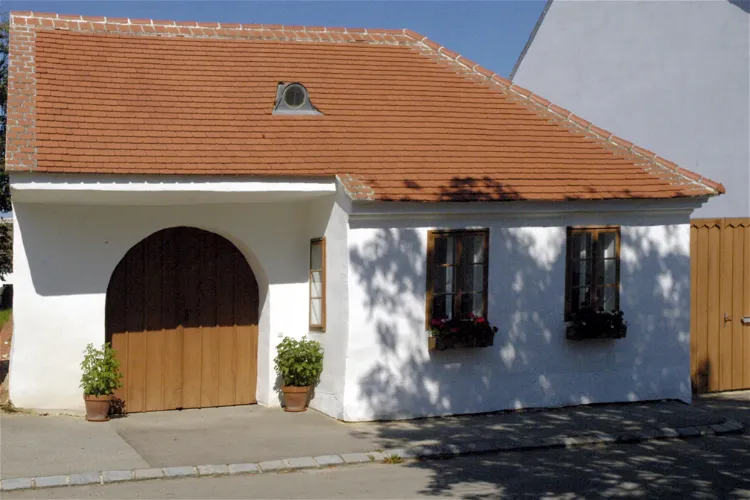
Brandlhof
ZiersdorfThe Brandlhof, originally a farm dating back to the 13th century, has been repurposed and now serves as a cultural and seminar center. The site is under monument protection, preserving its historical significance and architectural integrity. Visitors can immerse themselves in the rich history of the site while also participating in various cultural and educational activities.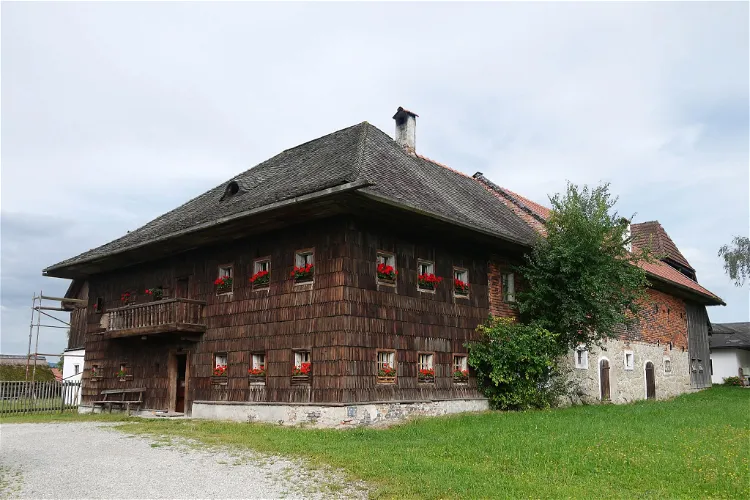
Freilichtmuseum Stehrerhof
Neukirchen an der VöcklaThe Freilichtmuseum Stehrerhof is a monument-protected ensemble of buildings located in Neukirchen an der Vöckla in Upper Austria. This location is a significant part of the region's history and culture, offering visitors a unique insight into the past.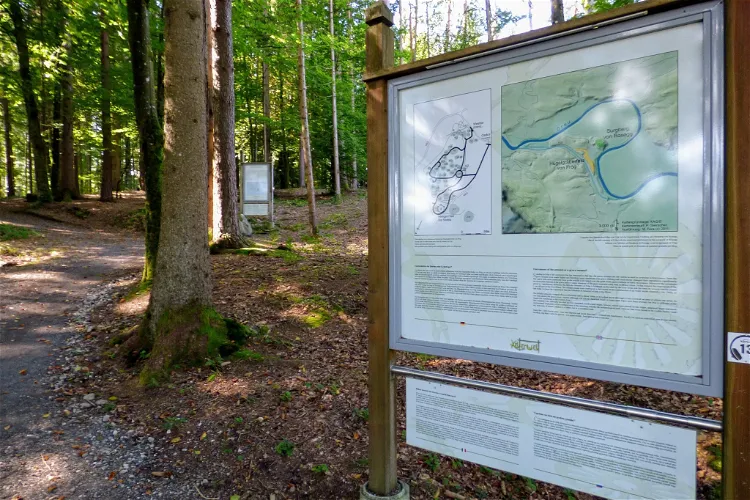
Celtic World Frög
Sankt LambrechtKeltenwelt Frög is an archaeological park and museum situated in the quaint village of Frög, within the municipality of Rosegg in the district of Villach-Land, Carinthia. This unique location offers visitors a chance to delve into the world of the Celts, exploring their society, economy, and worldview through the archaeological finds from the Frög burial ground.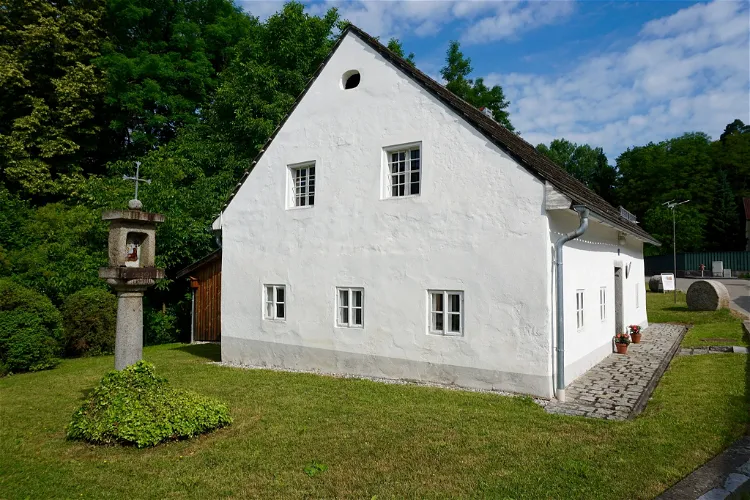
Mühlsteinmuseum Steinbrecherhaus
PergThe Mühlsteinmuseum Steinbrecherhaus is a unique museum located in the city of Perg. It is a simple worker's house that was built in the early 19th century. The house is situated on the grounds of the Scherer millstone quarry in the Obervormarkt area of the city. This location provides a unique insight into the lives of the workers who lived and worked in this area during the 19th century.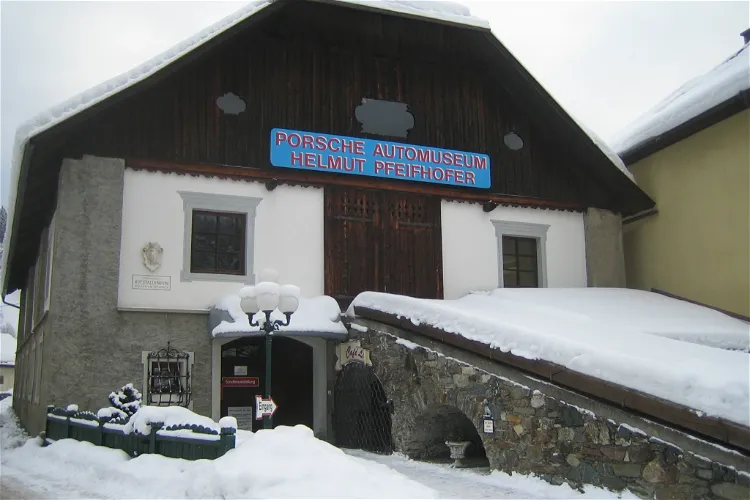
Porsche Museum Gmünd
Gmünd in KärntenIn 1948, the Porsche 356 No. 1 Roadster, the first vehicle to bear the name Porsche, was manufactured in Gmünd. This milestone in automotive history is a significant point of interest for visitors, particularly those with a passion for classic cars.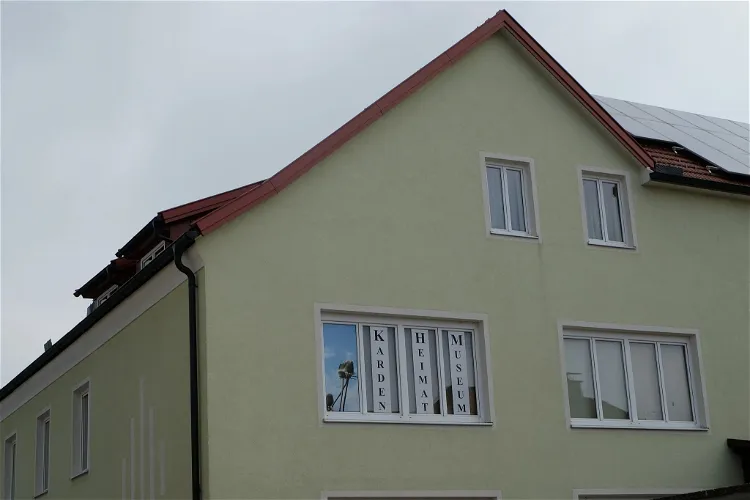
Karden- und Heimatmuseum Katsdorf
BodendorfThe Karden- und Heimatmuseum Katsdorf is situated in the old schoolhouse at the church square in Katsdorf, a district in Upper Austria. This location is steeped in history and provides a unique setting for the museum.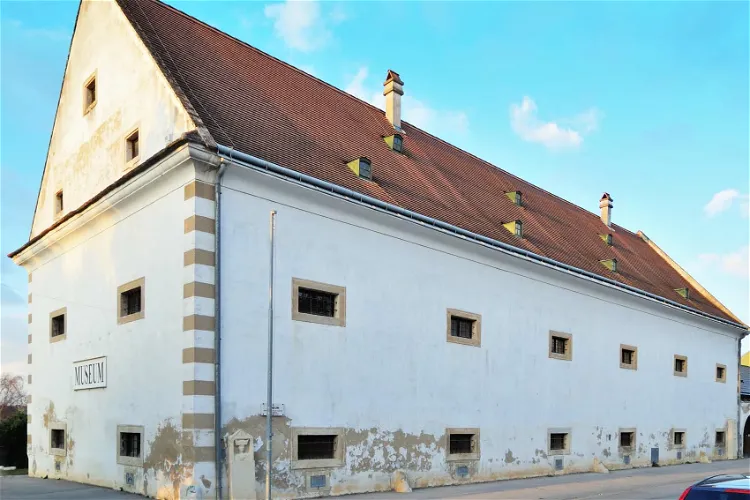
Museum Mannersdorf
Mannersdorf am LeithagebirgeThe Schüttkasten Mannersdorf am Leithagebirge, located in the town of Mannersdorf am Leithagebirge, is a significant historical site. Originally a grain storage facility for the Mannersdorf am Leithagebirge Castle, it now serves as a museum. The building, situated in Jägerzeile No. 9 in the district of Bruck an der Leitha in Lower Austria, is a protected monument, reflecting its historical and architectural importance.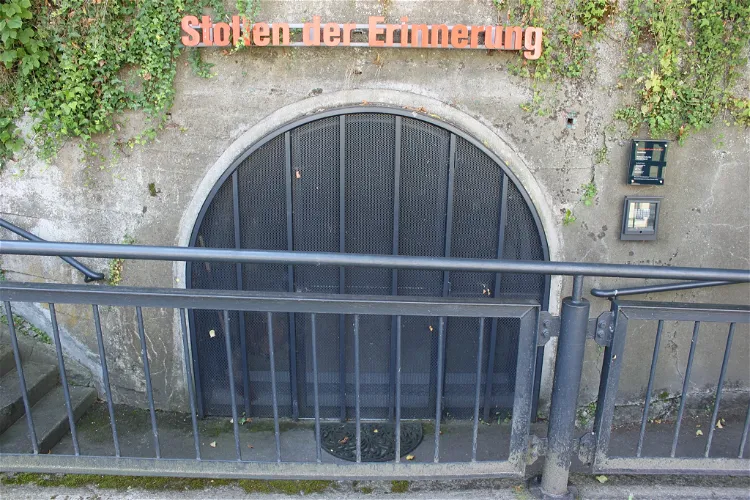
Stollen der Erinnerung
SteyrThe Stollen der Erinnerung, located in the city of Steyr in Upper Austria, is a permanent exhibition dedicated to the history of forced labor and concentration camps. This museum provides a deep insight into a significant part of history, making it a valuable visit for those interested in historical events and their impact on society.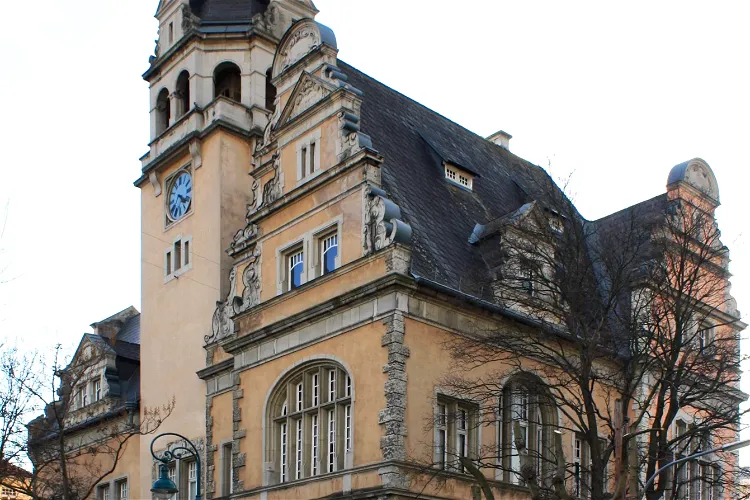
Rollettmuseum
BadenThe Rollettmuseum, located in Baden, Lower Austria, serves a dual purpose. It is home to the city archive of Baden, providing a rich source of historical information about the city. Additionally, it houses the collection of Anton Rollett, a local court doctor. This collection offers a unique insight into the life and work of this notable figure in Baden's history.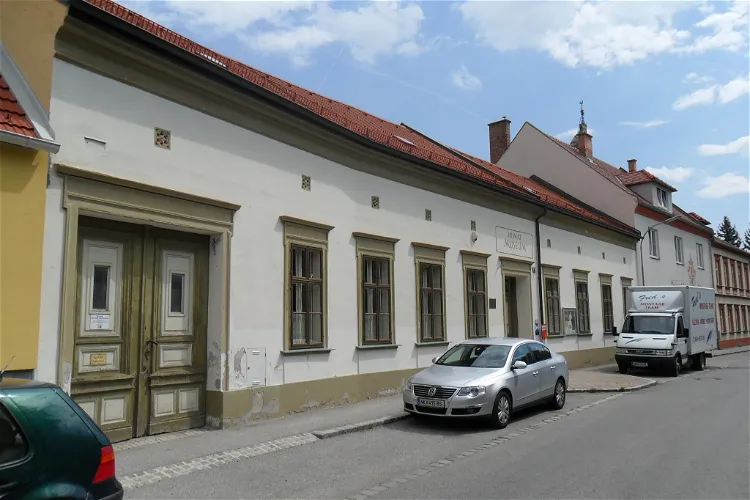
Städtisches Museum Neunkirchen
NeunkirchenThe Städtisches Museum Neunkirchen is a city and district museum situated in the city of Neunkirchen, Lower Austria. It is located at Stockhammergasse 13. The building in which the museum is housed is a protected monument, adding to the historical significance of the site.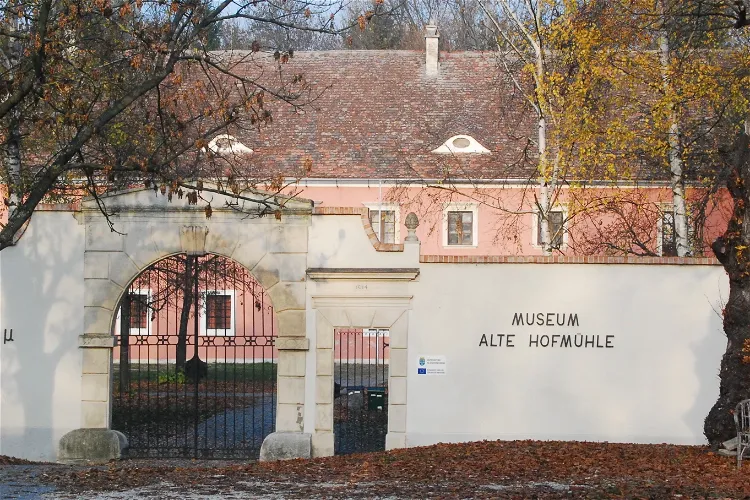
Museum Alte Hofmühle
HollabrunnThe Alte Hofmühle city museum in Hollabrunn is a unique destination for tourists interested in history and architecture. The museum is located in a protected former manor house that dates back to the 16th century. This historic building was used as a mill until the 20th century, providing a glimpse into the region's past.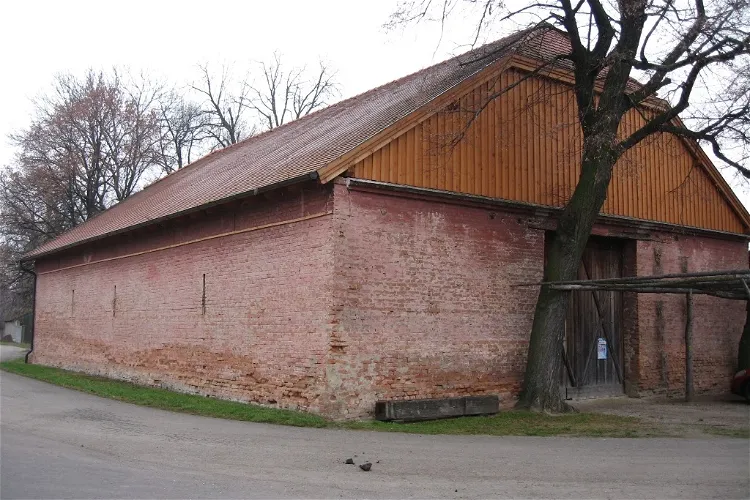
Bauernmuseum Kalladorf
WullersdorfThe Bauernmuseum Kalladorf is a farming museum situated in the municipality of Wullersdorf, in the Lower Austrian Weinviertel. This museum offers a unique insight into the agricultural history of the region, showcasing a variety of farming machinery, tools, household appliances, and everyday items.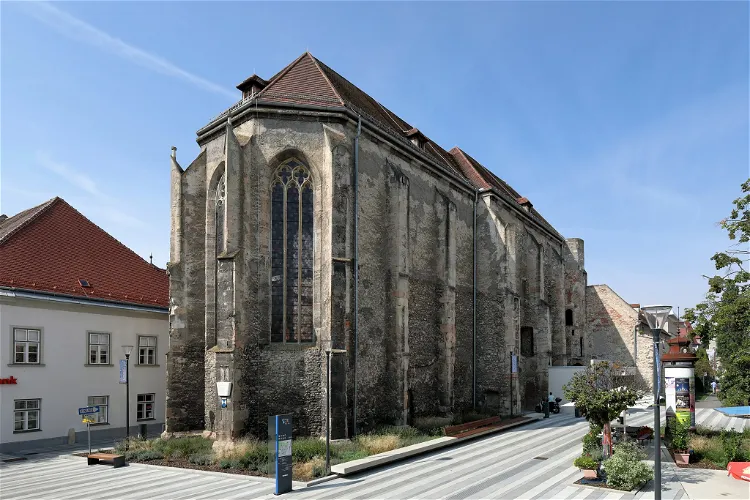
St. Peter an der Sperr
Wiener NeustadtSt. Peter an der Sperr, once a Dominican monastery, is now a significant historical site in Wiener Neustadt, Lower Austria. The former church building, which is no longer used for religious purposes, has been repurposed as an exhibition space. This transformation allows visitors to appreciate the historical architecture while also engaging with various exhibitions.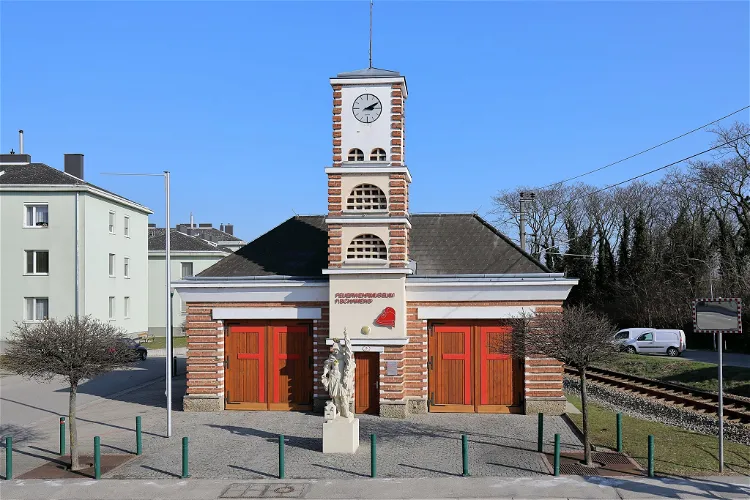
Feuerwehrmuseum Fischamend
FischamendThe Feuerwehrhaus Fischamend-Dorf is situated in the district of Fischamend-Dorf, within the town of Fischamend, in the district of Bruck an der Leitha in Lower Austria. This location is easily accessible and offers a unique opportunity to explore the rich history and culture of the region.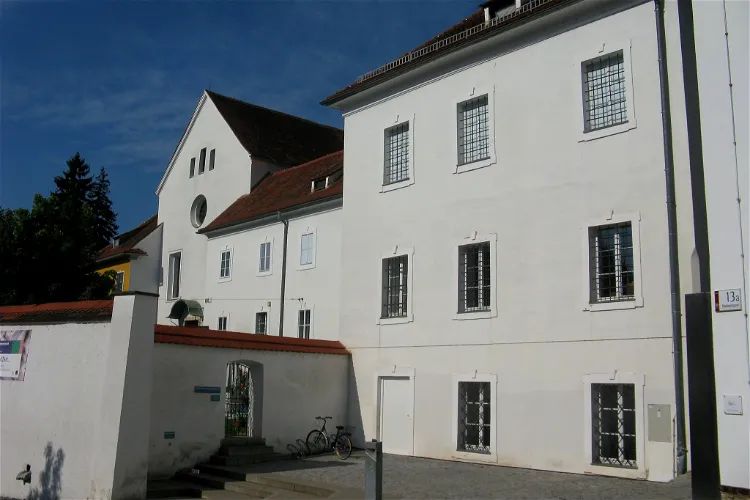
Folk Life Museum
GrazThe Folk Life Museum in Graz is situated in the former Capuchin monastery at Paulustor. The museum uses contemporary societal issues and cultural phenomena as the basis for its exhibitions, educational programs, and events. This approach makes the museum a dynamic and relevant place for visitors who are interested in understanding the current cultural and societal context of the region.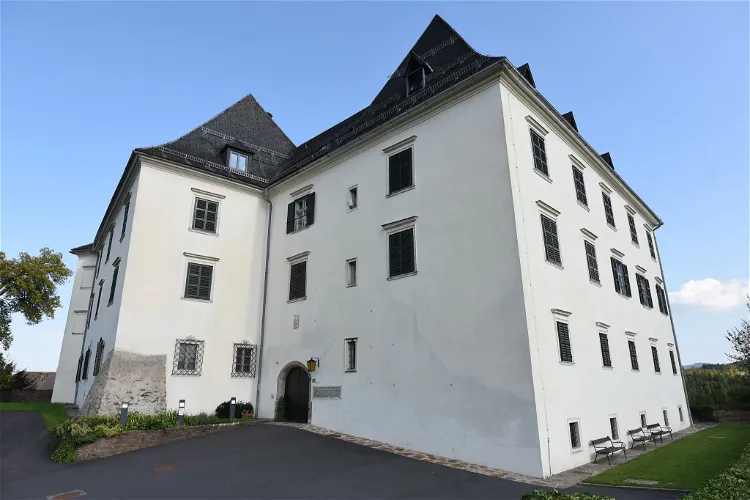
Schloss Burgstall
Wies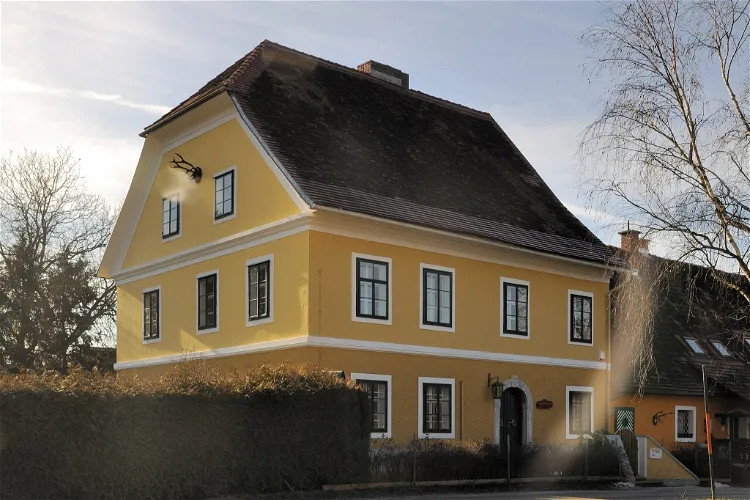
Arnold Schwarzenegger Museum
Thal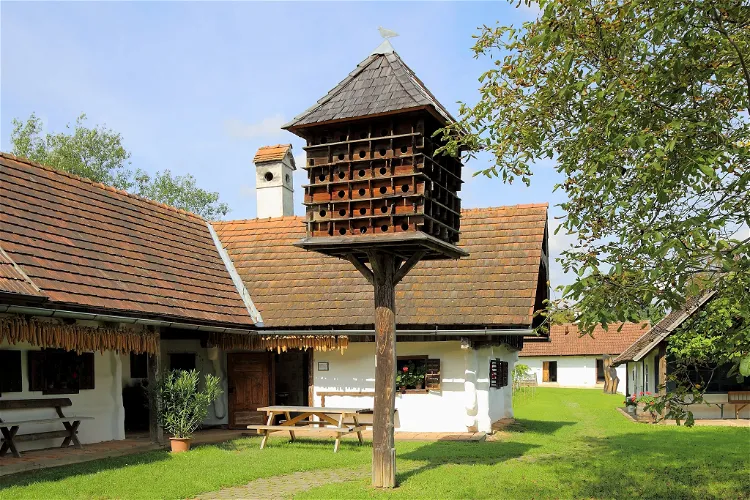
Freilichtmuseum Gerersdorf
Gerersdorf-SulzThe Freilichtmuseum Ensemble Gerersdorf is a unique open-air museum located in the municipality of Gerersdorf-Sulz in Burgenland, Austria. It was privately established in 1976 and has since grown to become the largest open-air museum in Burgenland. The museum offers a comprehensive and realistic insight into the Pannonian culture typical of the southern Burgenland region, through its straw-thatched residential and commercial buildings, utensils, and farming tools from the 18th to the early 20th century.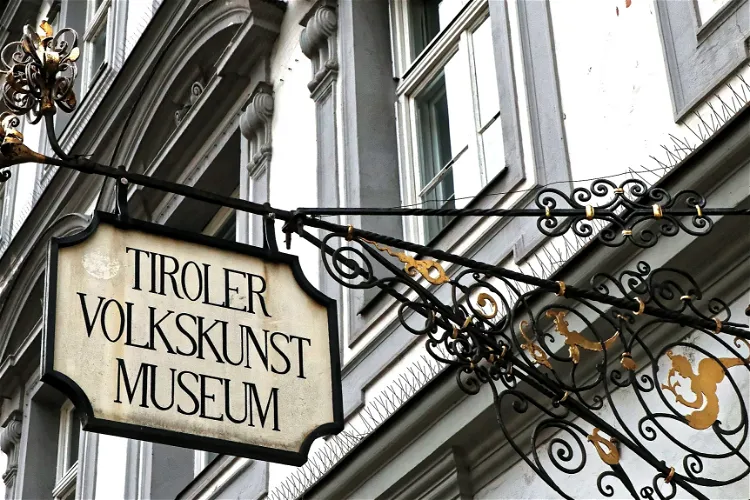
Tyrolean Folklore Museum
InnsbruckThe Tyrolean Folk Art Museum is situated in the former Franciscan monastery, which is adjacent to the Innsbruck Court Church. This location places the museum in close proximity to the old town, making it easily accessible for tourists exploring the city.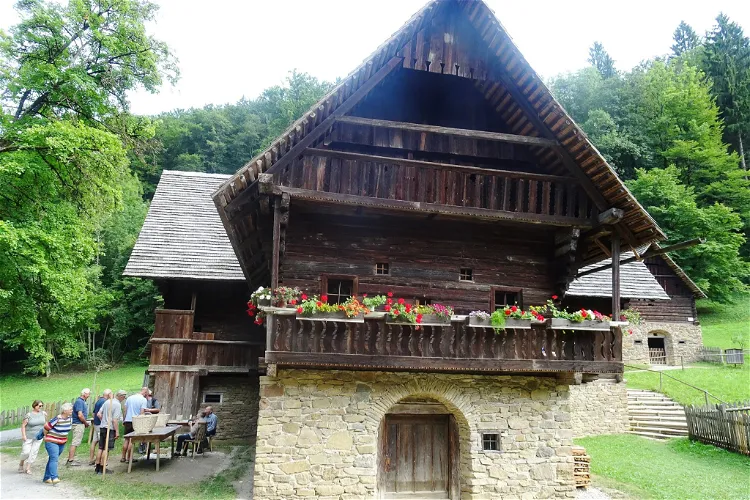
Austrian Open Air Museum Stübing
Gratwein-StraßengelThe Austrian Open Air Museum Stübing is nestled in a small side valley of the Mur, known as the Enzenbachgraben. This location is approximately 10 kilometers northwest of Graz, the capital of Styria. This makes the museum easily accessible for tourists visiting Graz and offers a unique opportunity to explore Austria's rural history in a picturesque setting.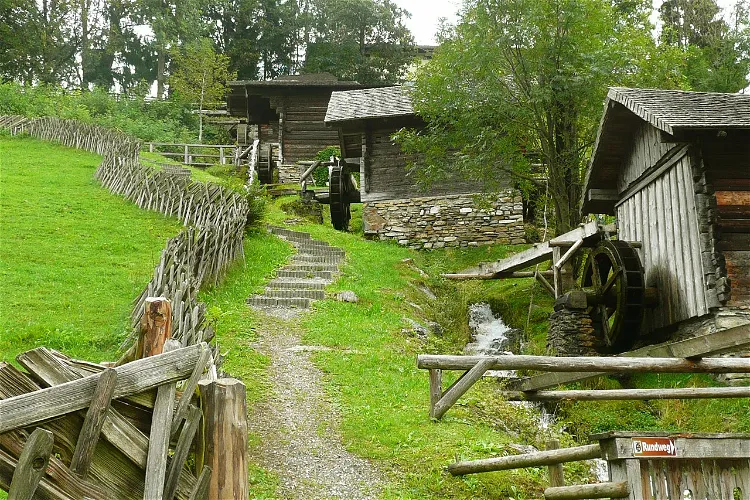
Freilichterlebnis 7 Mühlen
Maier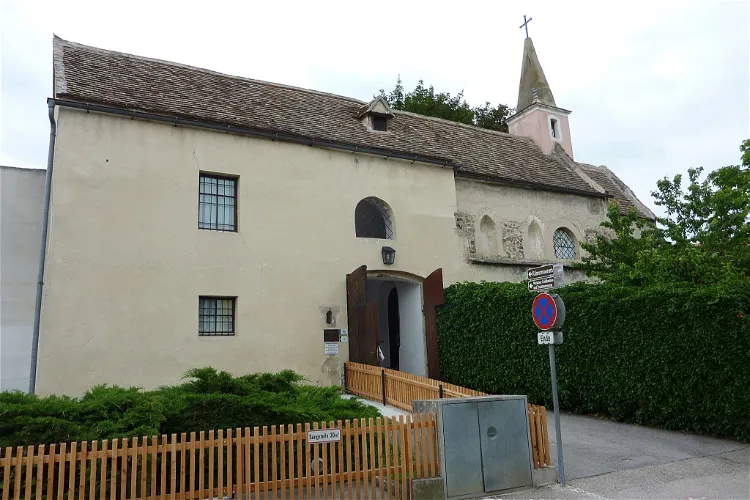
Margaretenkapelle
Mautern an der Donau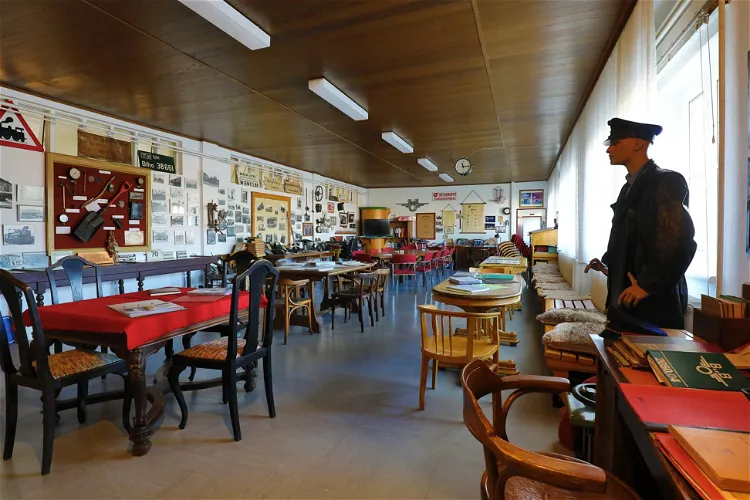
Waldviertler Railway Museum Sigmundsherberg
SigmundsherbergThe Sigmundsherberg Railway Museum is a significant part of the Lower Austrian museums and collections. It is conveniently located in Sigmundsherberg, near the train station, making it easily accessible for tourists. The museum offers a unique opportunity to explore the rich history of railways in Austria.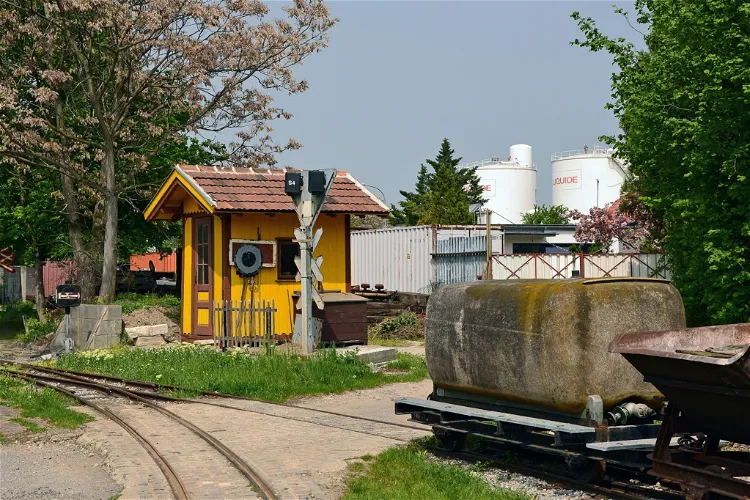
Eisenbahnmuseum Schwechat
SchwechatThe Eisenbahnmuseum Schwechat is situated in Schwechat, Lower Austria, on the former operating grounds of the Pressburger Bahn. This location is steeped in history and provides a unique setting for the museum. The museum is easily accessible and offers a fascinating insight into the history of railways in Austria.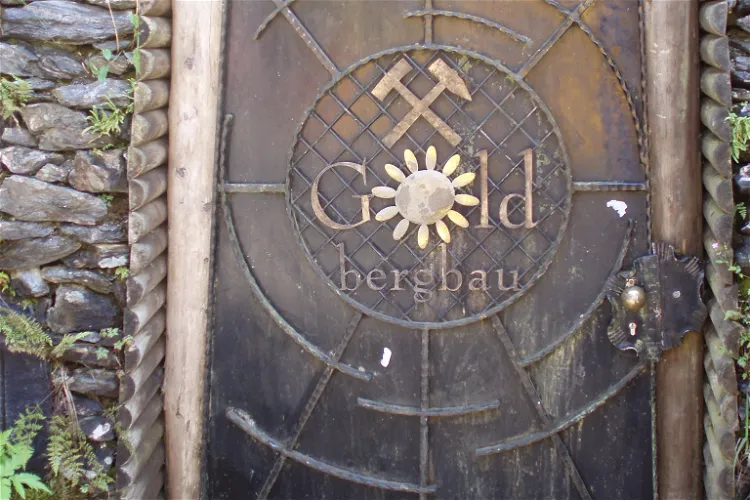
Adventure Gold Mining
HainzenbergClimb down the shaft and explore Tyrol’s mining history. The gold mine tour is fun for the whole family!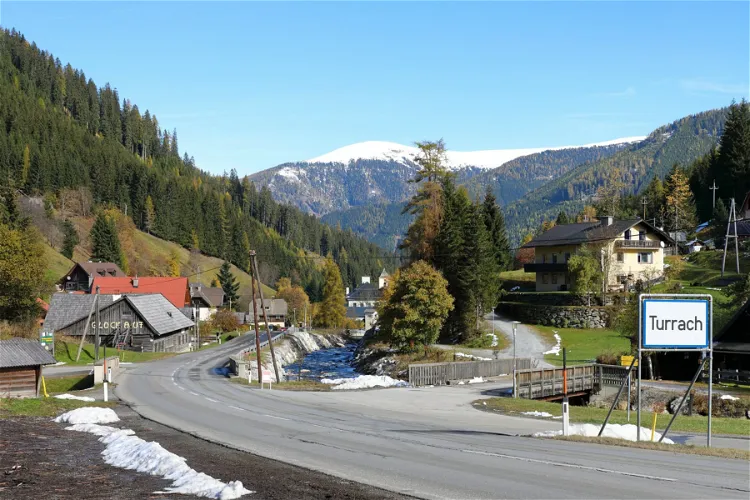
Montanmuseum Turrach
Stadl-PredlitzThe Montanmuseum Turrach, located in Styria, is home to a life-size model of the Bessemer converter. This significant piece of industrial history was first used on the European mainland in Turrach during the 19th century. The museum provides an opportunity to learn about this important development in the history of iron processing.- Online discount!

Imperial Carriage Museum Vienna
ViennaAt the Imperial Carriage Museum Vienna in Schönbrunn, join the company of such illustrious personalities as Empress Maria Theresa, Napoleon and Emperor Franz Joseph, and journey through their life as illustrated by their state coaches and carriages. The prize exhibit is undoubtedly the baroque Imper 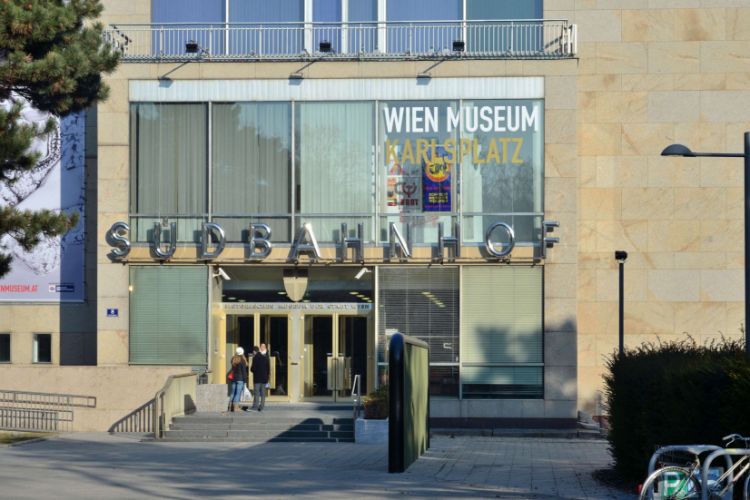
Wien Museum Karlsplatz
ViennaThe Wien Museum on Karlsplatz will be renovated and expanded over the coming years. The building will be upgraded with additional room for exhibits, generous spaces for educational activities, an event center, and a new restaurant and café.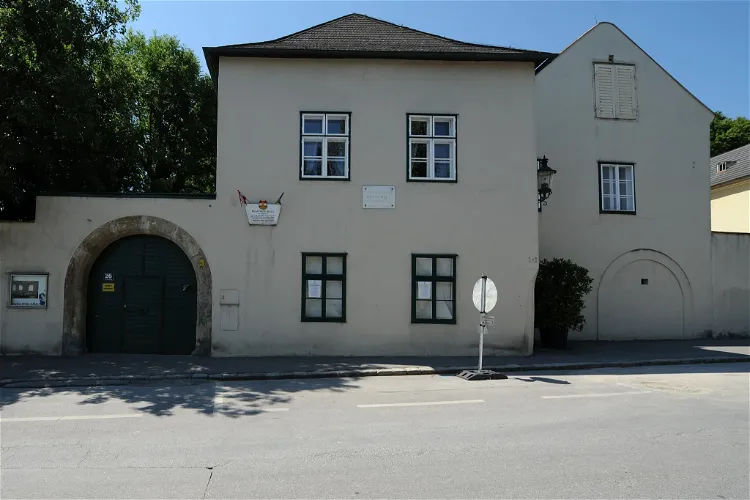
Hugo Wolf Haus
Perchtoldsdorf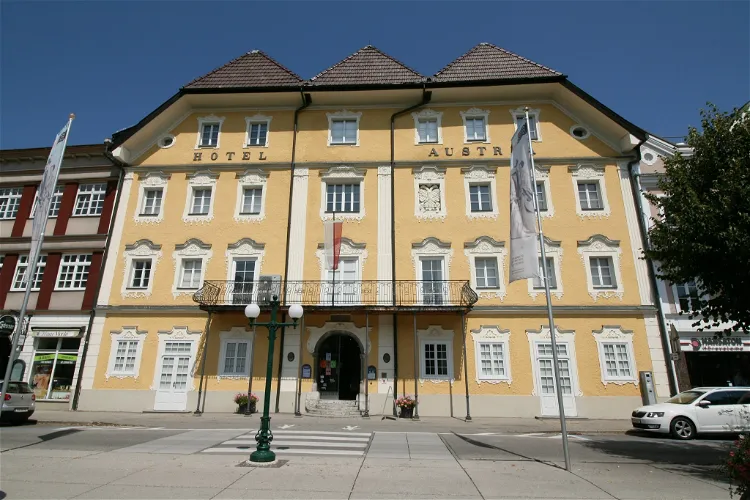
Stadtmuseum (ehem. Hotel Austria)
Bad Ischl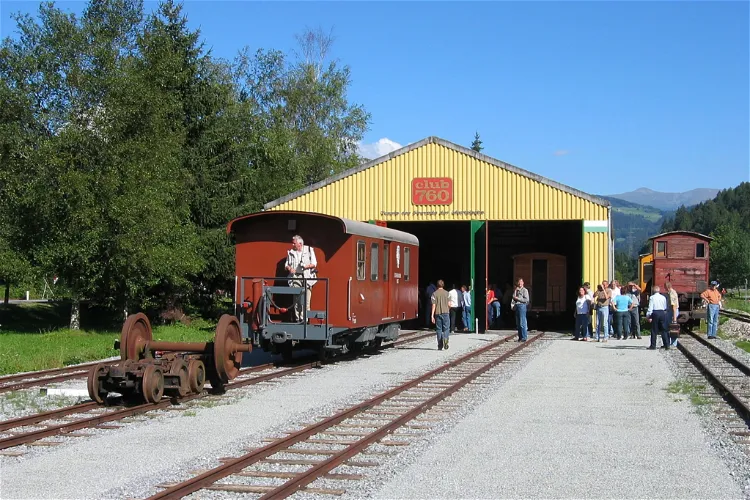
Schmalspurbahn-Museum Frojach
Teufenbach-Katsch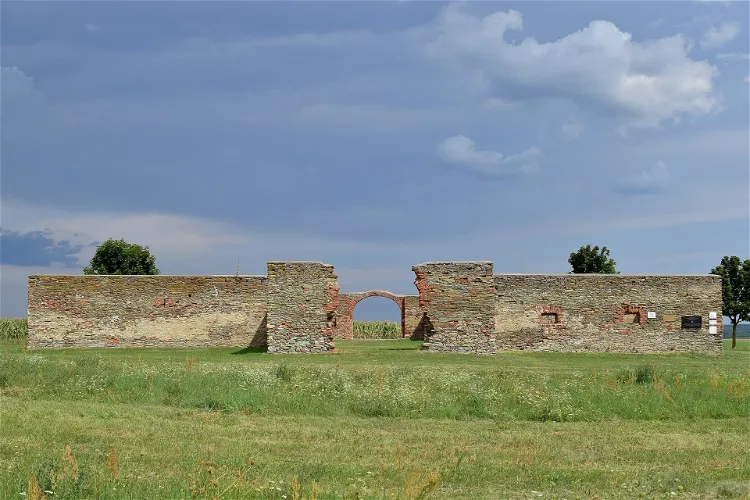
Kreuzstadl Rechnitz
RechnitzThe Kreuzstadl Rechnitz is a significant historical site located on the southern outskirts of the market town of Rechnitz in the Oberwart district in Burgenland. This former agricultural building now serves as a memorial to the Rechnitz massacre. Its location provides a serene and reflective environment for visitors to learn about the tragic events that took place here during World War II.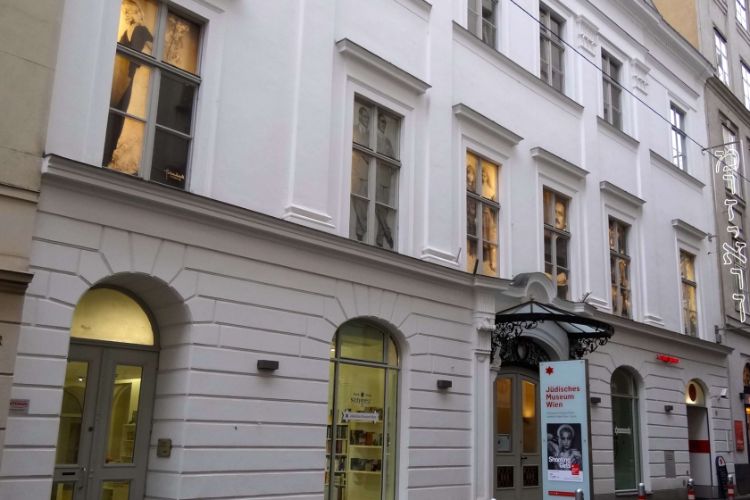
Jewish Museum
ViennaThe Jewish Museum Vienna (Jüdisches Museum der Stadt Wien) is a museum of Jewish history, Jewish culture and Jewish religion in Vienna. The museum has two buildings, the Palais Eskeles and the Misrachi house. The exhibition and event program deals with the past and present of Jewish culture in Austr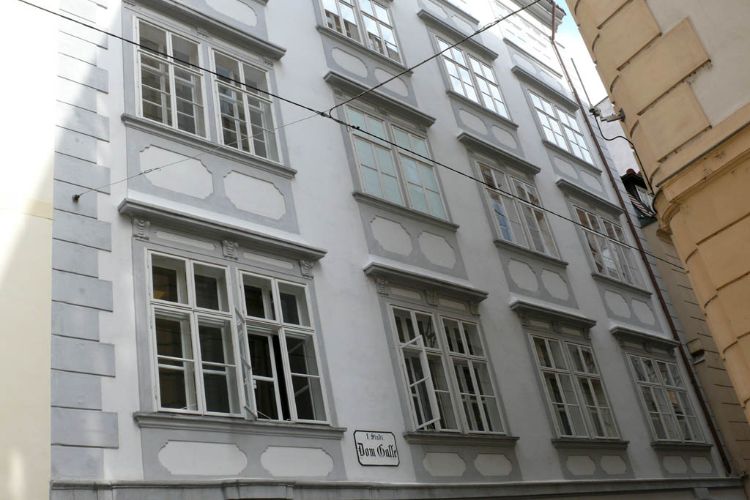
Mozarthaus Vienna
ViennaThe Mozarthaus Vienna is the place where Mozart wrote his opera The Marriage of Figaro here, and also three out of six Haydn Quartets. This museum mainly focuses on his work. Apart from the interior, you will get to see his letters and other items from his private life. It is the biggest and the mos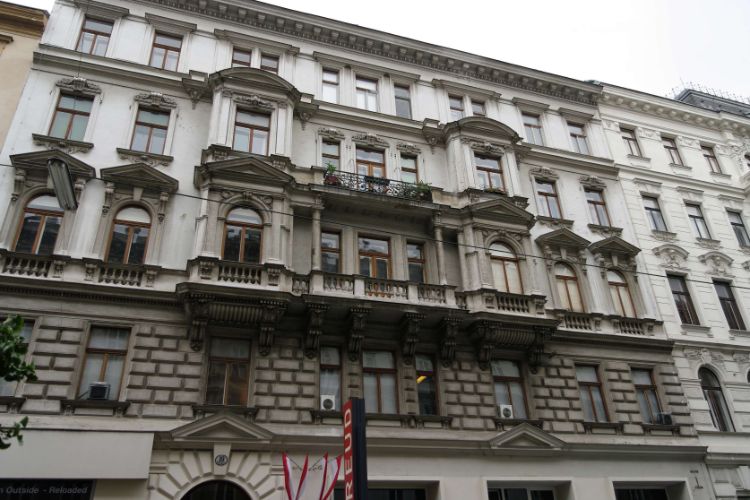
Sigmund Freud Museum
ViennaThe Sigmund Freud Museum in Vienna features an exhibition on the history of psychoanalysis and the life of Sigmund Freud (1856-1939) in Freud's former practice and apartment. The collection of the museum includes original items owned by Freud, the practice's waiting room, and parts of Freud's antiqu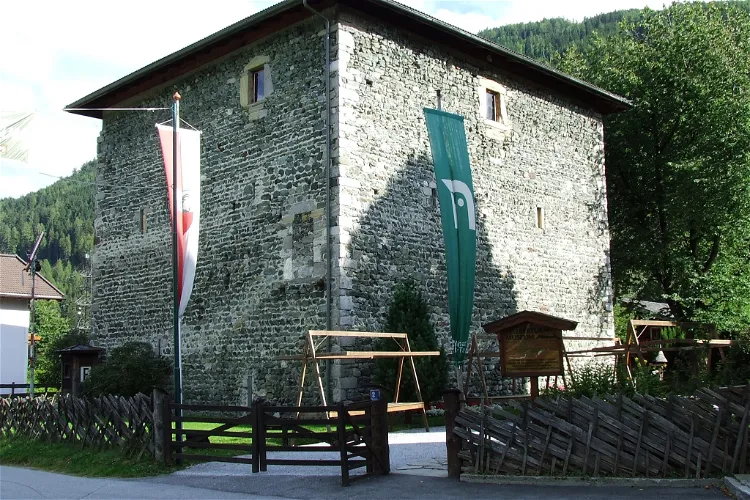
Felberturm Museum
MittersillThe Felberturm, also known as Burgruine Felben or Velben-Kasten, is a historical site located in the Felben district of the municipality of Mittersill in the Zell am See district in Pinzgau in the state of Salzburg. The tower is part of a typical small castle complex in Pinzgau, of which only the Weyerturm in Bramberg am Wildkogel remains in addition to this one. The tower was probably built in the first half of the 12th century and was home to the family of the Lords of Velben.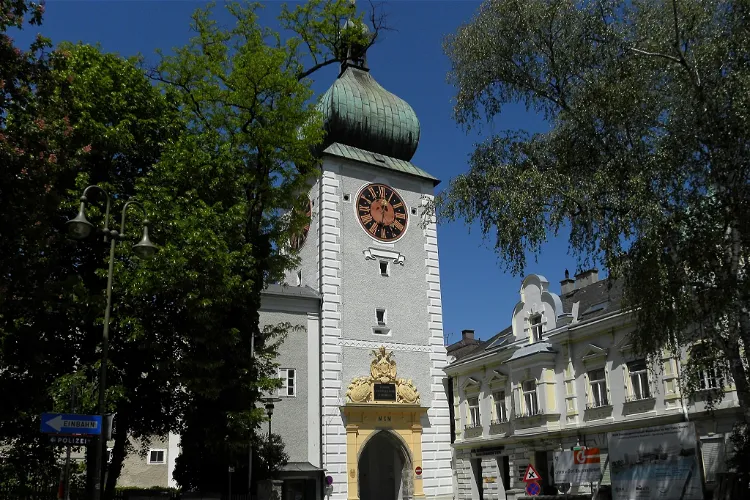
Stadtturm Waidhofen a.d. Ybbs
Waidhofen an der Ybbs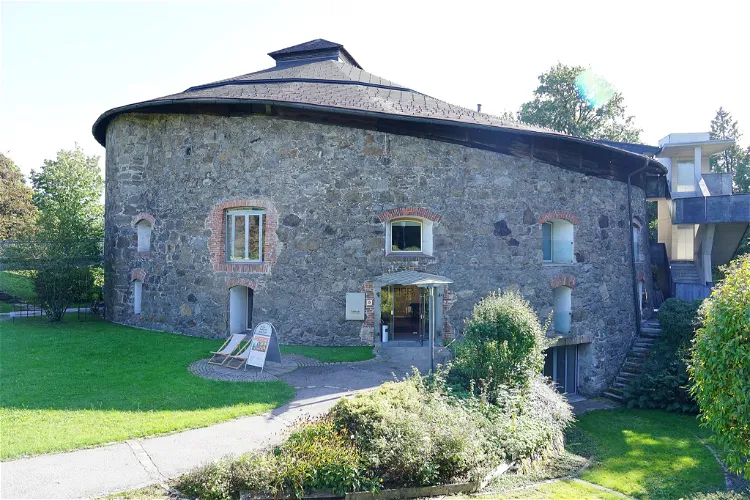
Stadtmuseum Leonding
LeondingThe Stadtmuseum Leonding, also referred to as the Turmmuseum, is situated in Tower 9 of the Linz Tower Fortification in Leonding. It has been functioning as a museum since 1999, providing a unique blend of history and culture to its visitors.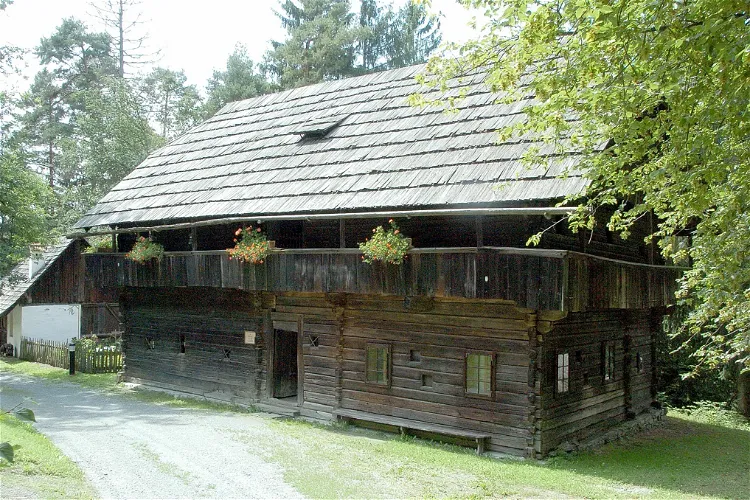
Carinthian Open-Air Museum
RatzendorfThe Carinthian Open-Air Museum Maria Saal is a unique destination located on the eastern edge of the Zollfeld in Carinthia. It is one of the first open-air museums in Austria, offering visitors a chance to step back in time and experience the country's rich history and culture.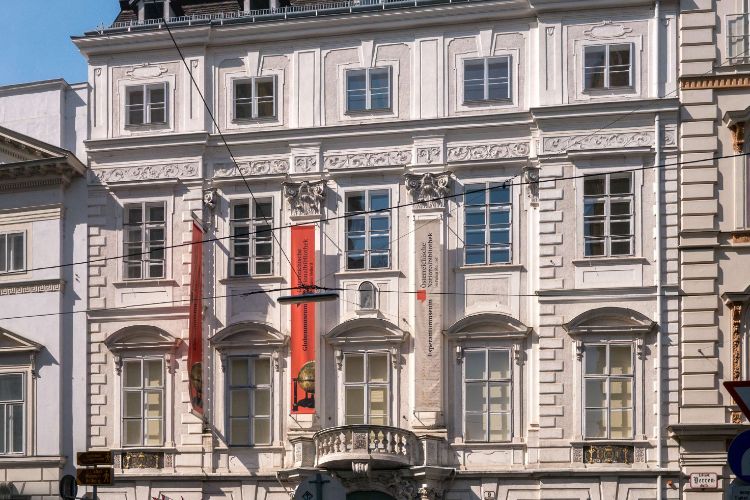
Globe Museum
ViennaThe Globe Museum is a museum in Vienna that is housed in the Palais Mollard. It is the only public museum in the world devoted to globes, featuring around 600 terrestrial and celestial globes of which around 200 are on display in the exhibition presented by the Globe Museum. Most of the globes origi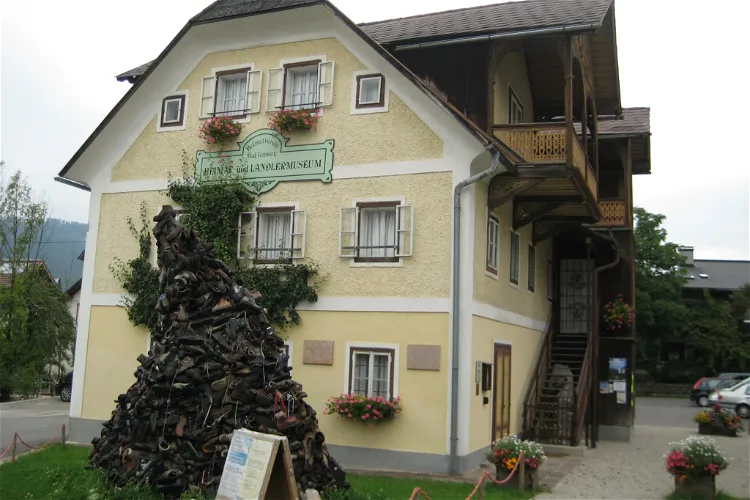
Heimatmuseum
Gosau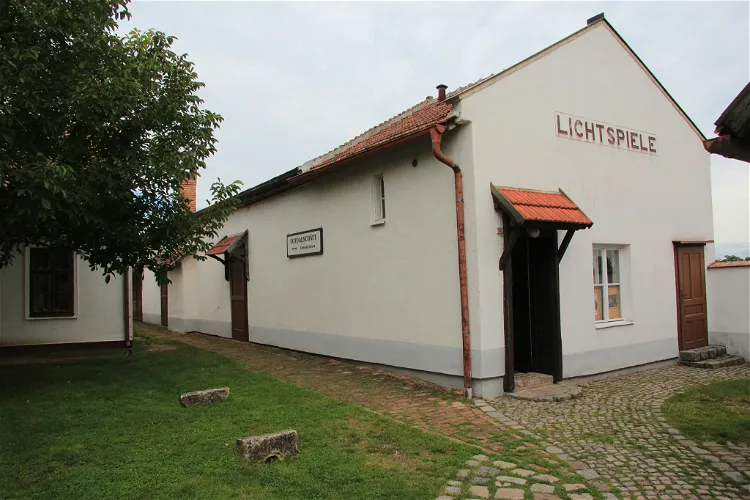
Dorfmuseum Mönchhof
Mönchhof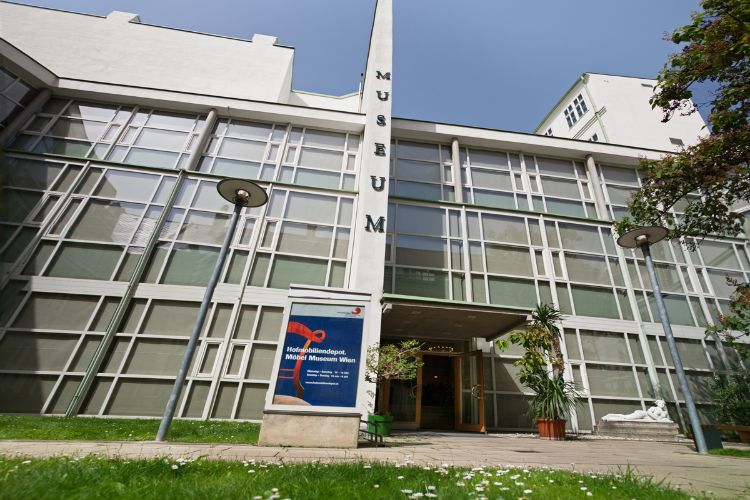
Imperial Furniture Collection
ViennaThe Imperial Furniture Collection (Hofmobiliendepot) is a furniture museum in Vienna and one of the world's largest museums of home decor. The museum's collection mainly consists of furniture of the Habsburg monarchs, from commodes to imperial thrones. However, Austrian furniture designers and archi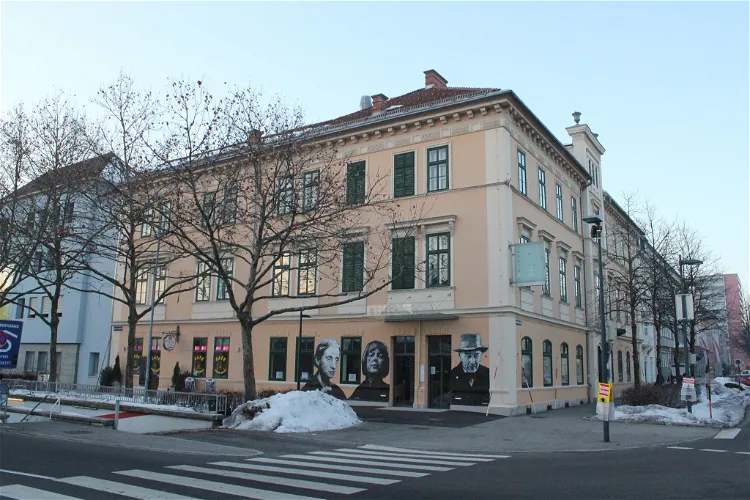
Robert Musil Literature Museum
KlagenfurtA place where the writer Robert Musil was born. Now is the whole house dedicated to exhibitions on Musil, Bachmann and Lavant.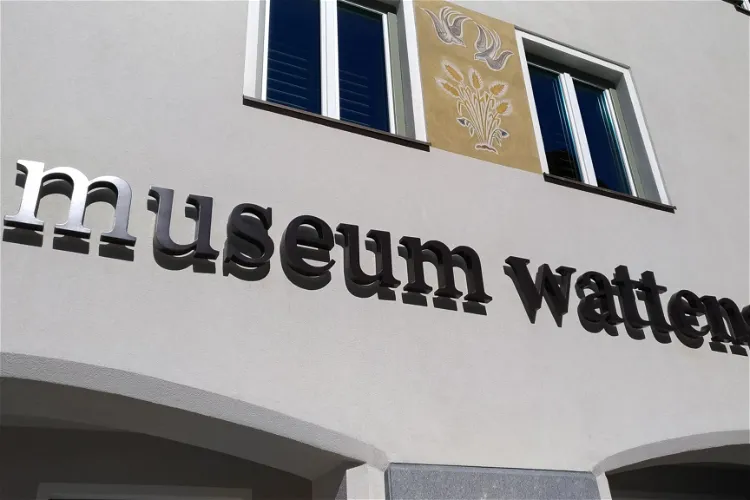
Wattens Museum
WattensThe Wattens Museum is situated in the market town of Wattens, within the Innsbruck-Land district of the Tyrol state. This location is easily accessible and offers a rich cultural experience for tourists visiting the area.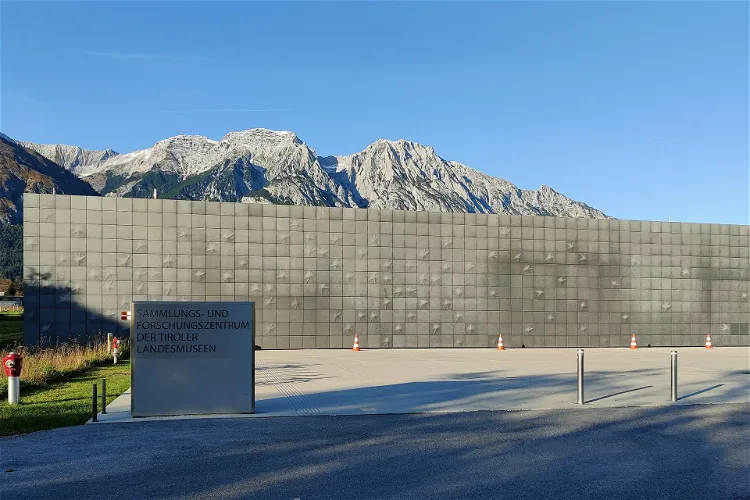
Tyrolean State Museum
Hall in TirolThe Tyrolean State Museum, also known as Il Ferdinandeum, is a significant cultural institution located in the city of Innsbruck. The museum was named after Duke Ferdinand II of Austria, reflecting the rich historical ties of the region. It offers visitors a chance to delve into the history and culture of Tyrol, making it a worthwhile destination for those interested in understanding the region's past.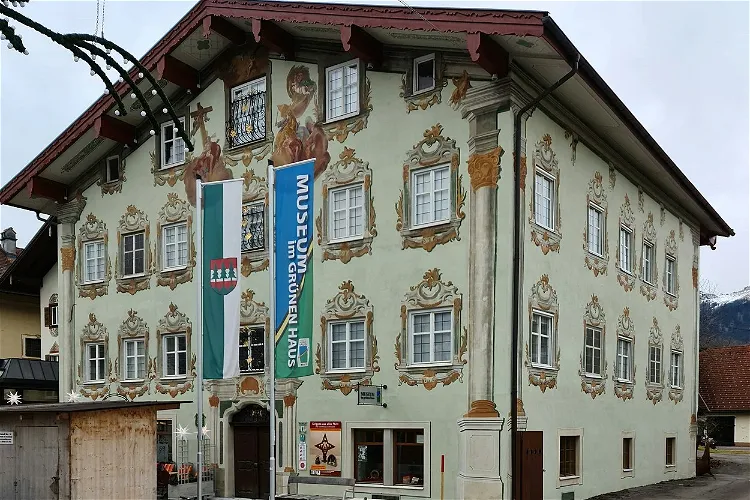
The Museum in the Green House
ReutteThe Museum im Grünen Haus is situated in the market town of Reutte in Tyrol. This location is easily accessible and offers a rich cultural experience for tourists visiting the area. The town itself is a charming destination with a variety of attractions, making the museum a convenient stop for those exploring the region.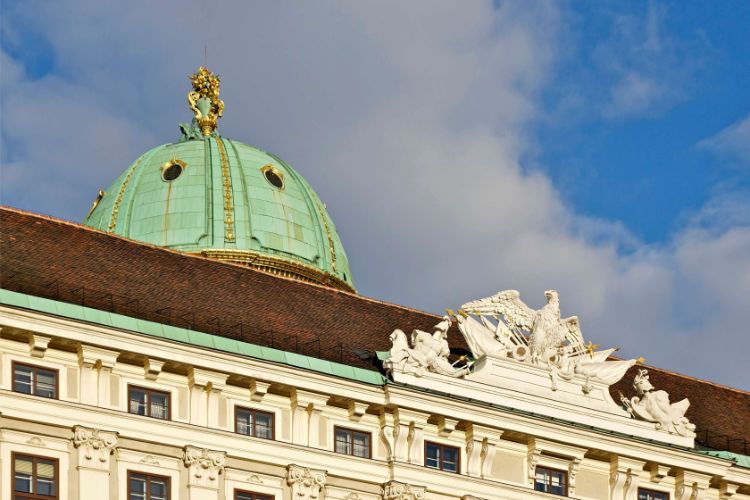
Silberkammer
ViennaThe Silberkammer (silver chamber) is part of the Hofburg in Vienna. On display are the holdings of the Hofsilber- and Tafelkammer, which were transferred to the Republic of Austria after the end of the Habsburg monarchy. Valuable objects of glass, silver, porcelain as well as cooking and baking uten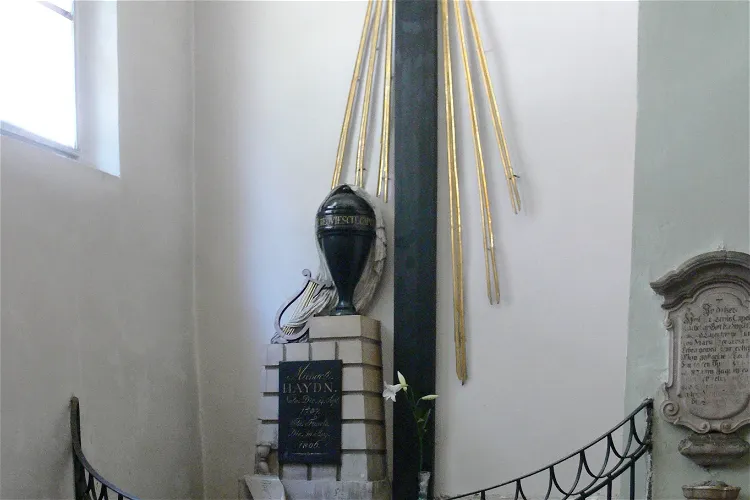
Michael Haydn Museum
SalzburgA tiny museum displaying exhibits related to the life and work of the composer. Comprehensive and eye-catching exhibition.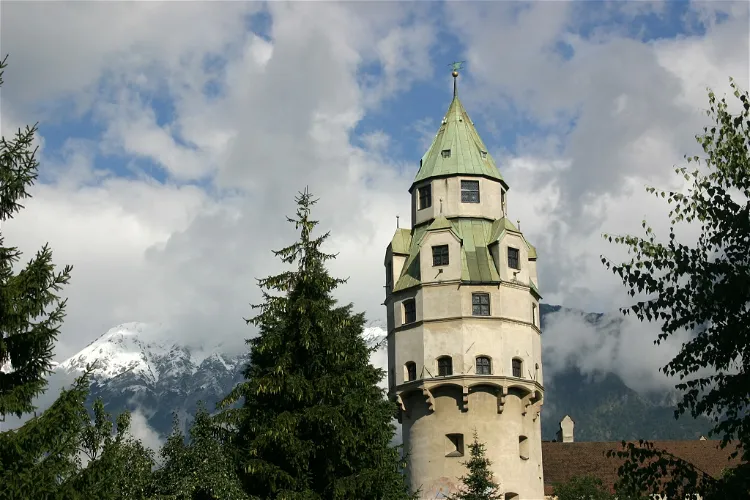
Hasegg Castle
Hall in TirolHasegg Castle, also known as Burg Hasegg, is a historical site located in Hall in Tirol, Austria. The castle, which dates back to around 1300, was originally a defensive structure built to protect the local salt mines, river shipbuilding industry, and a key road crossing. Today, it stands as a testament to the region's rich history and offers visitors a unique glimpse into the past.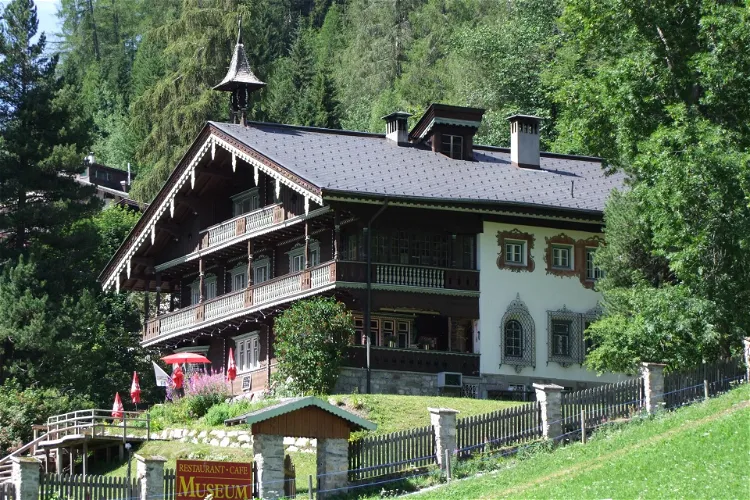
Museum St. Anton am Arlberg
Sankt Anton am ArlbergGet to know the history of this renowned winter resort. Take a tour around the museum housed in Trier Villa from 1912. Learn something new!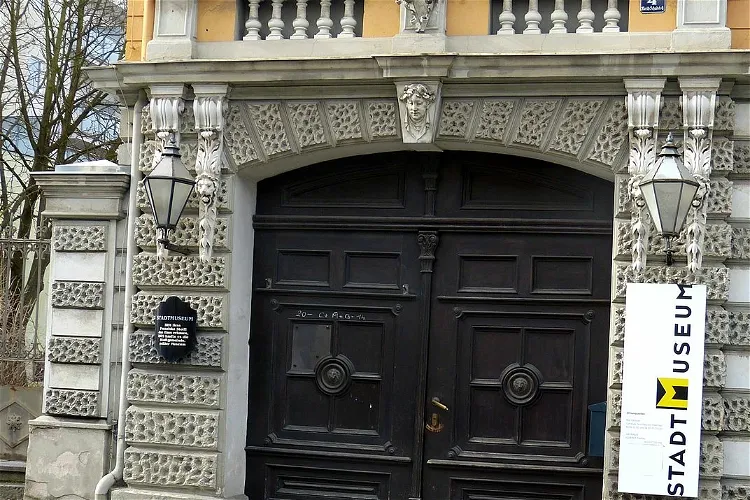
Stadtmuseum Waidhofen an der Thaya
Waidhofen an der Thaya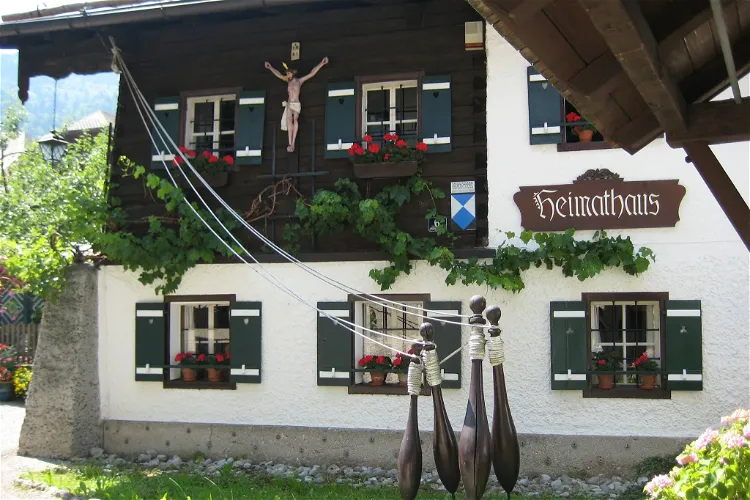
Heimatkundliches Museum St. Gilgen
Sankt GilgenThe Heimatkundliches Museum Sankt Gilgen is a local history museum situated in the municipality of Sankt Gilgen, within the Salzburg-Umgebung district. This museum is housed in a building that is protected as a historical monument, adding to its cultural and historical significance.